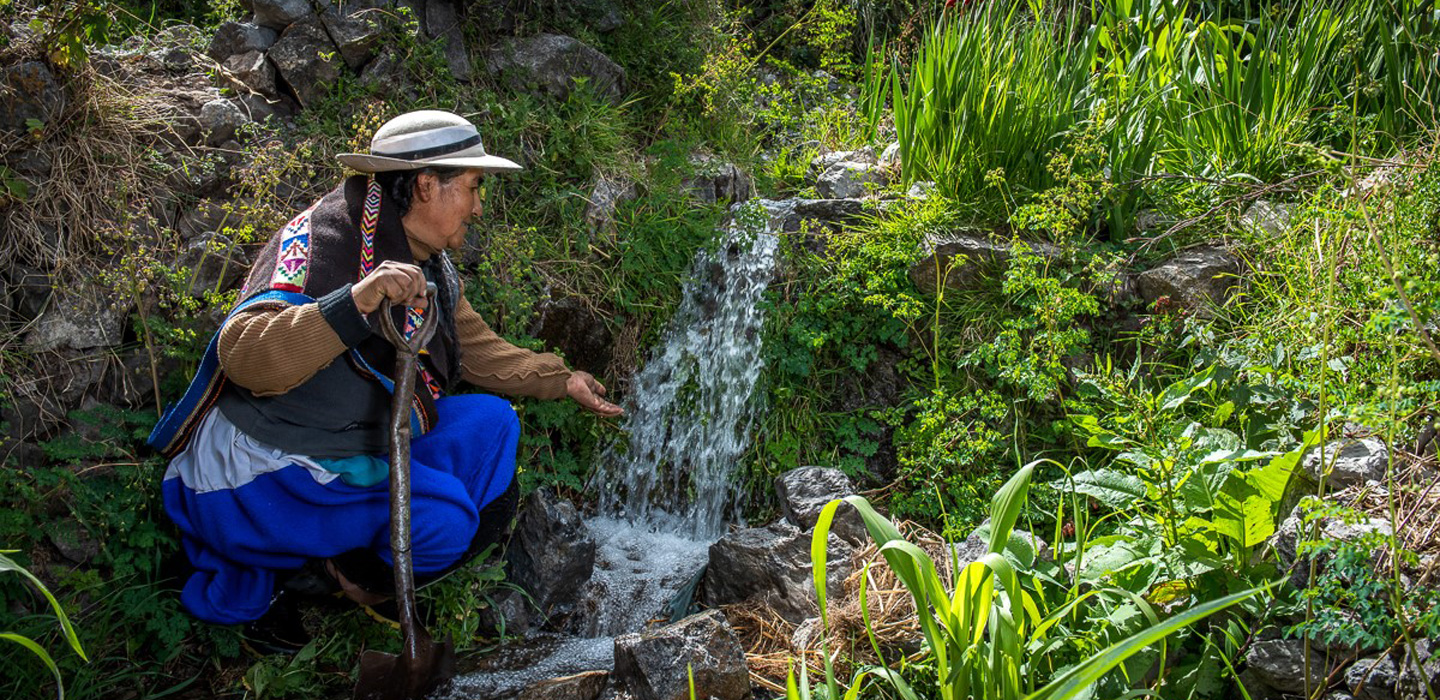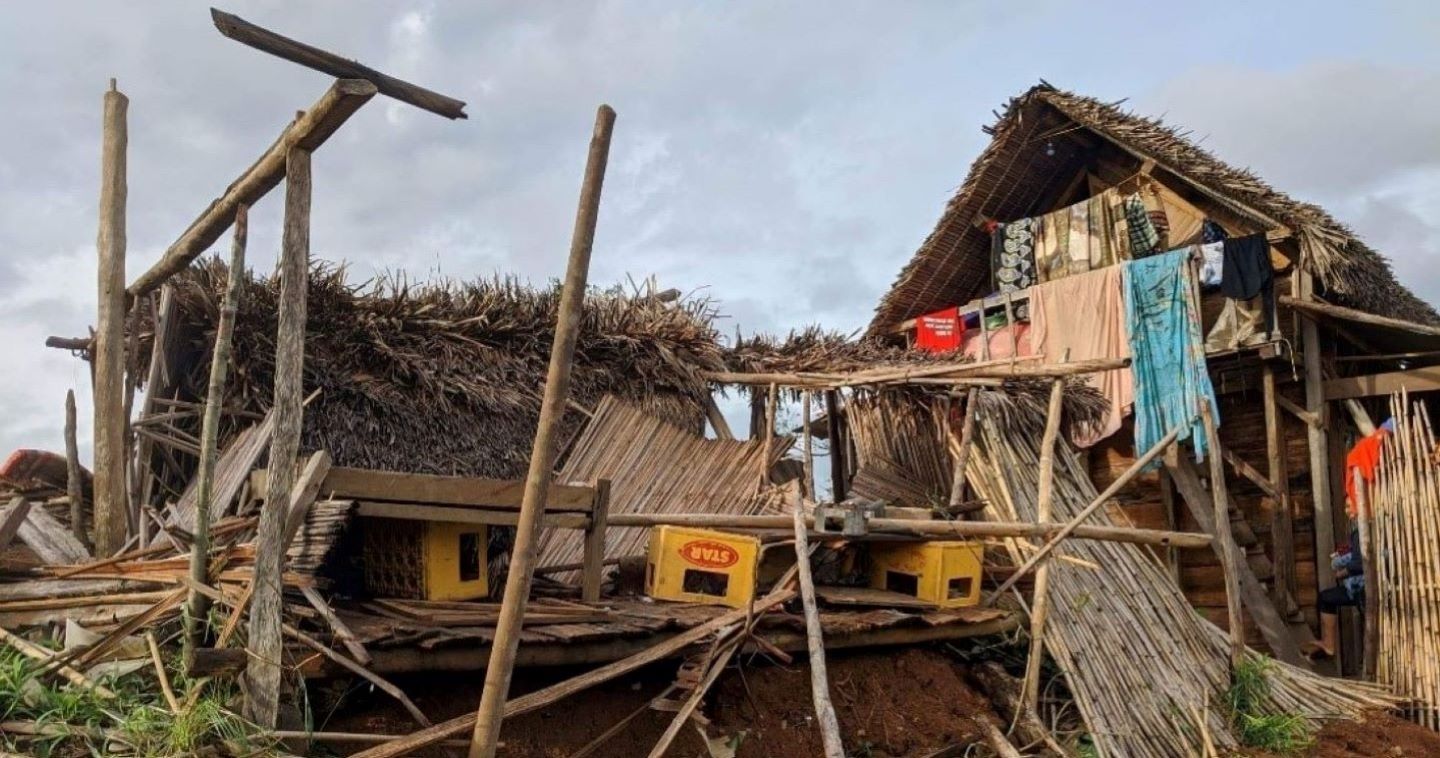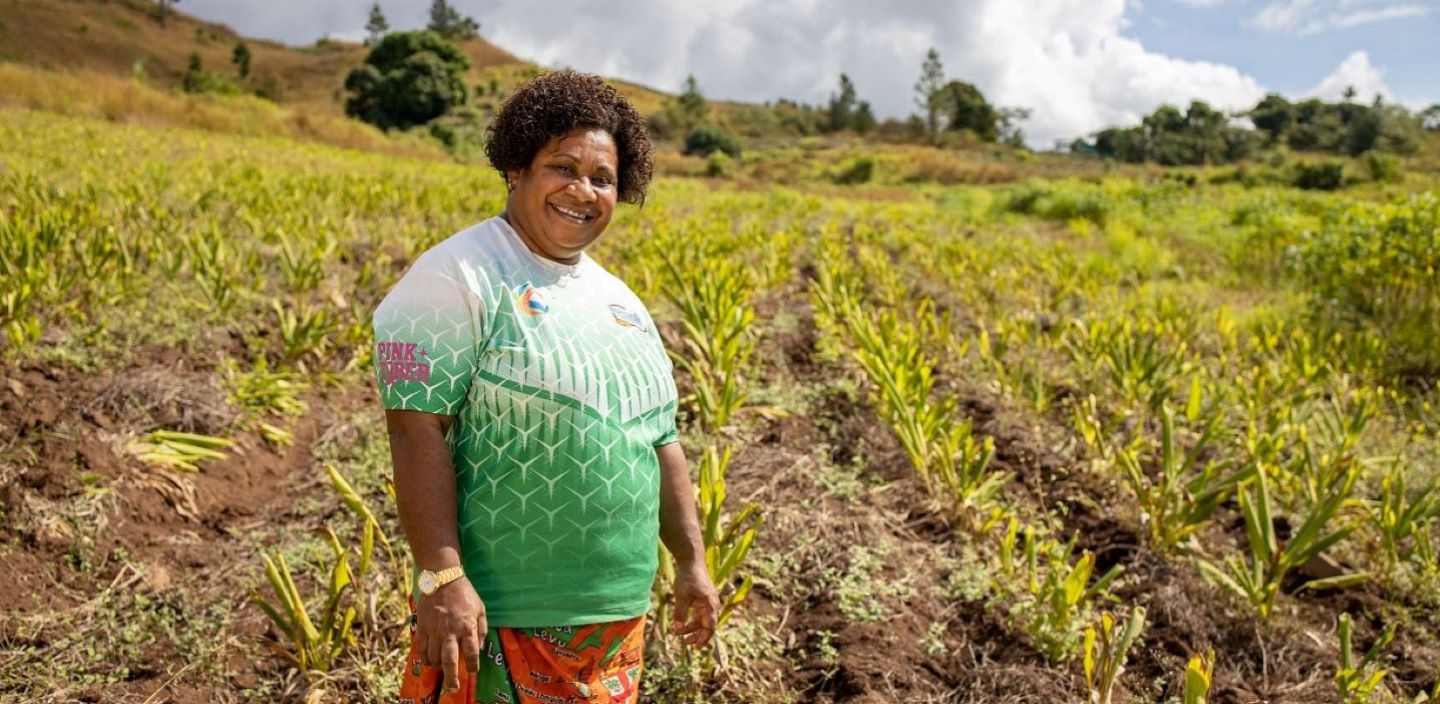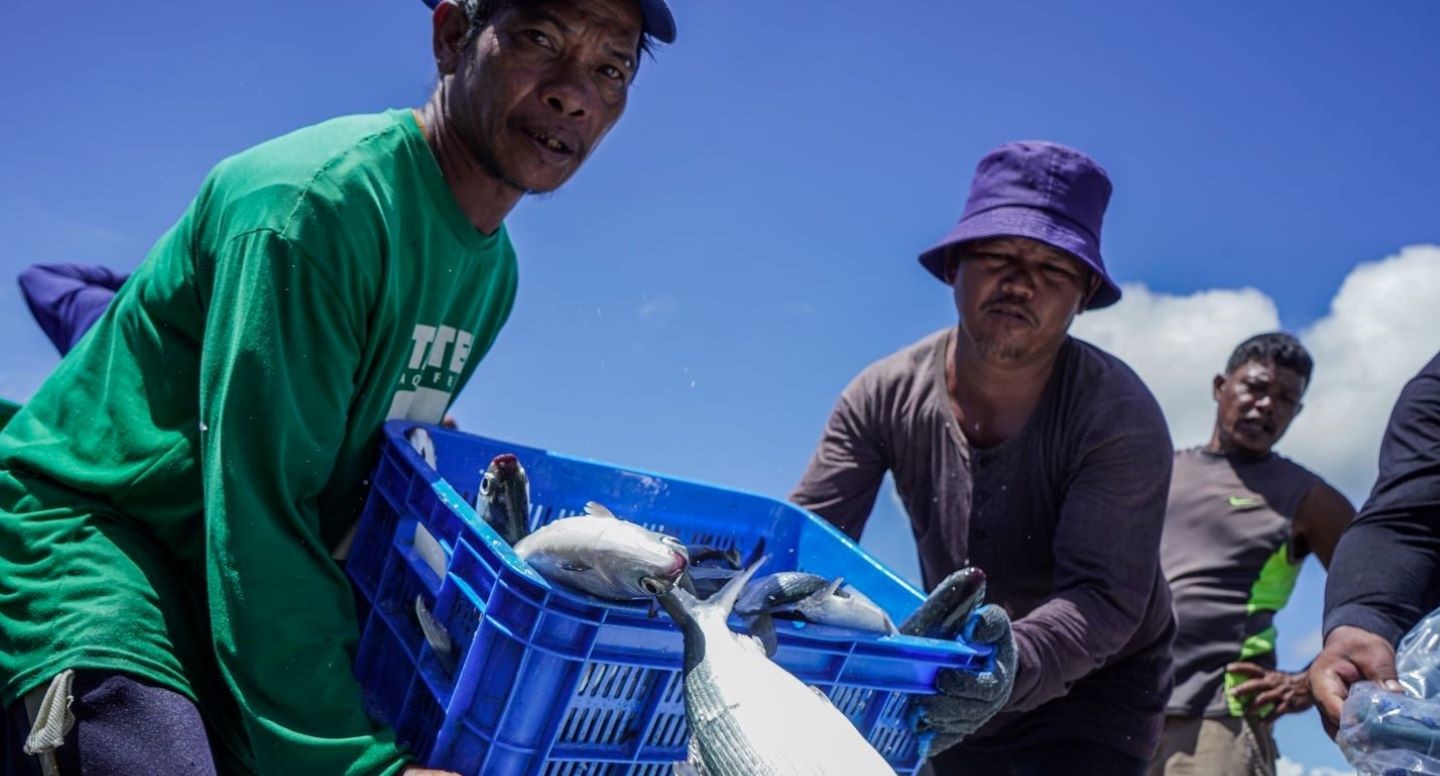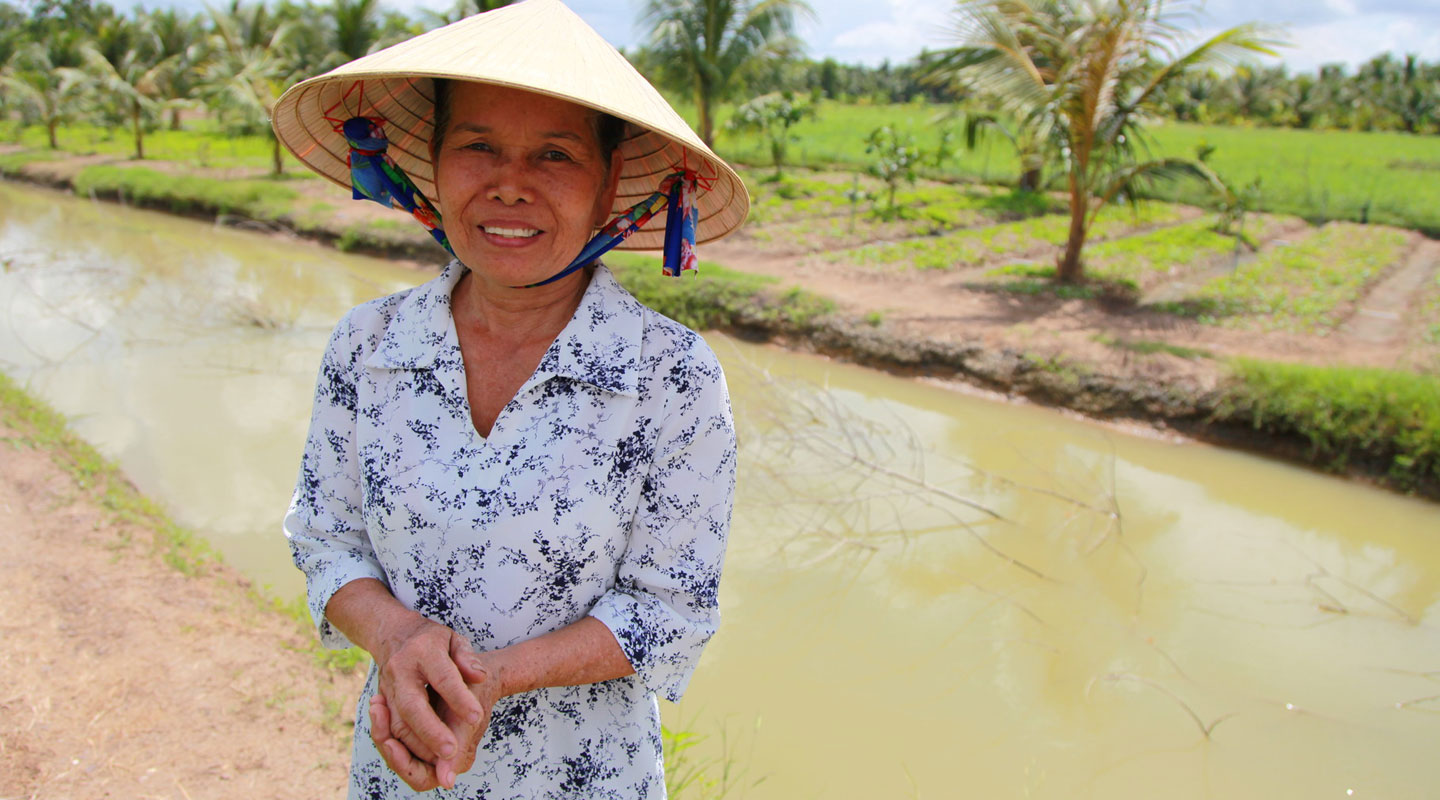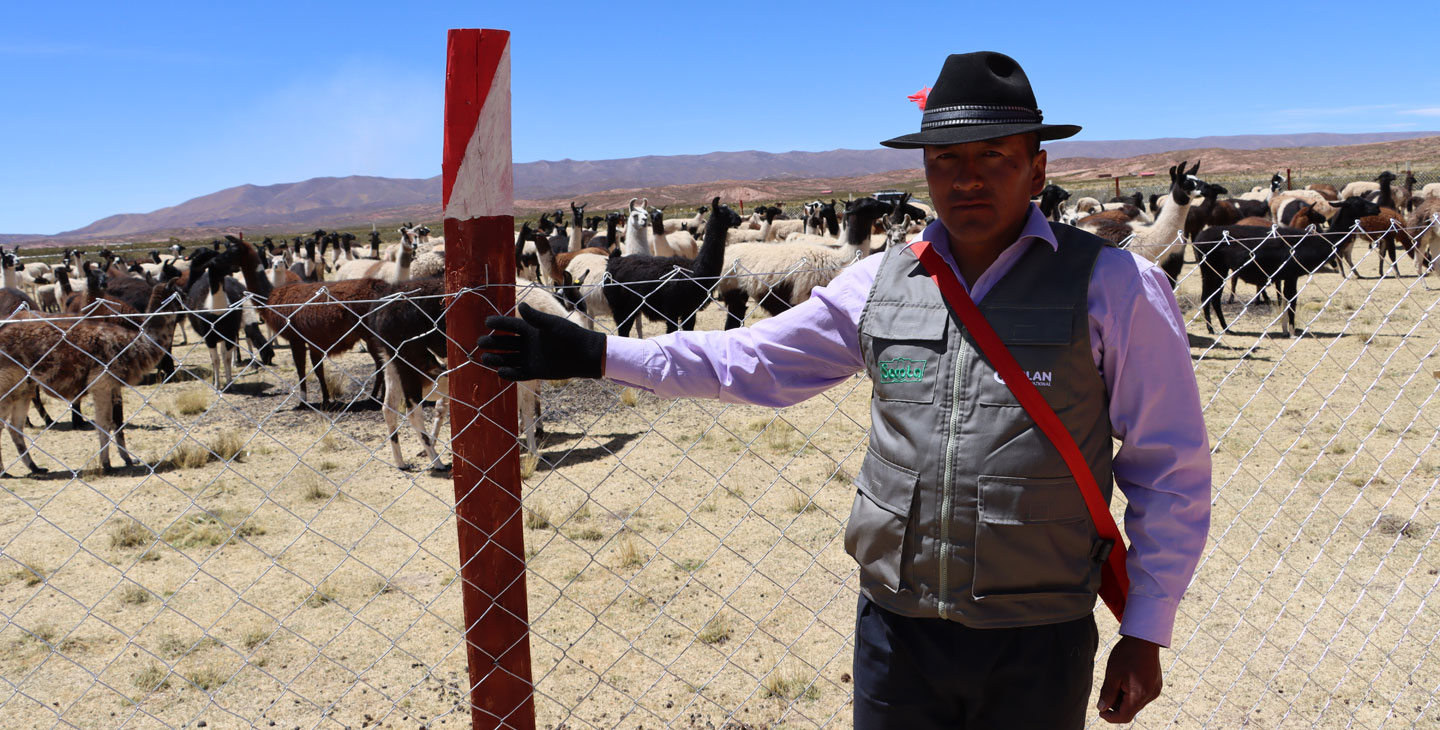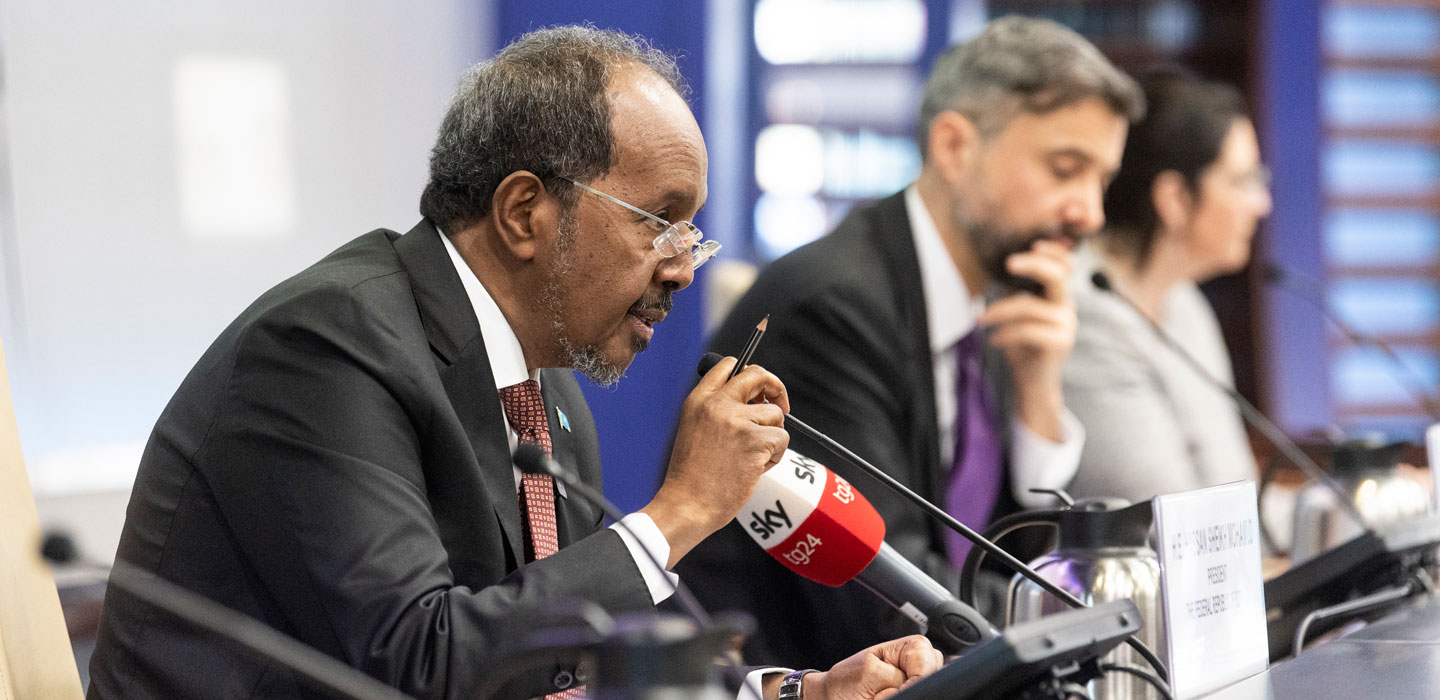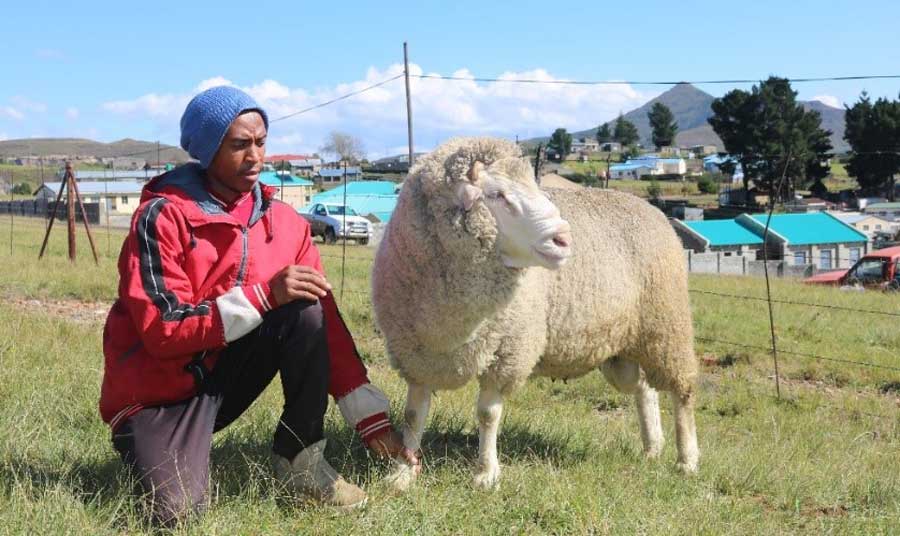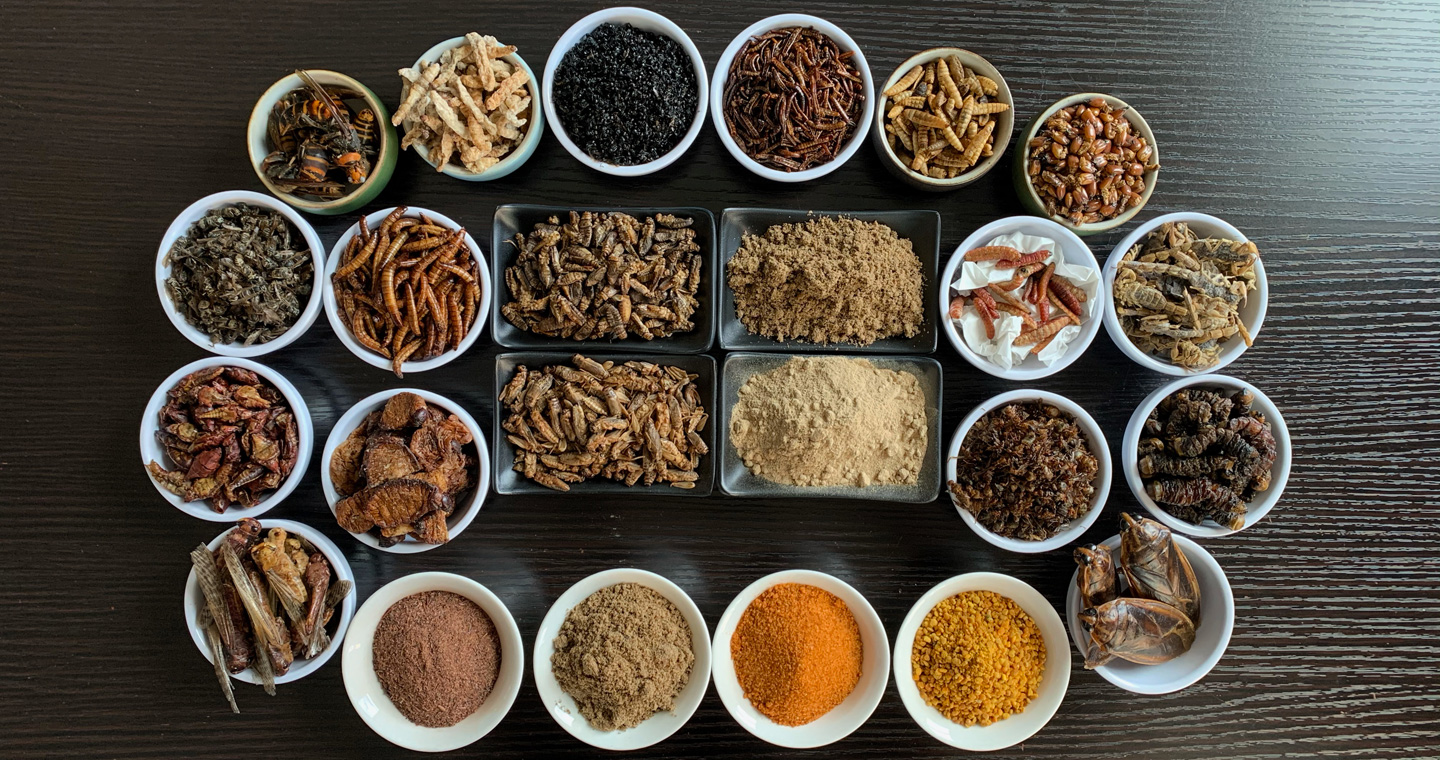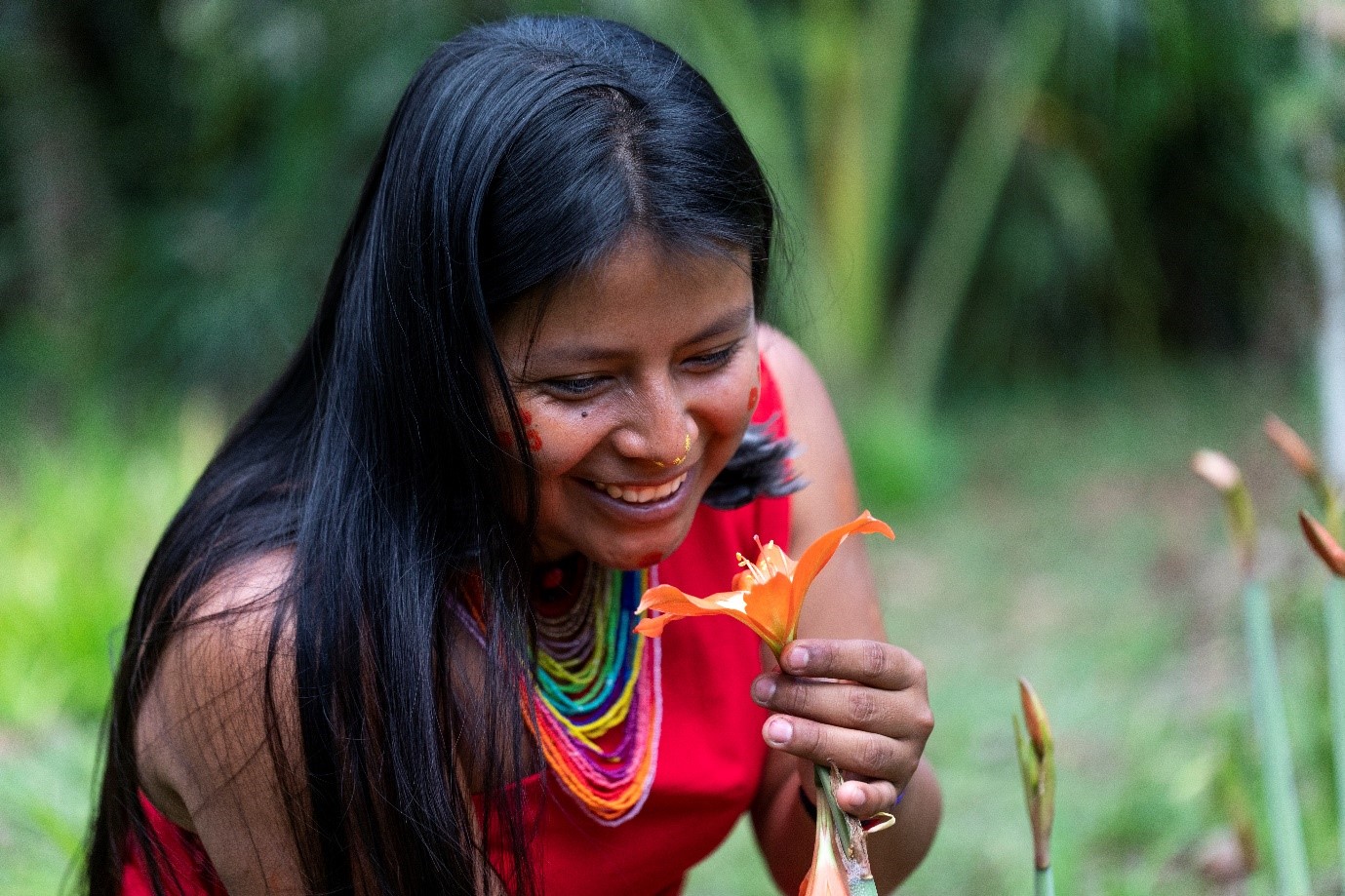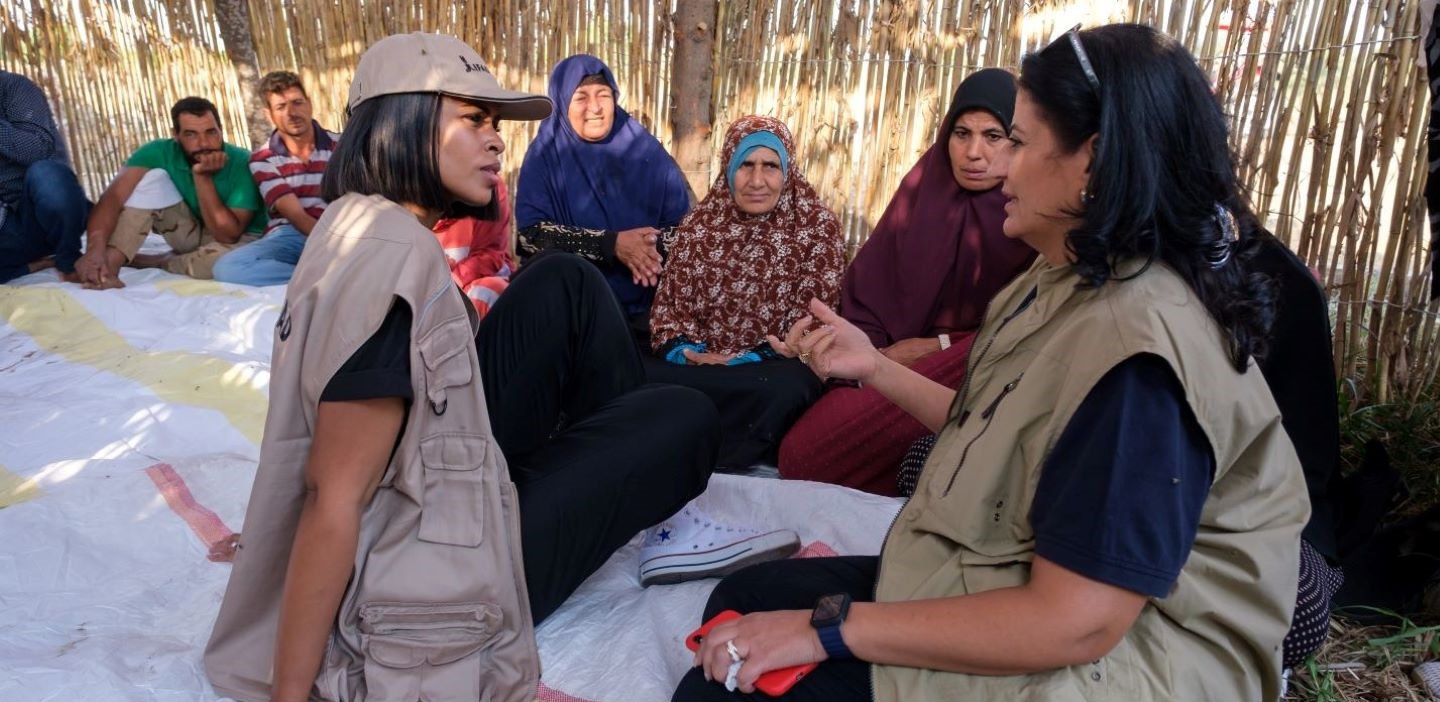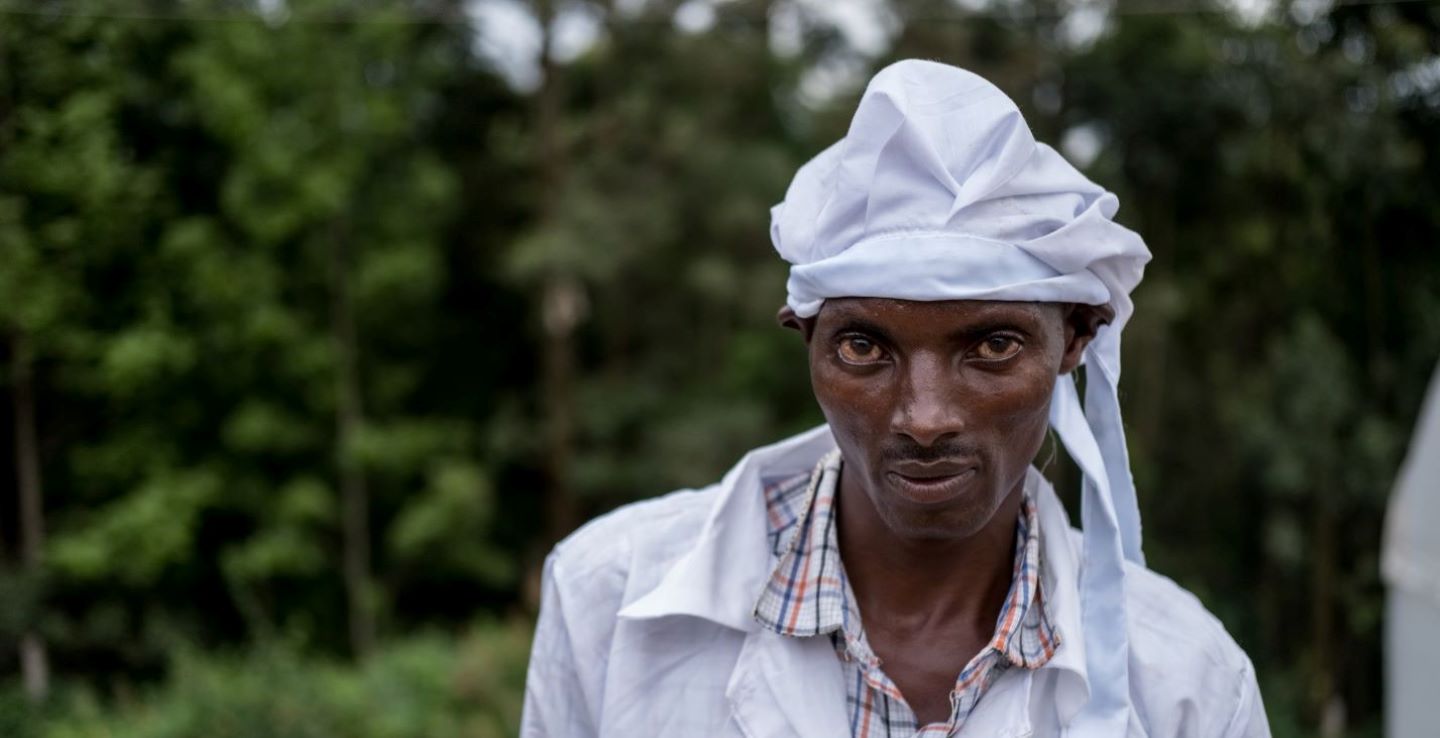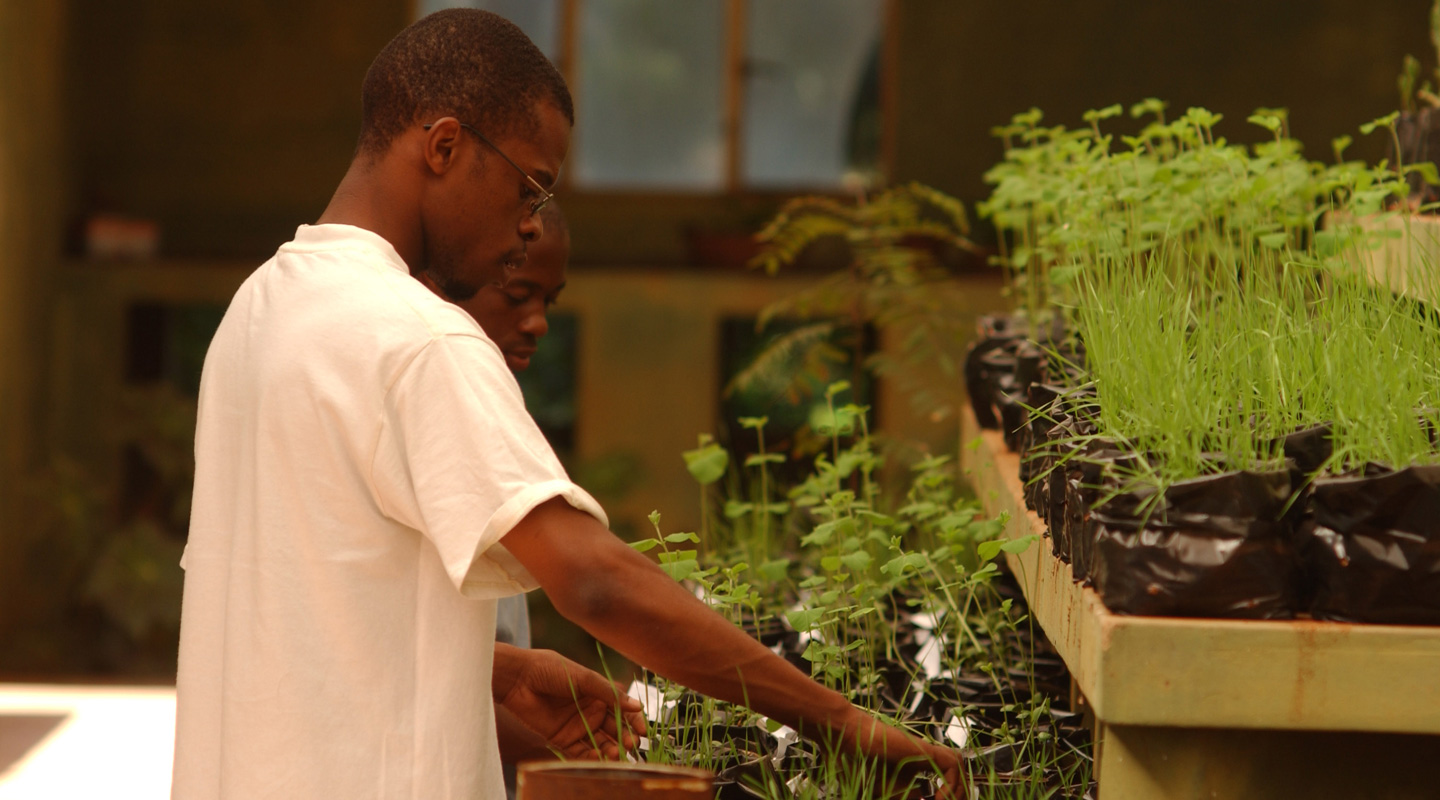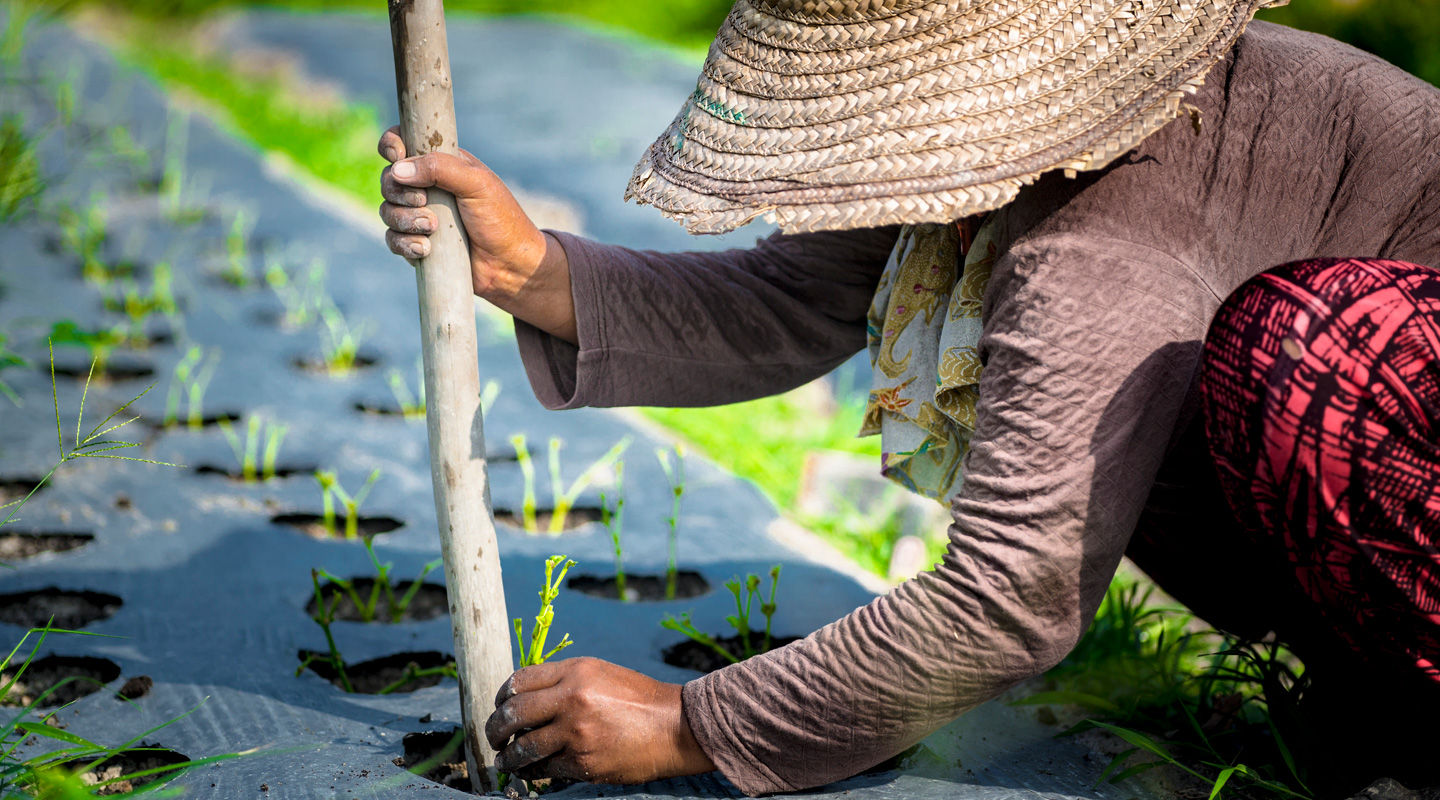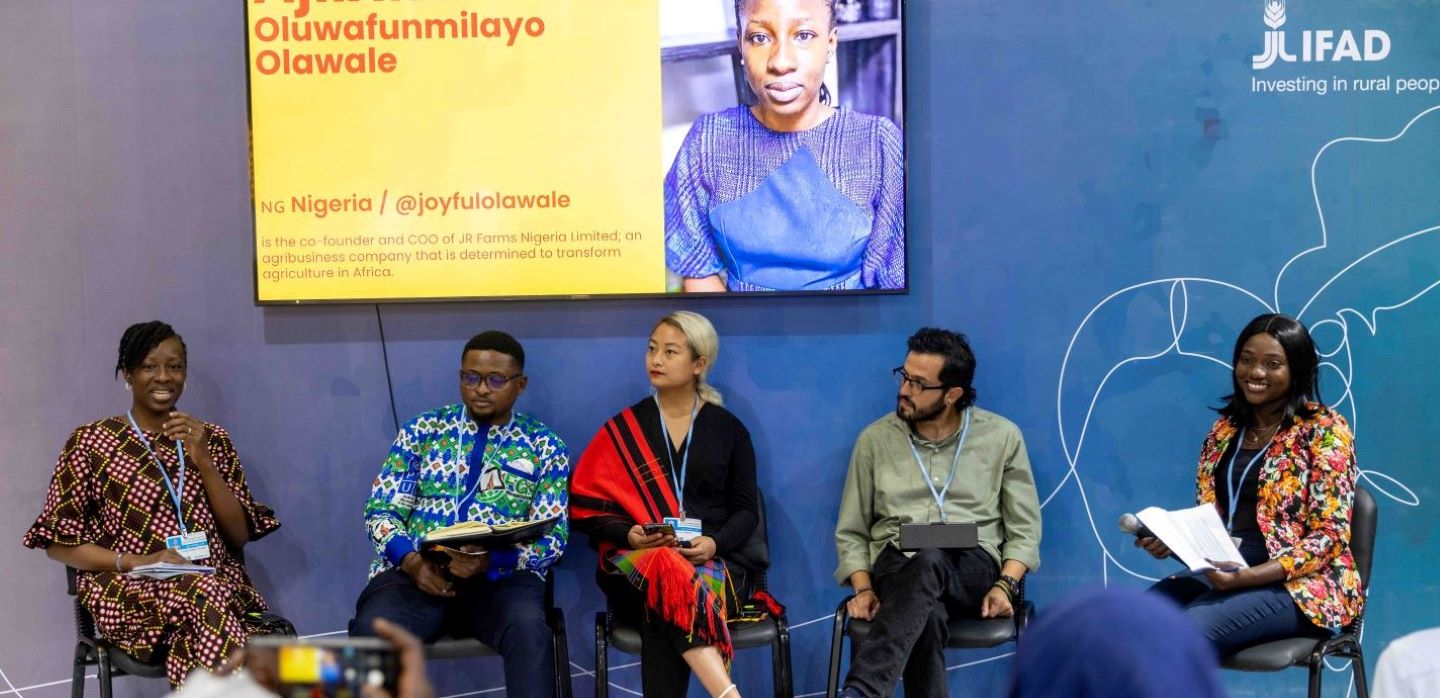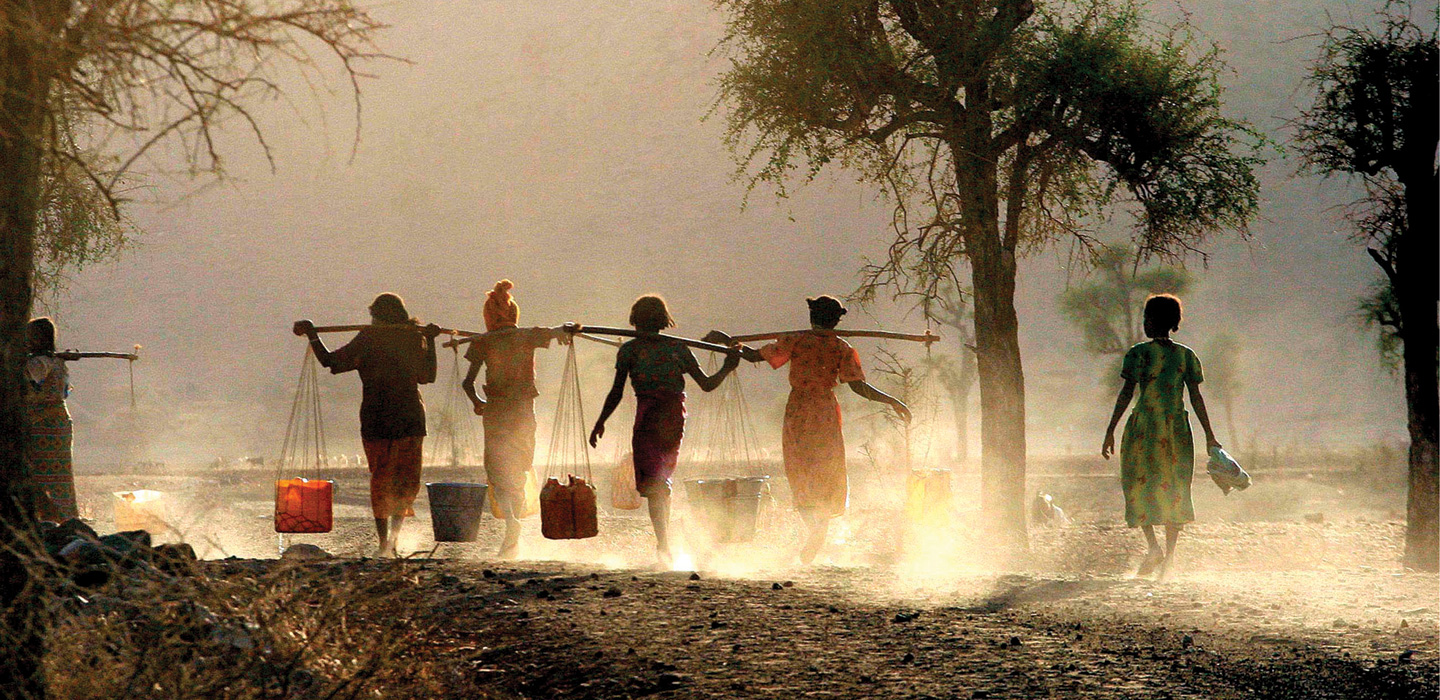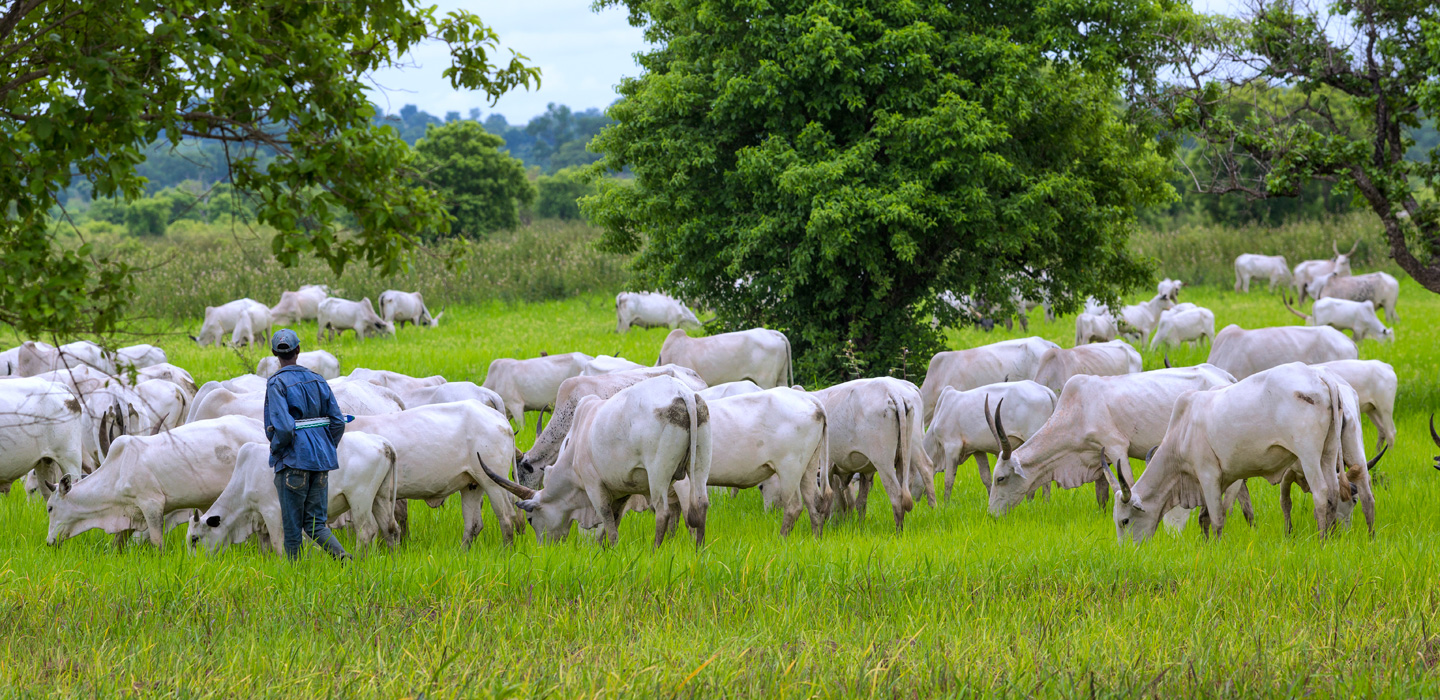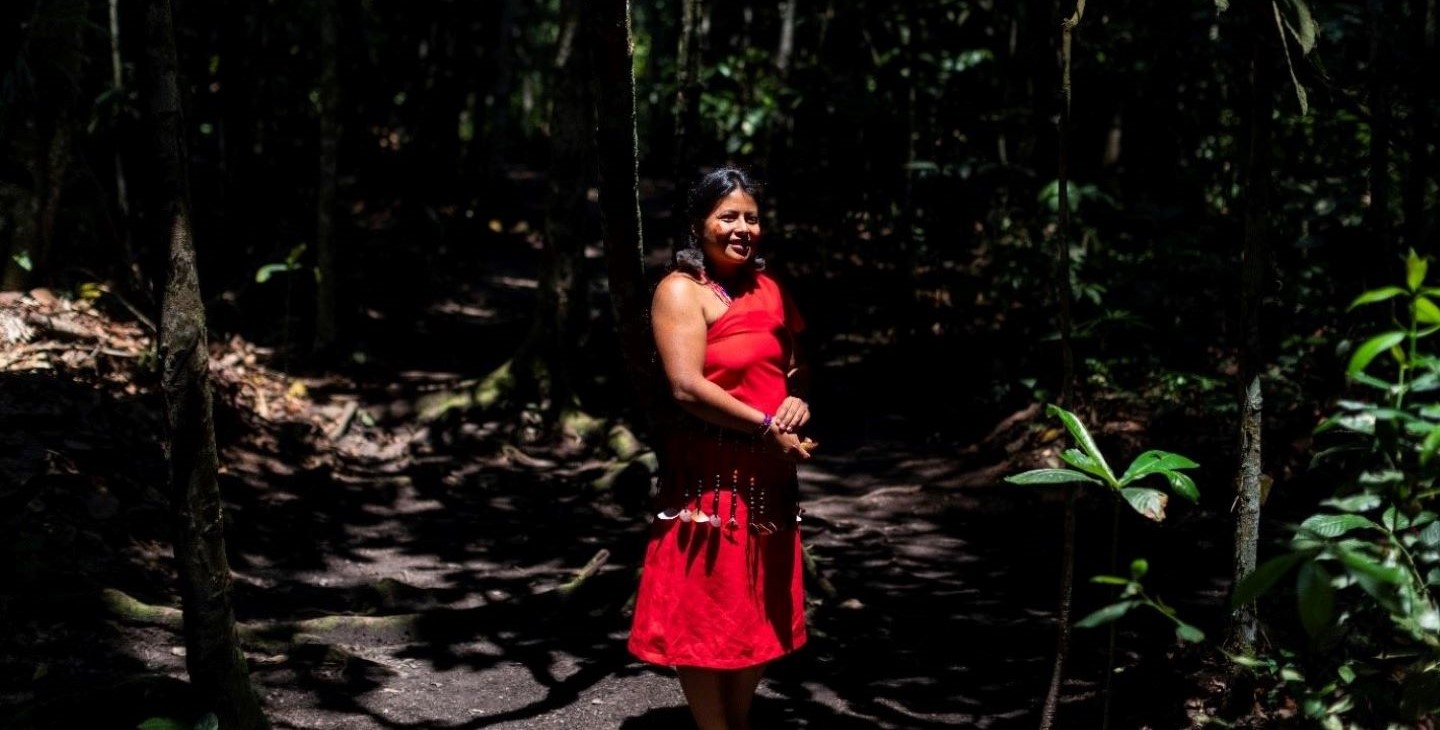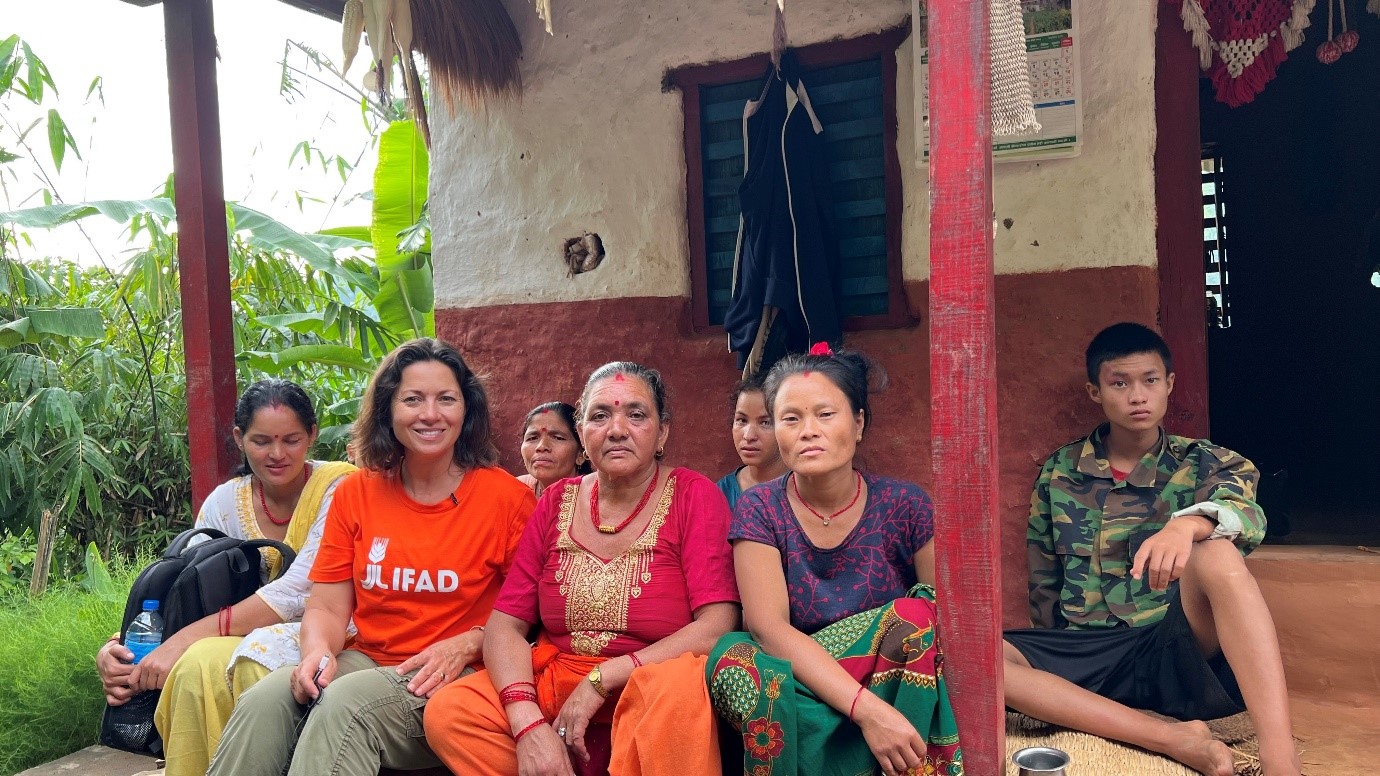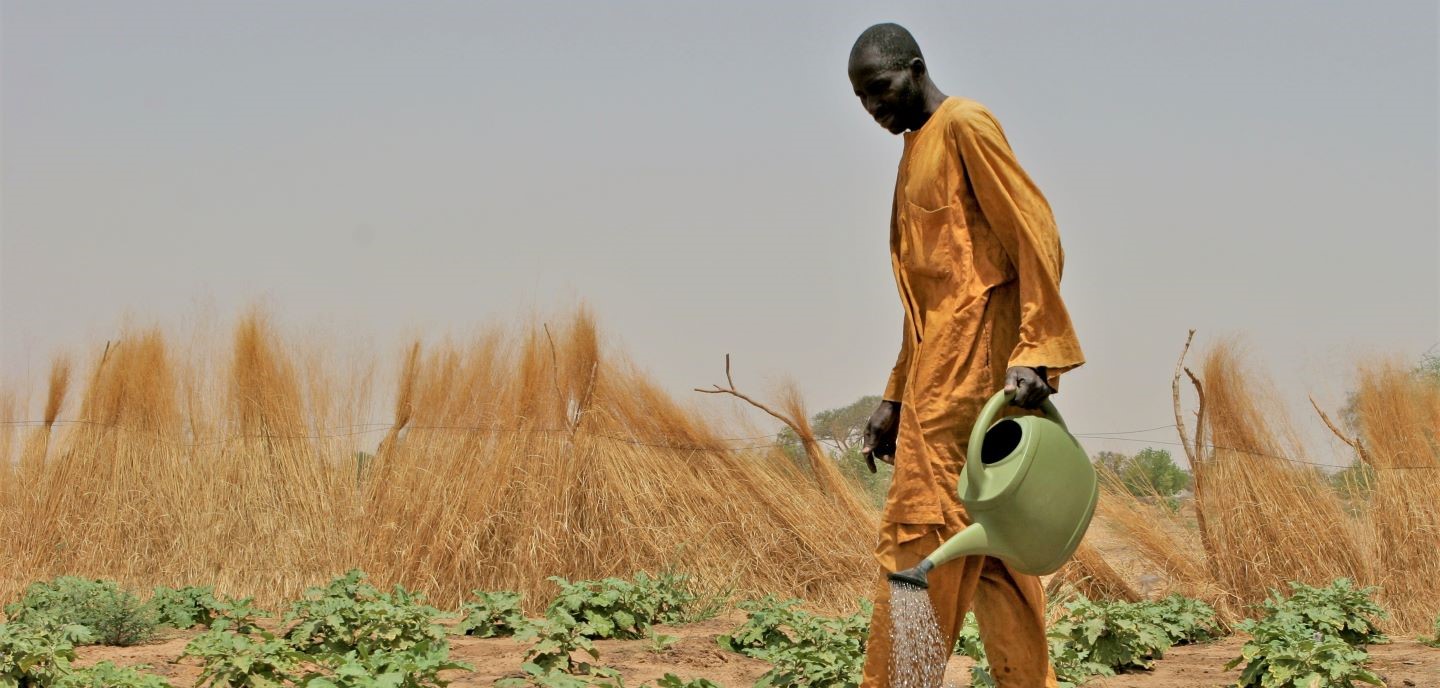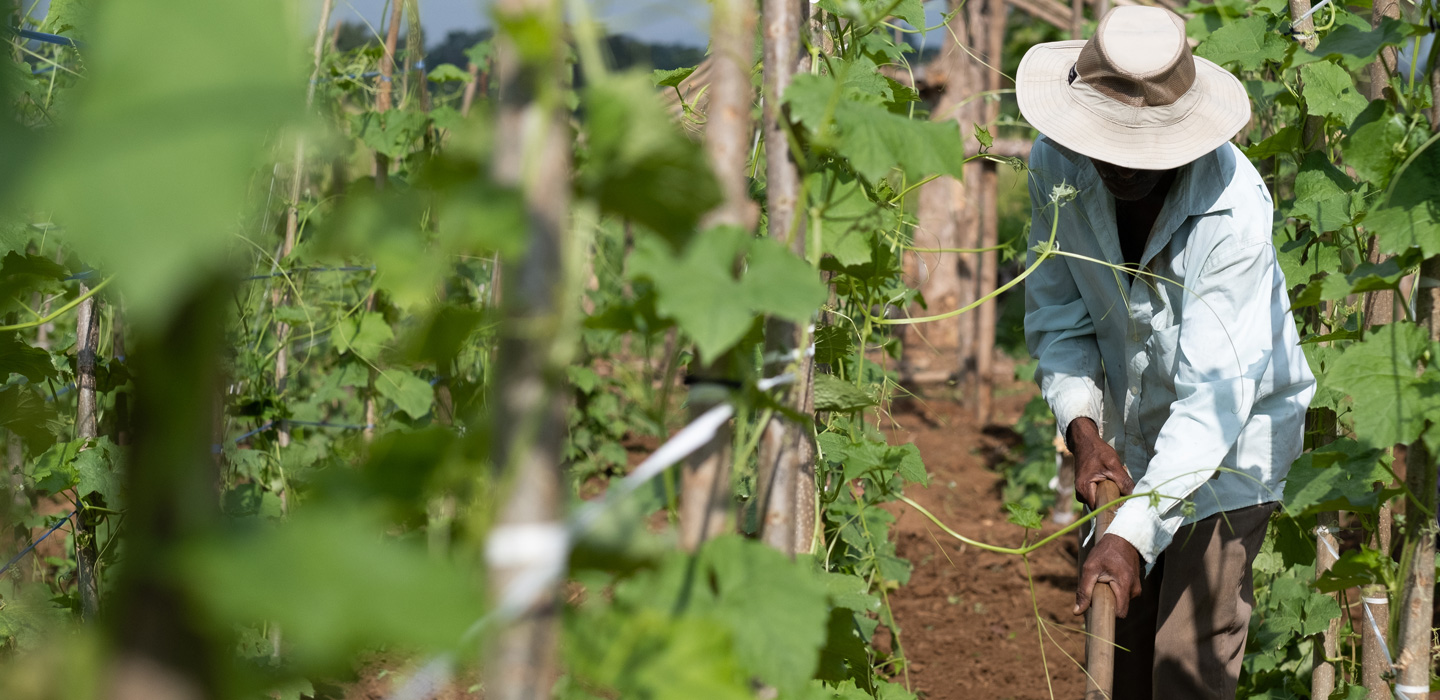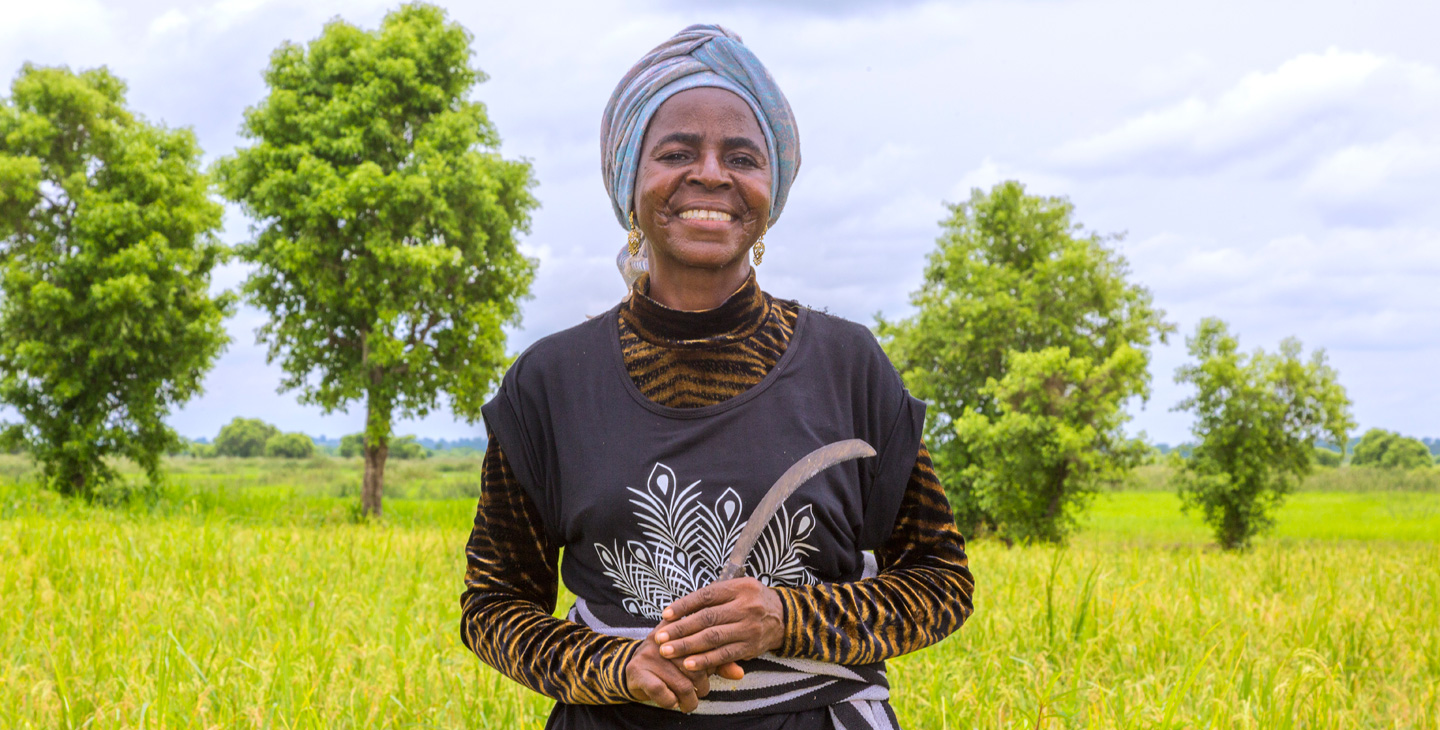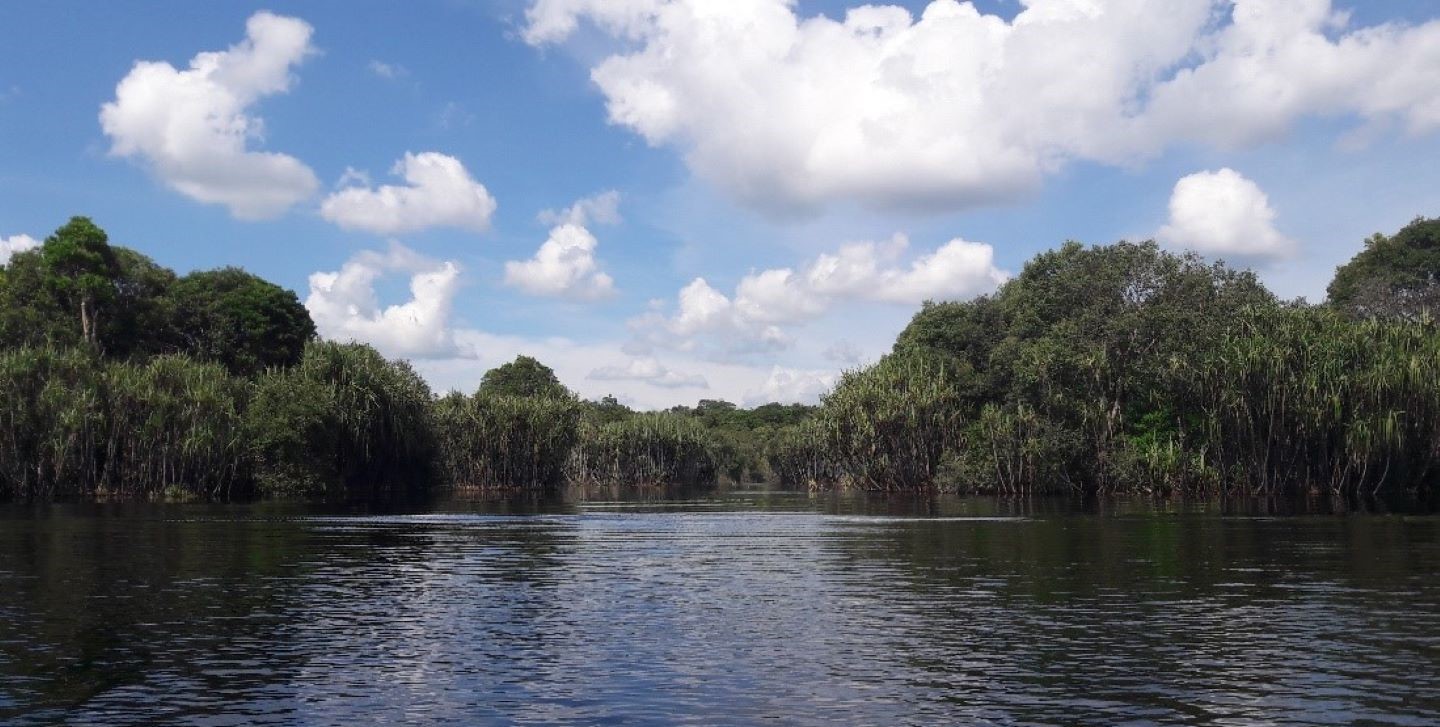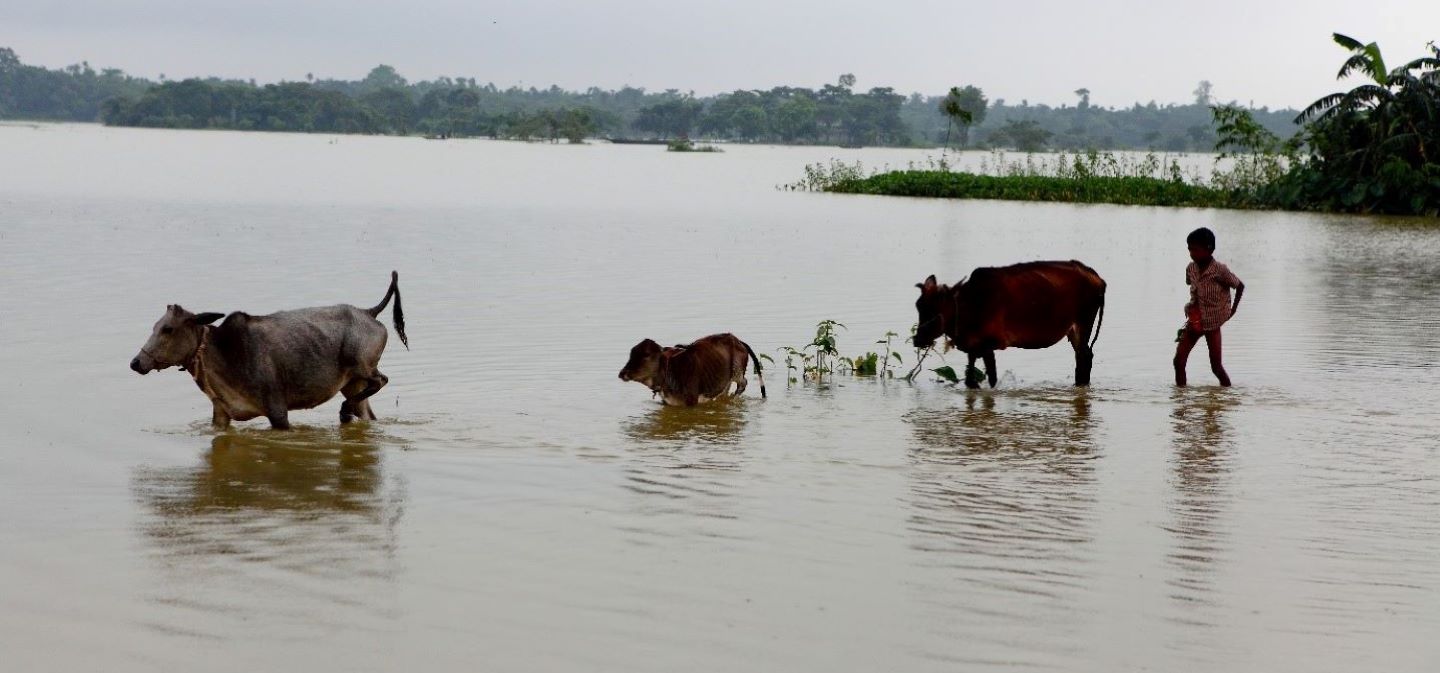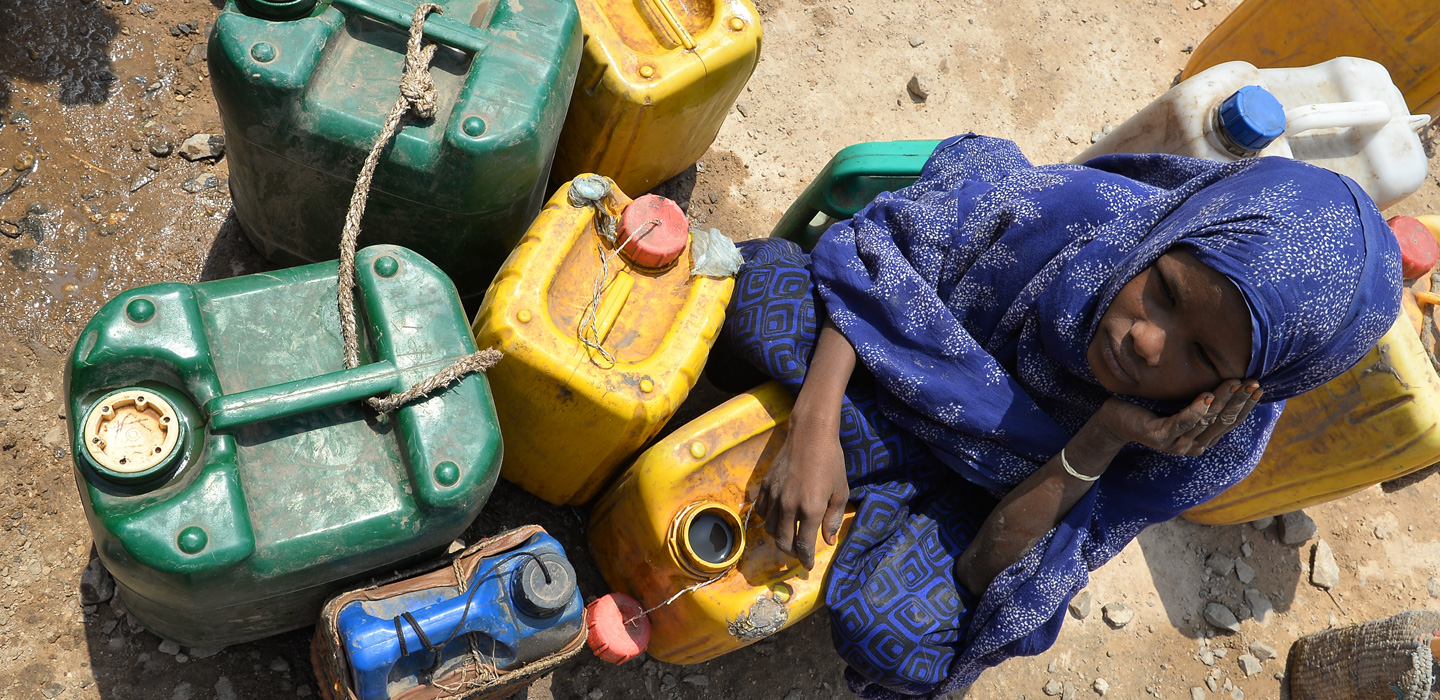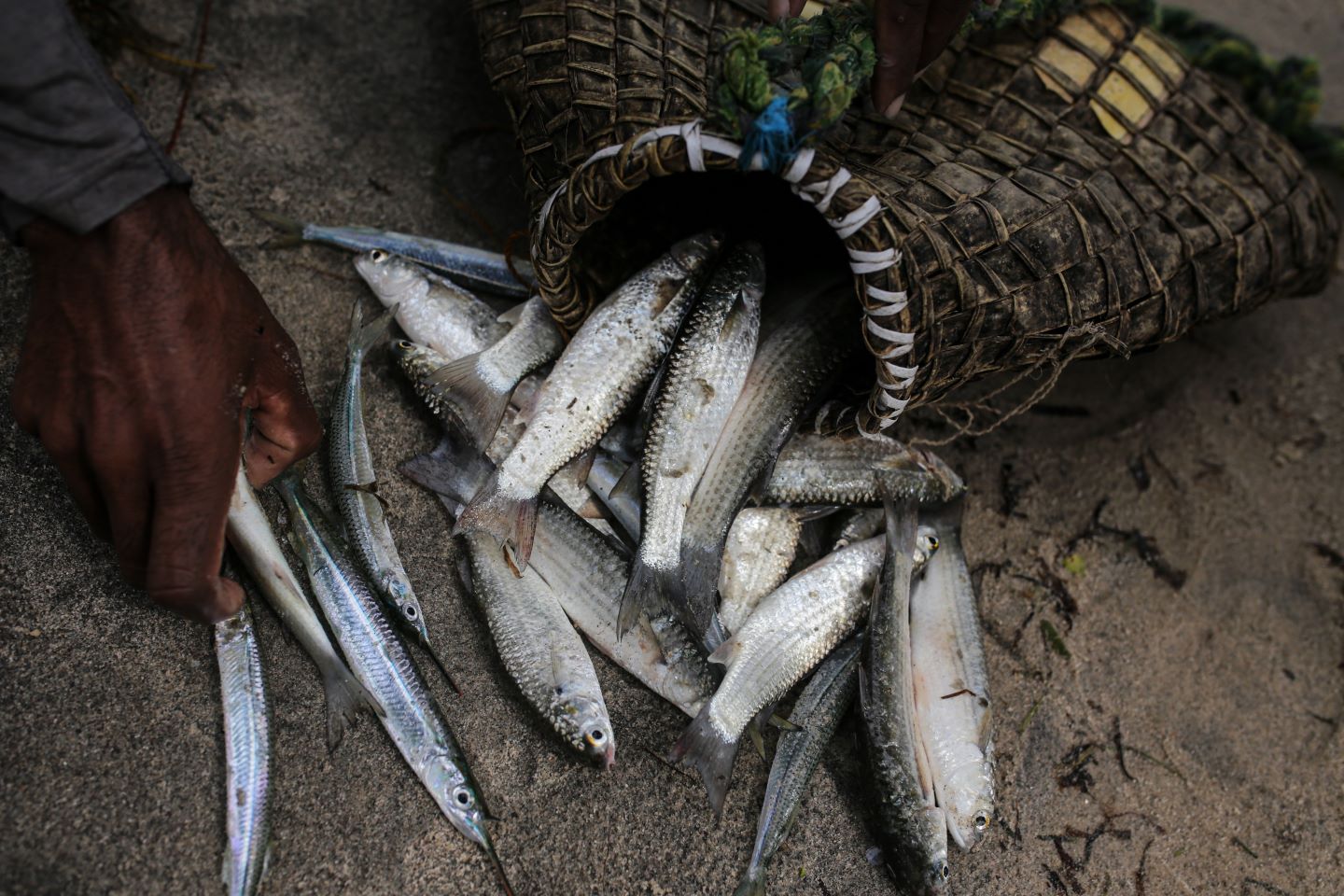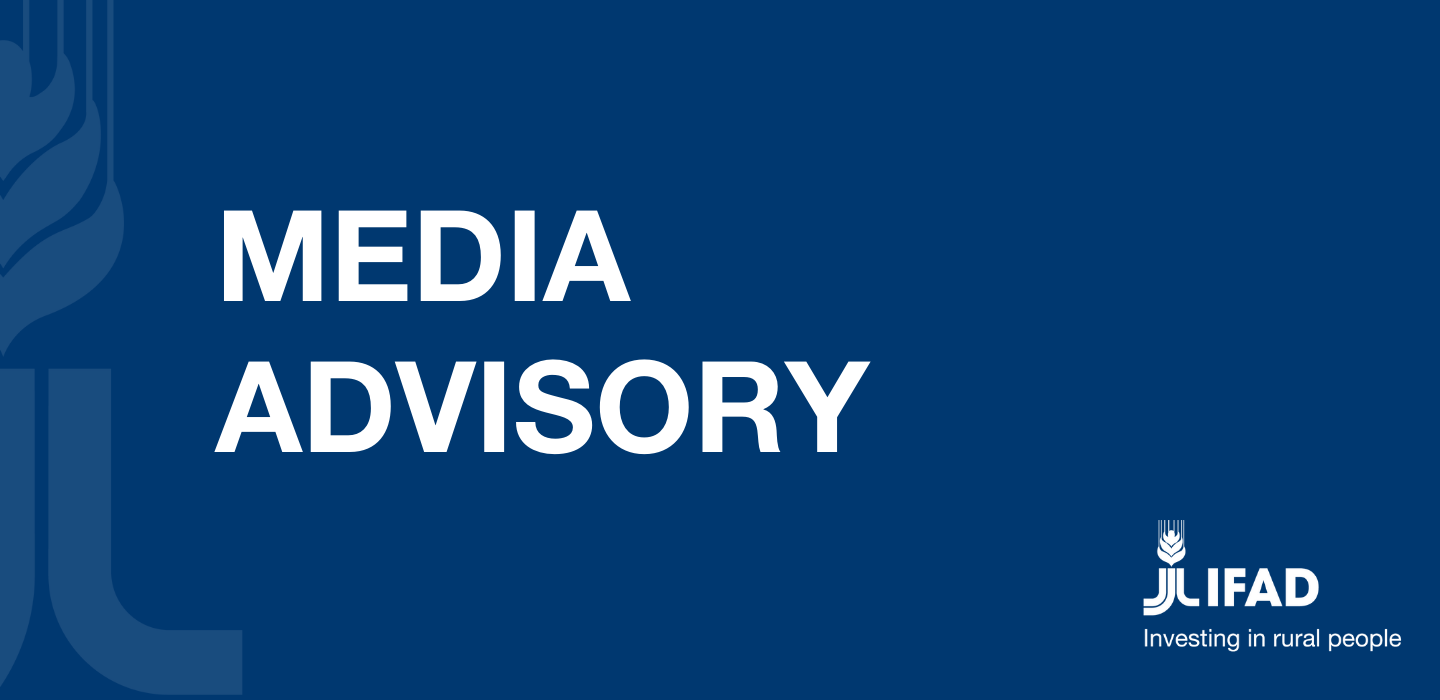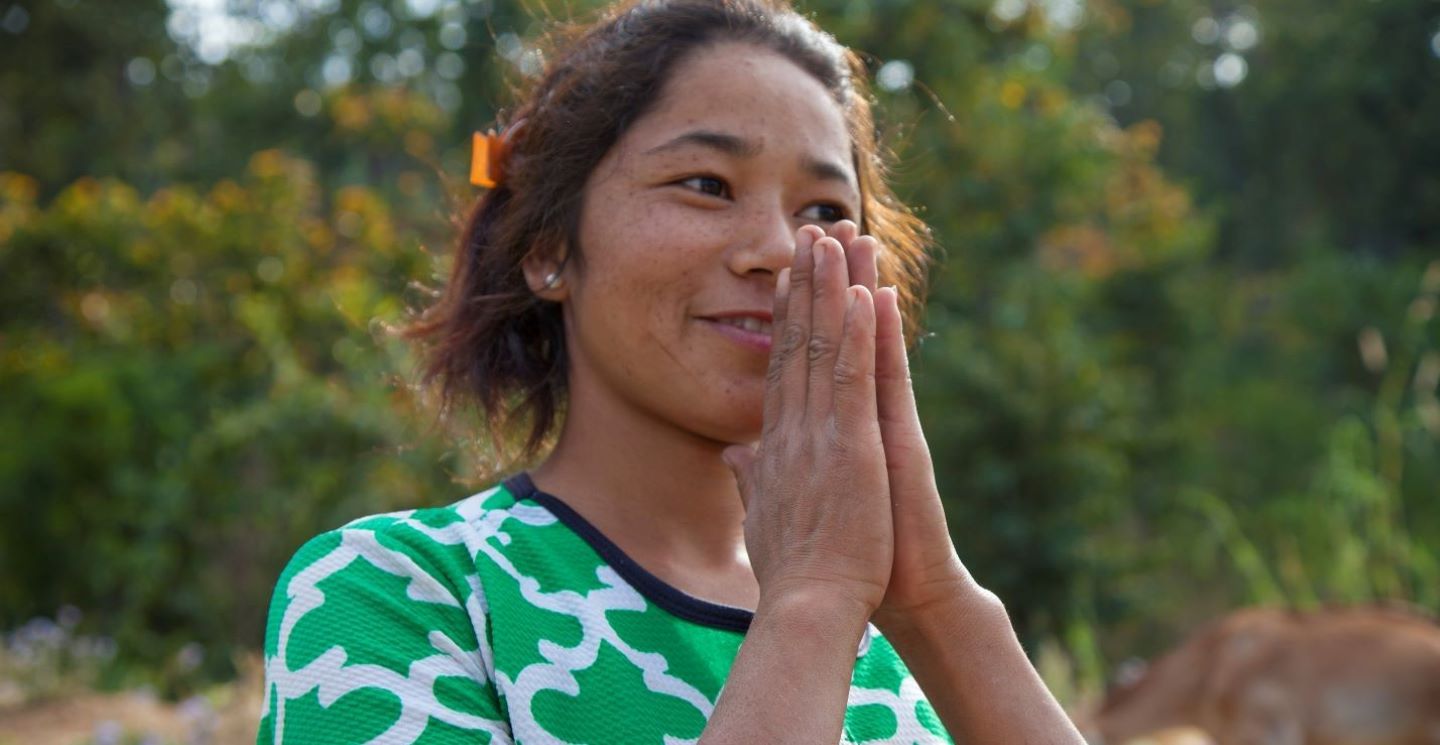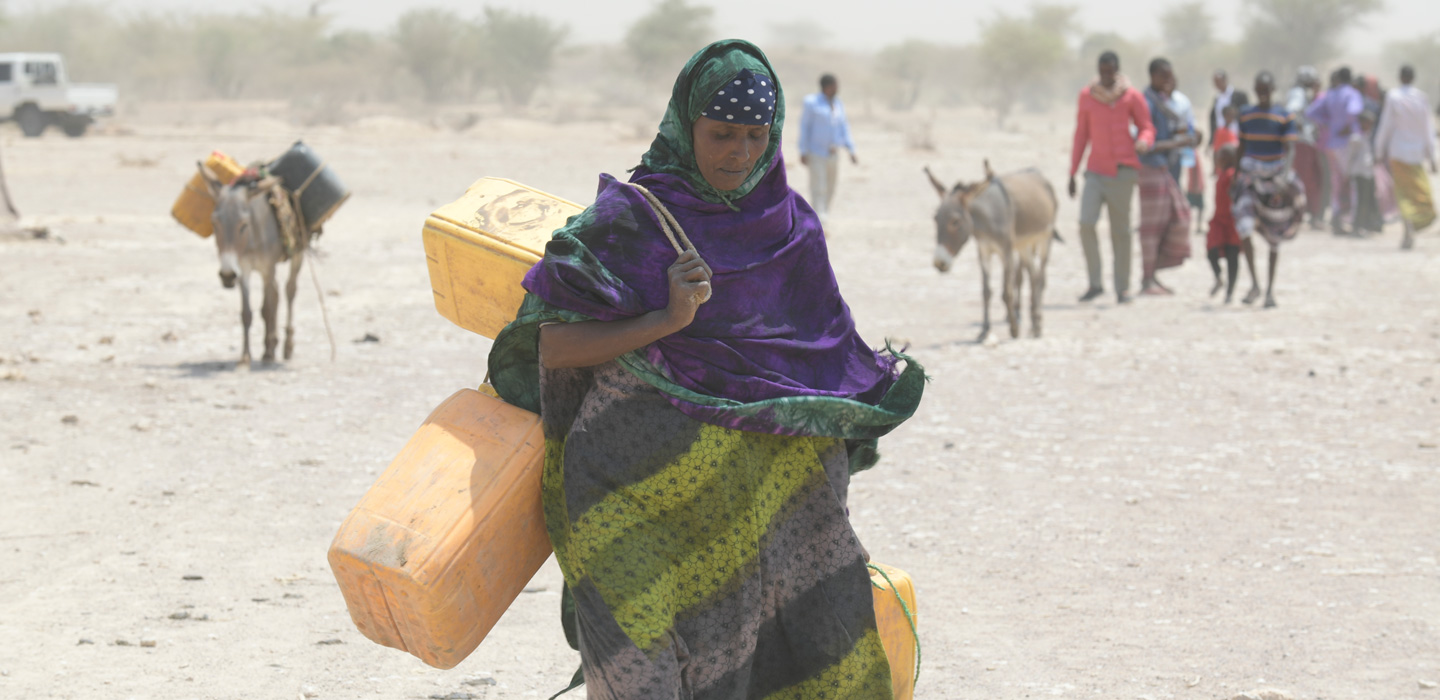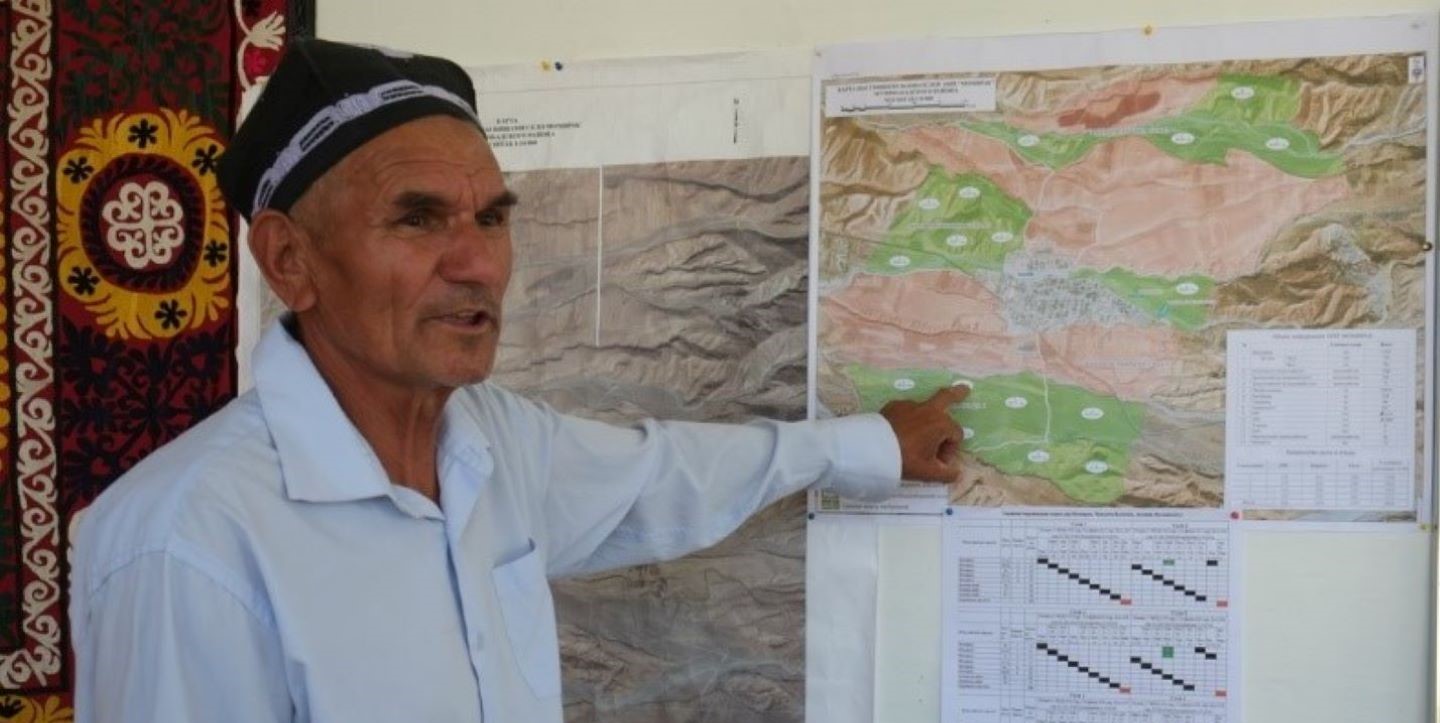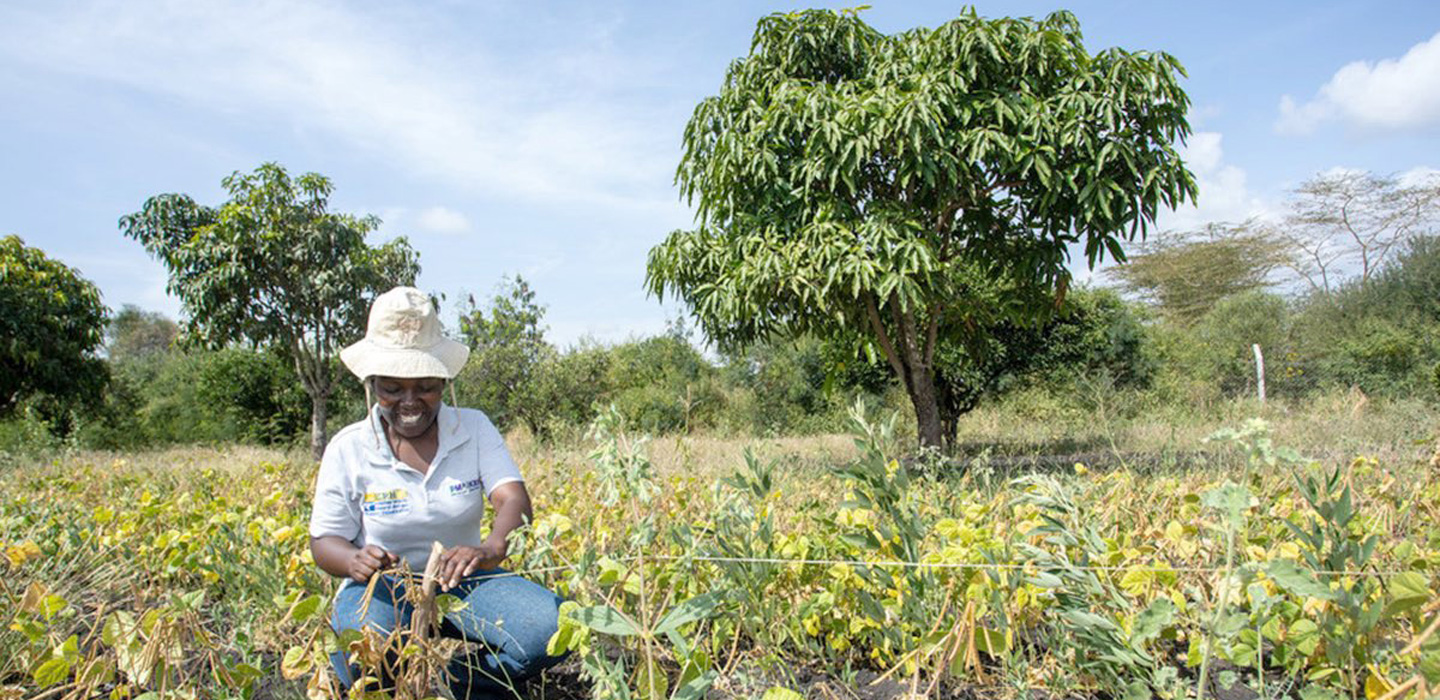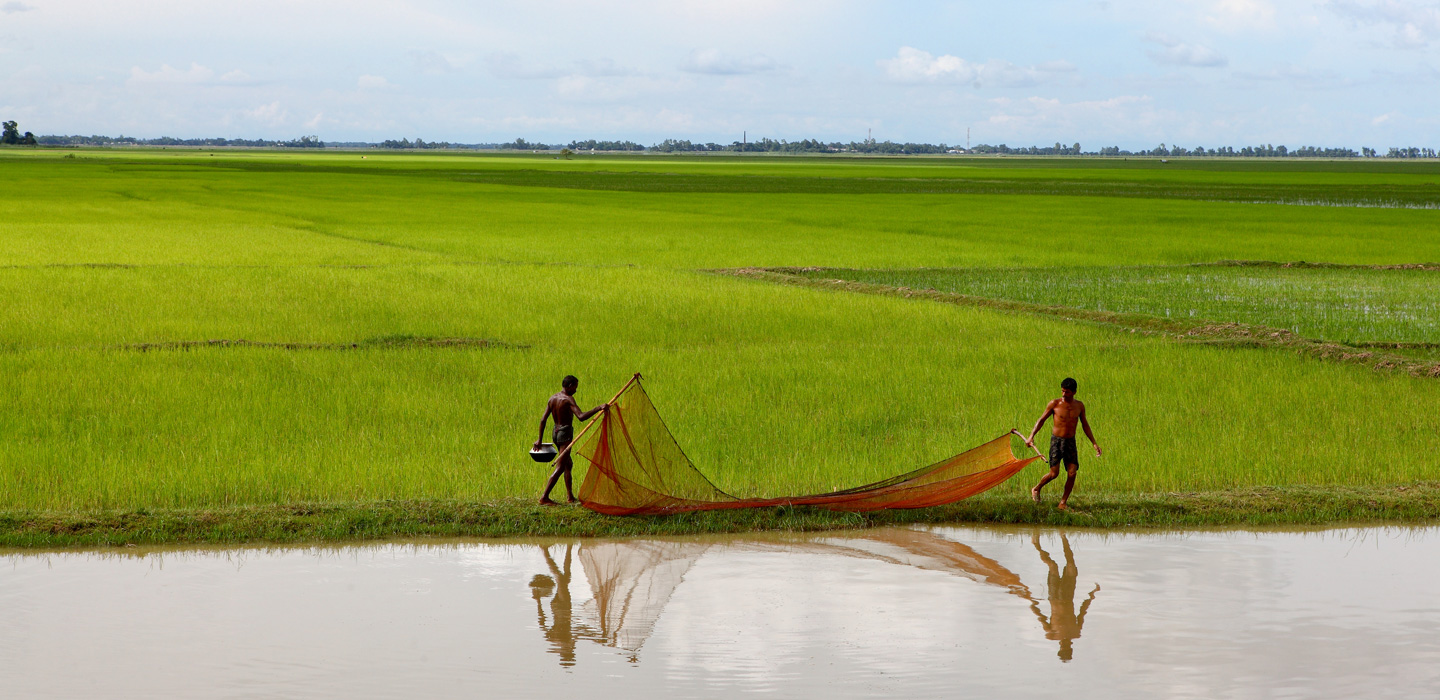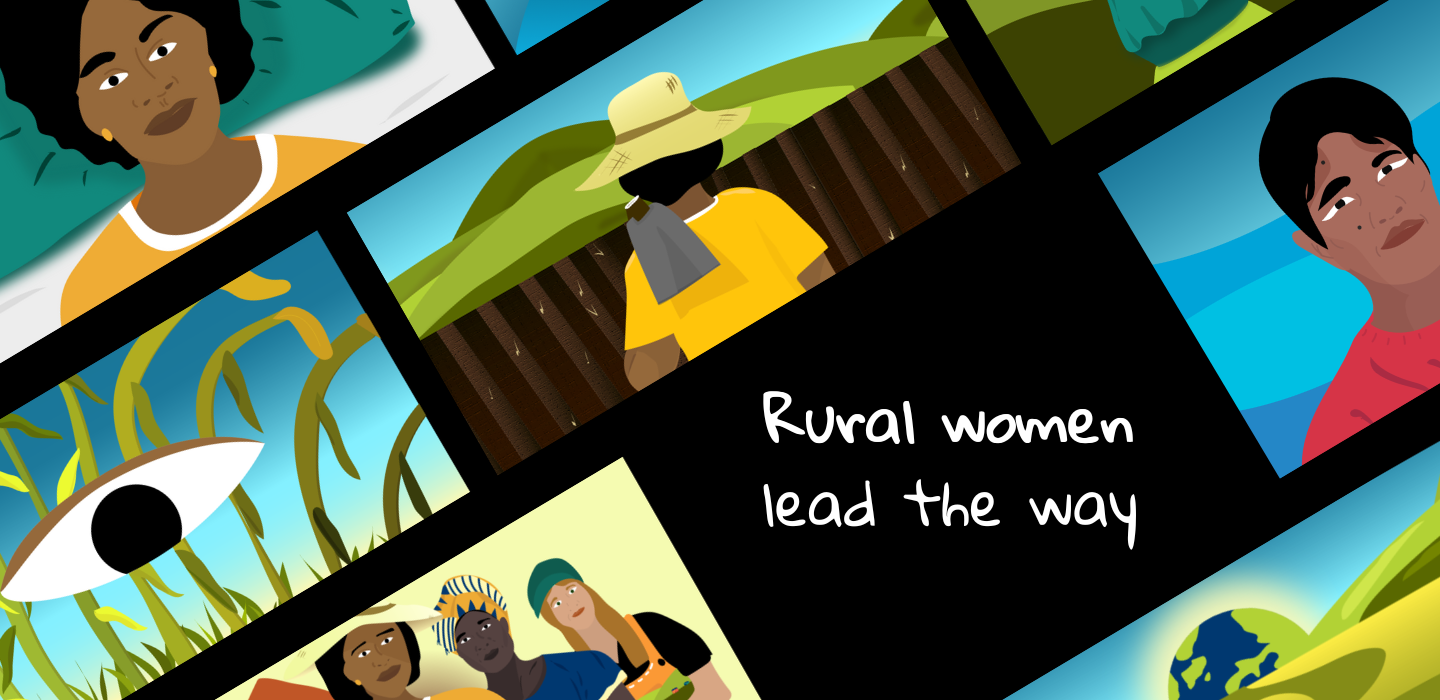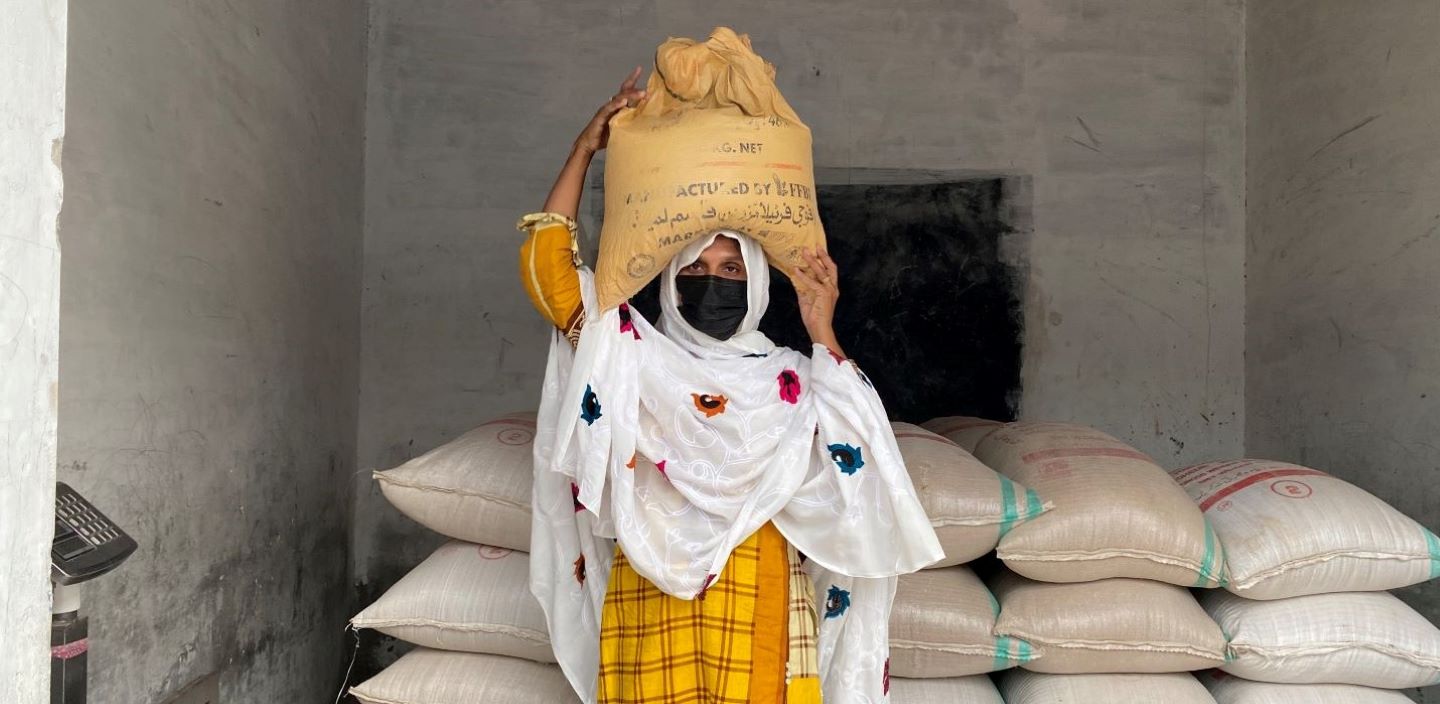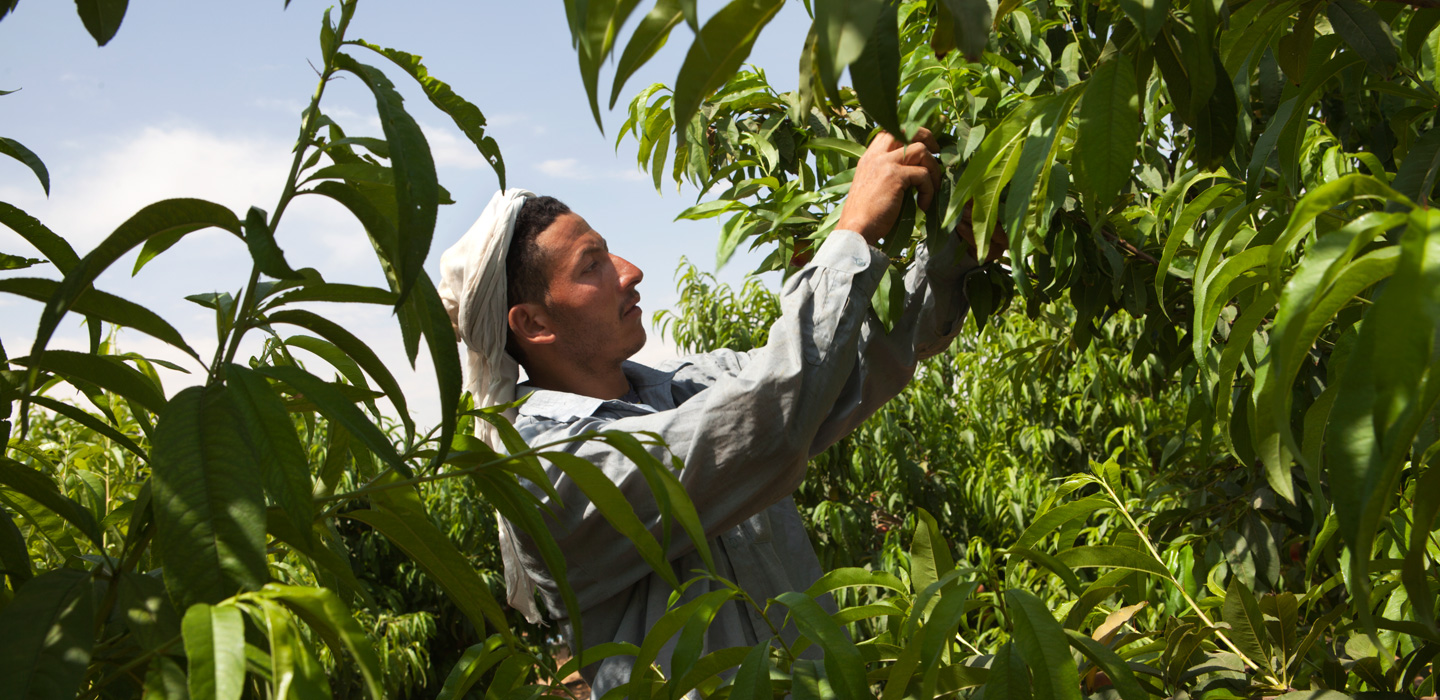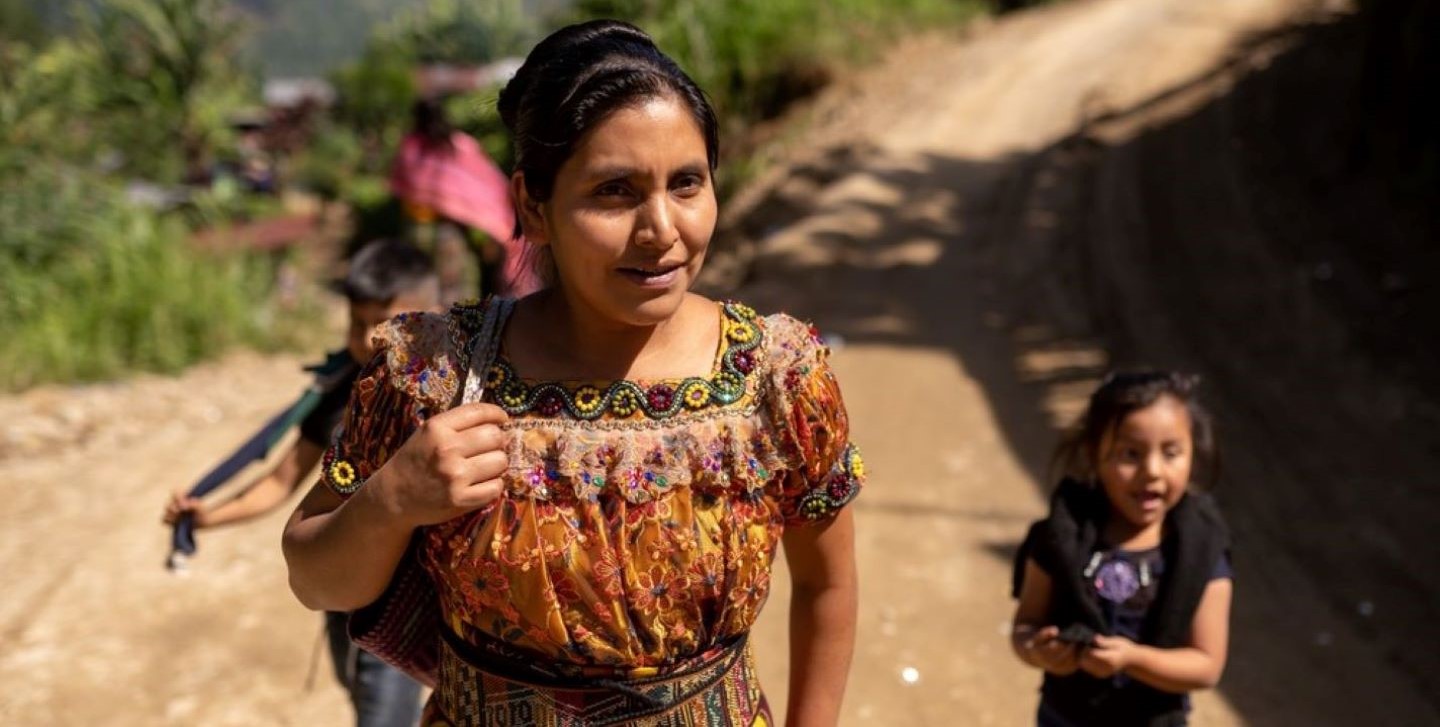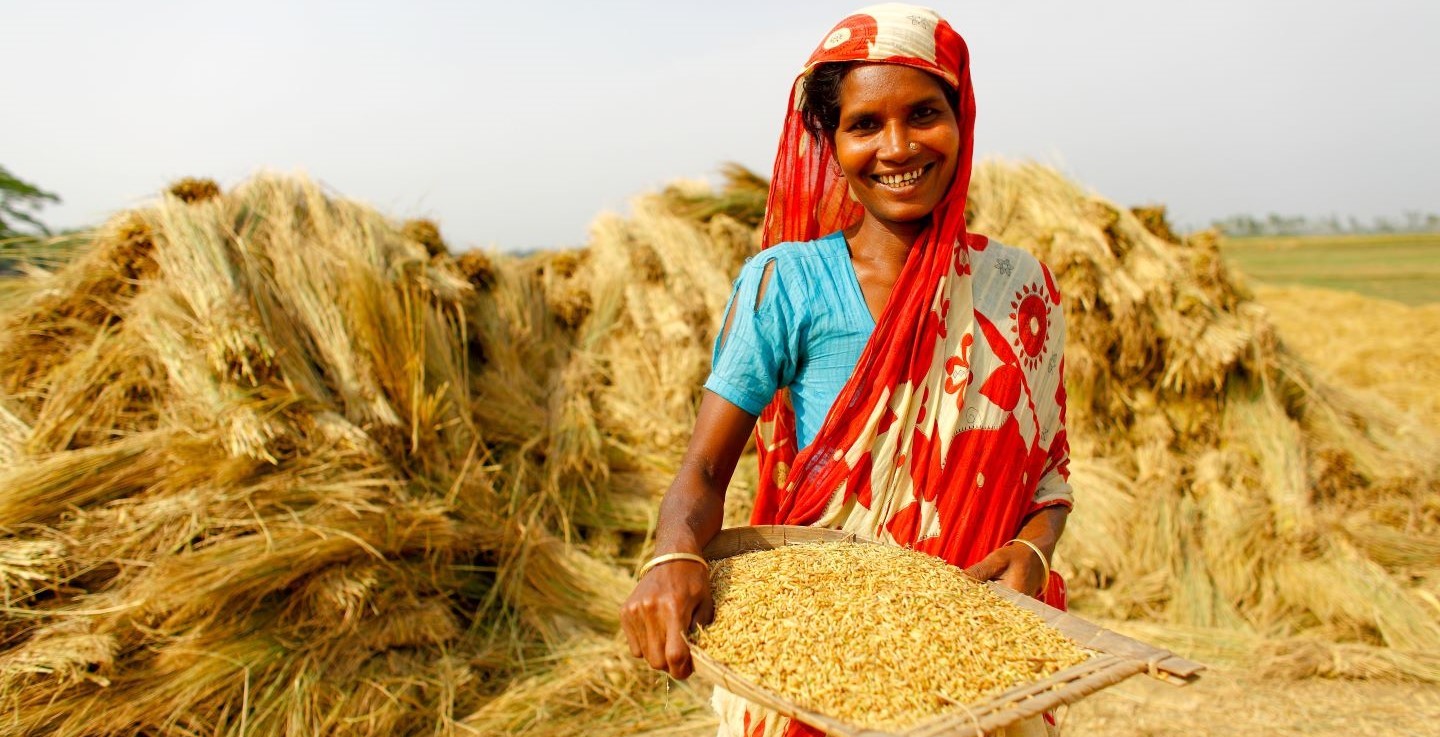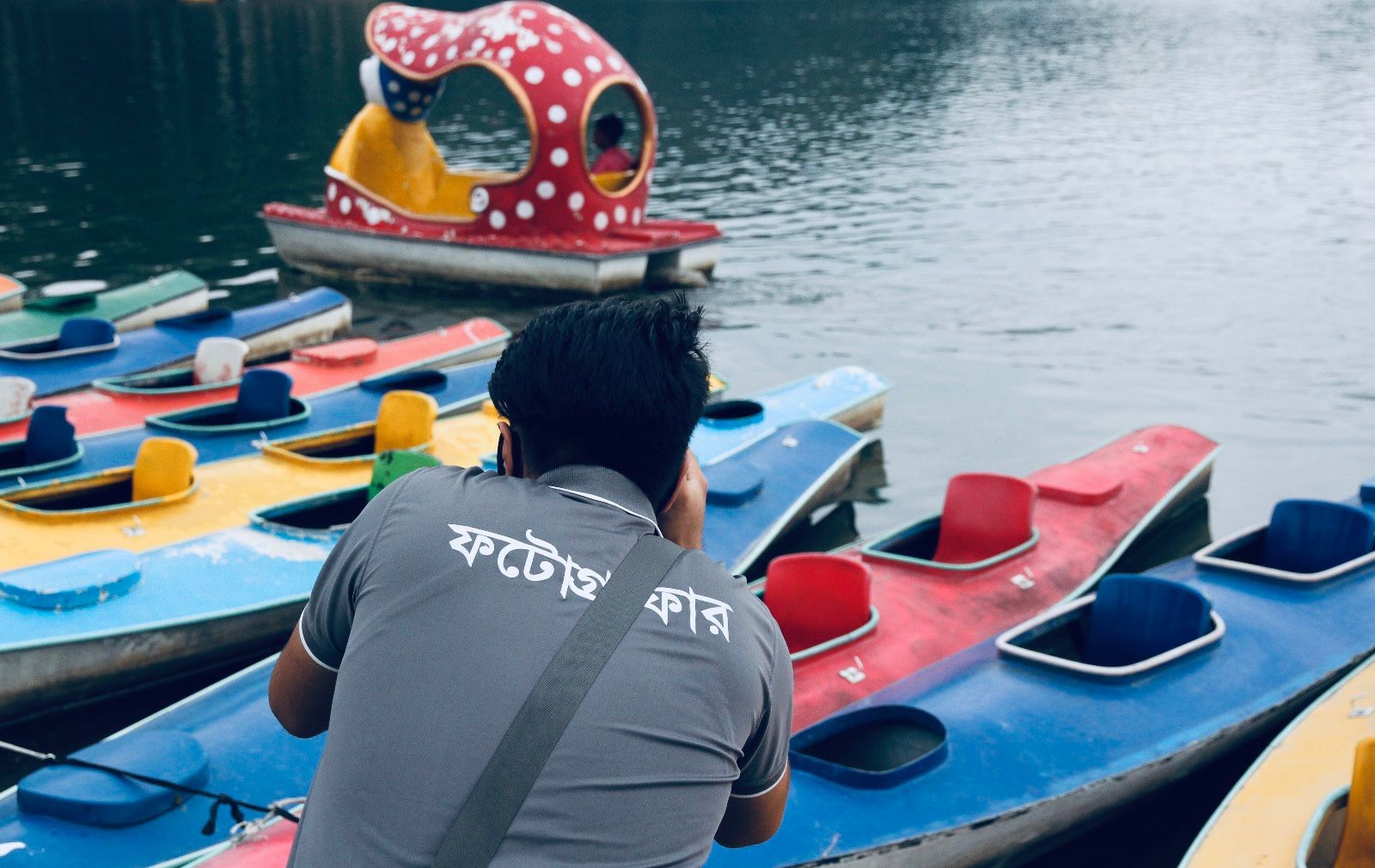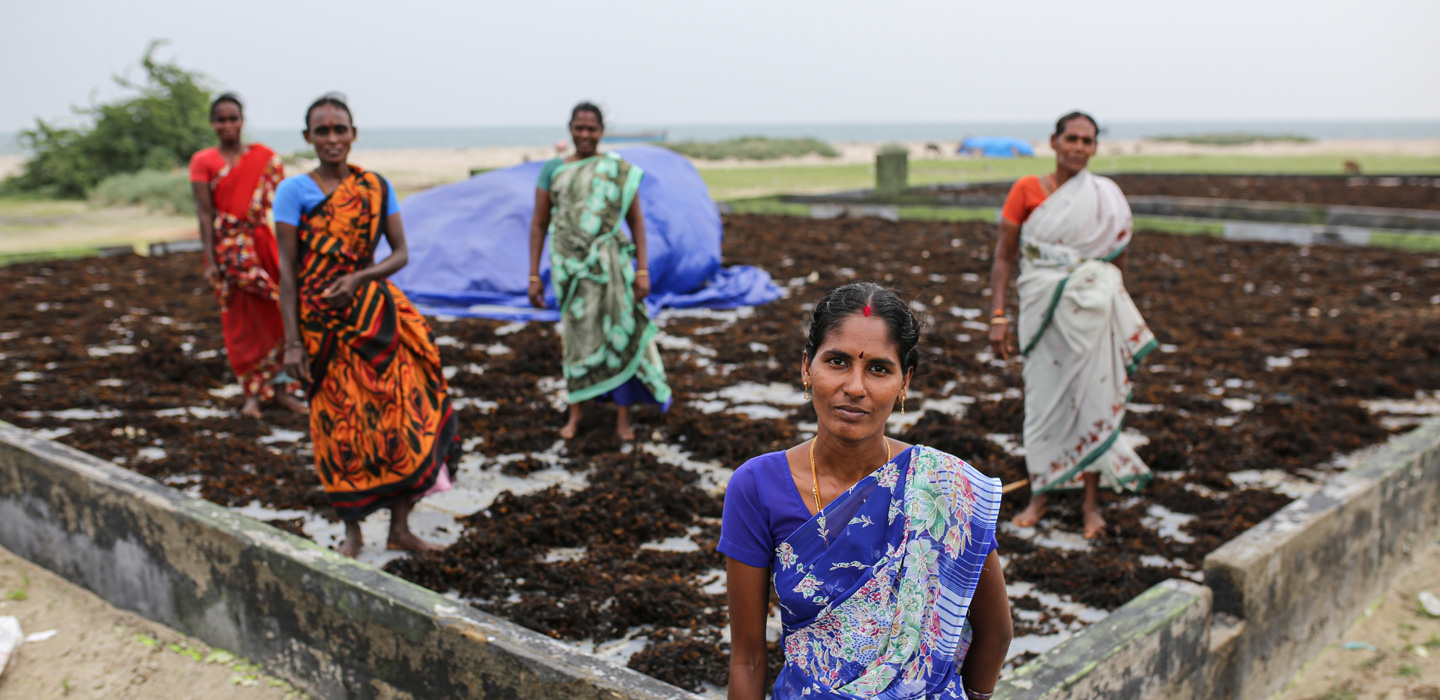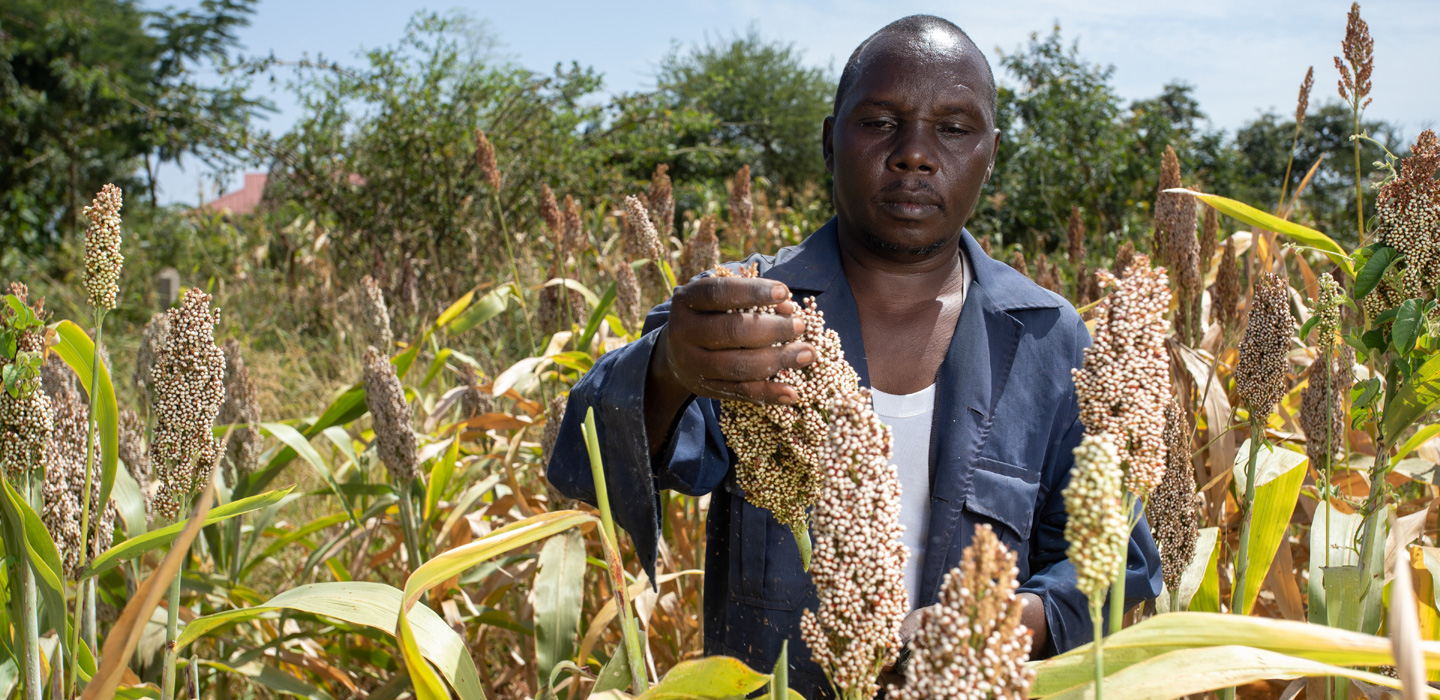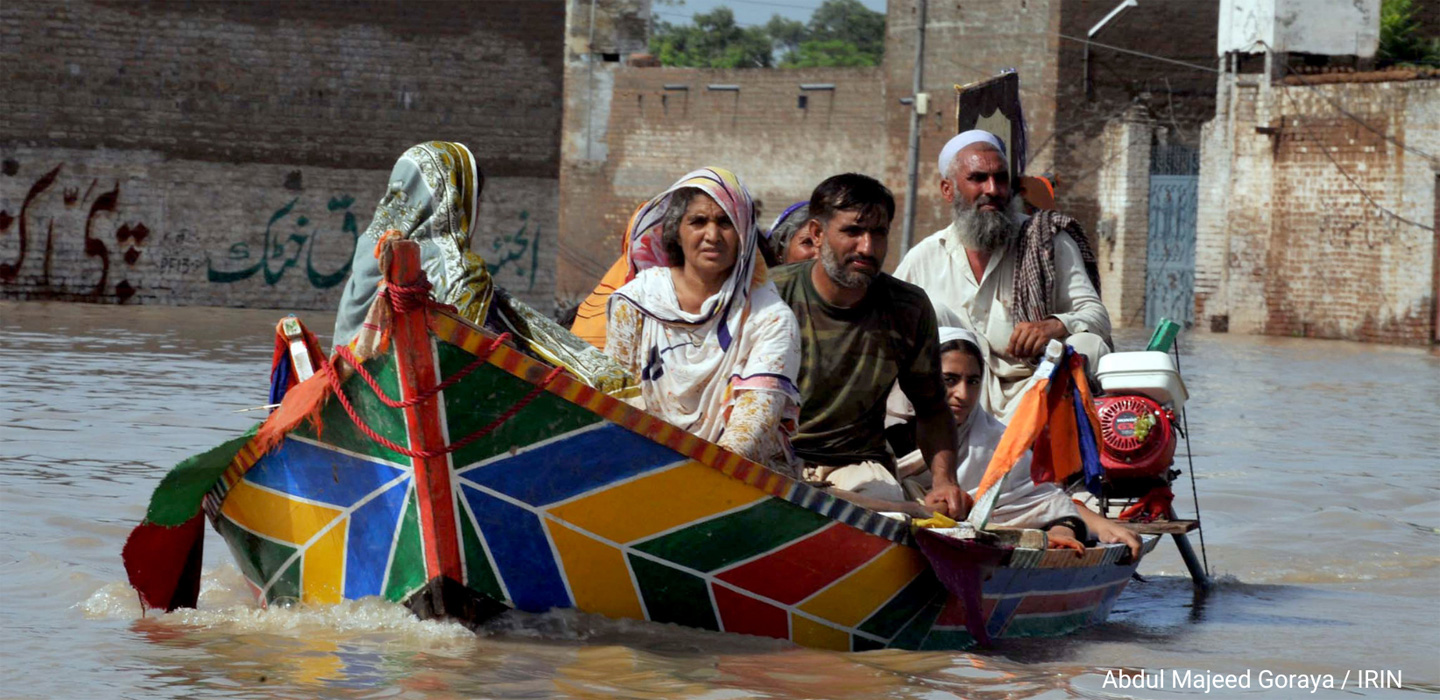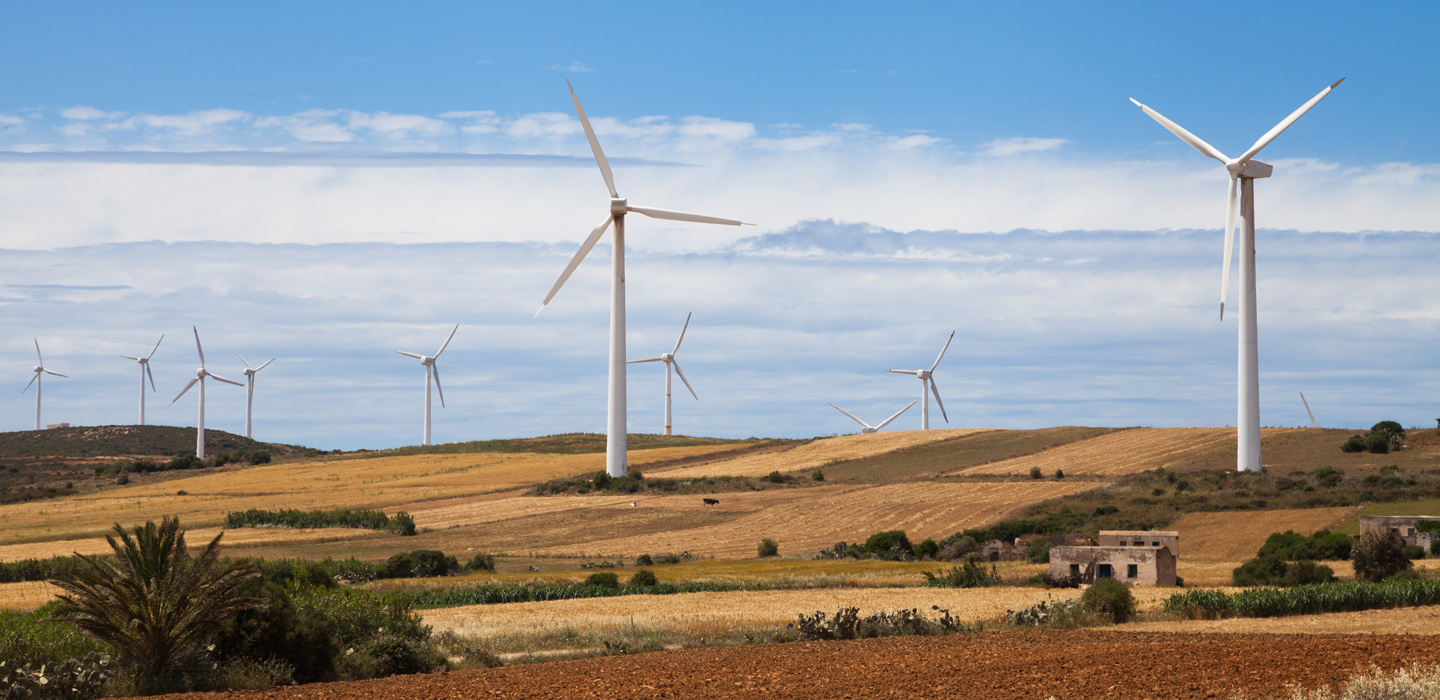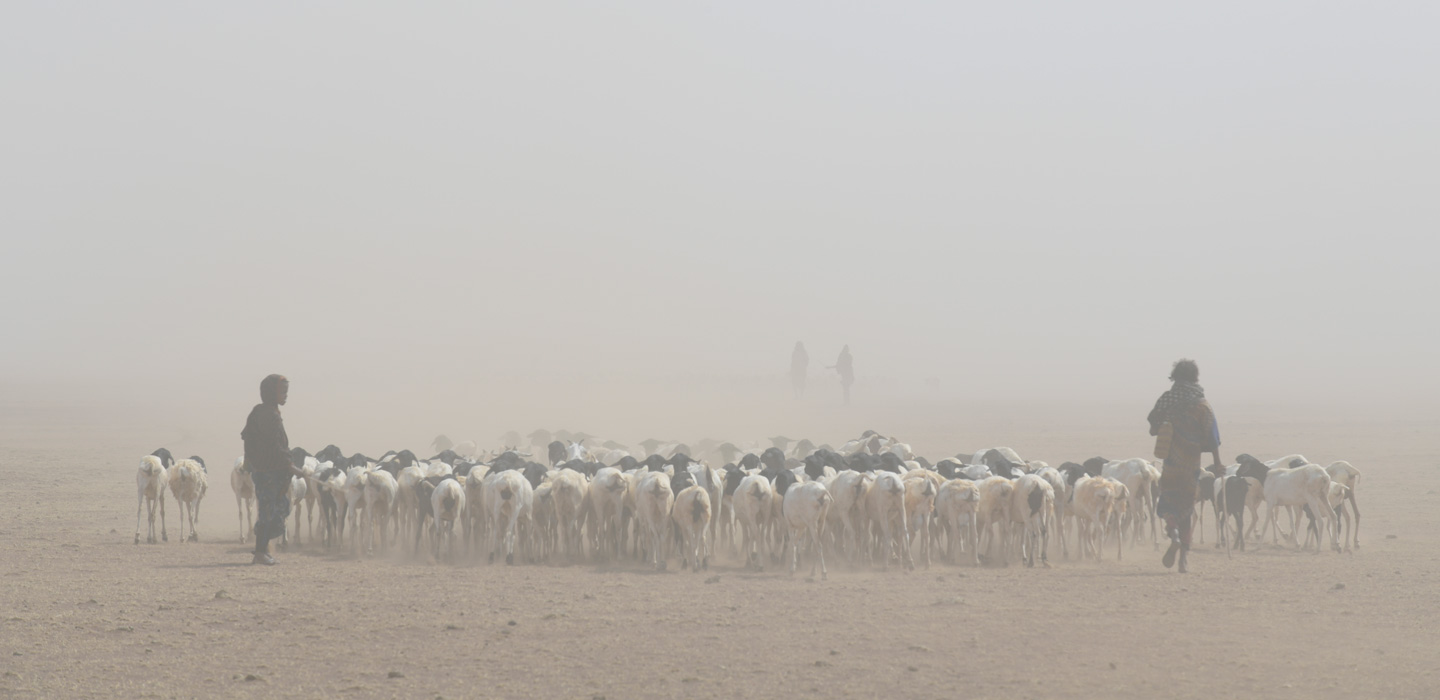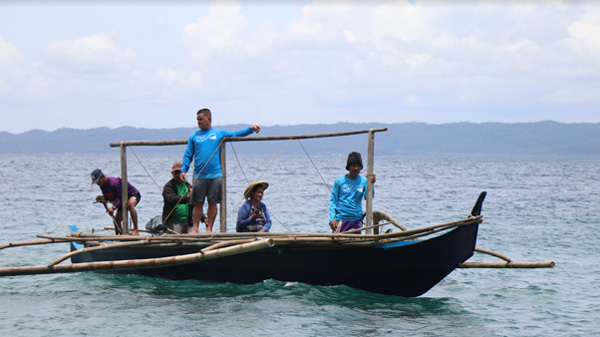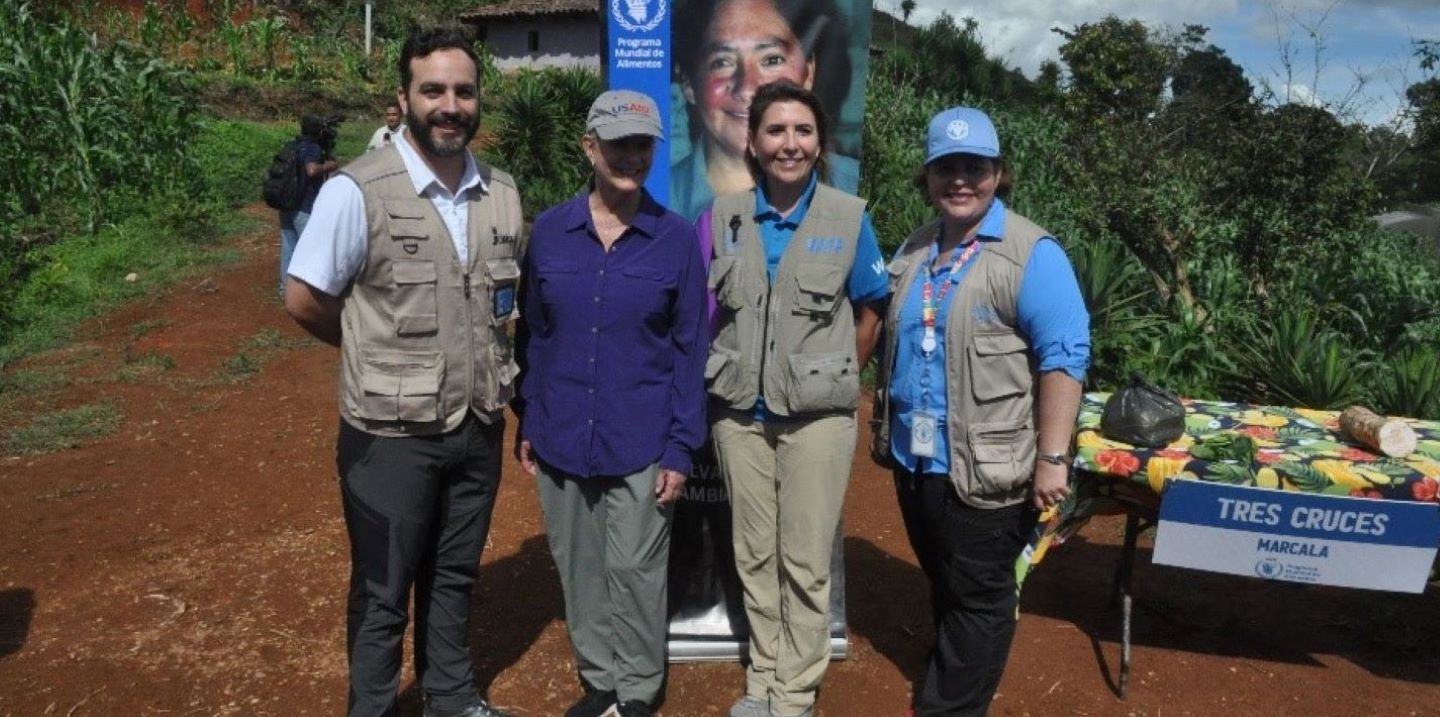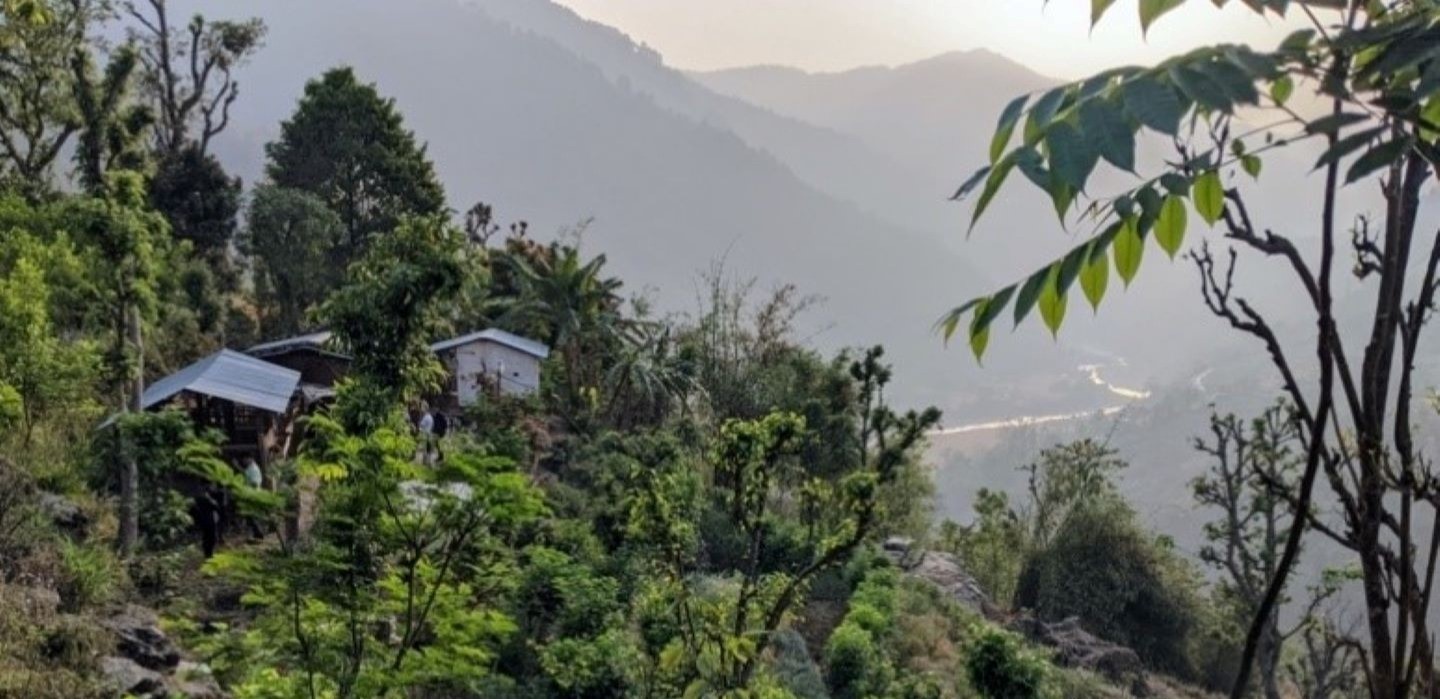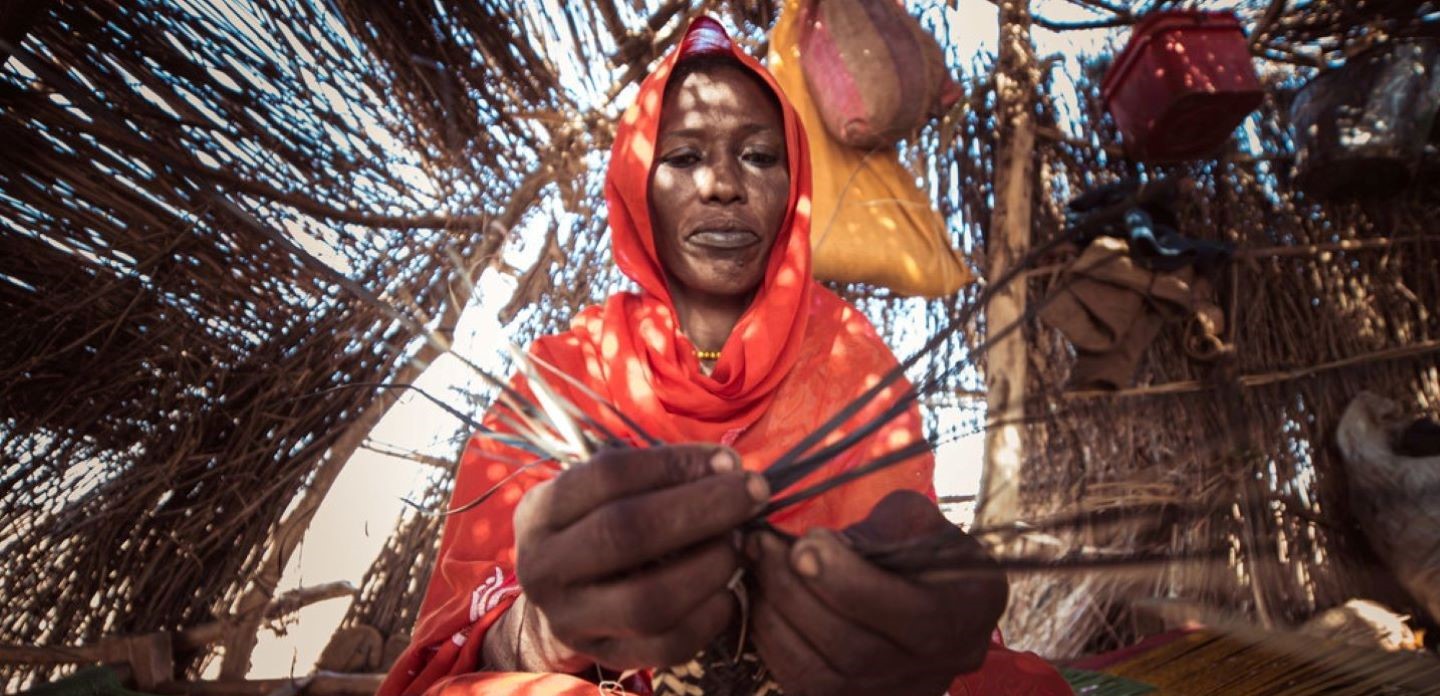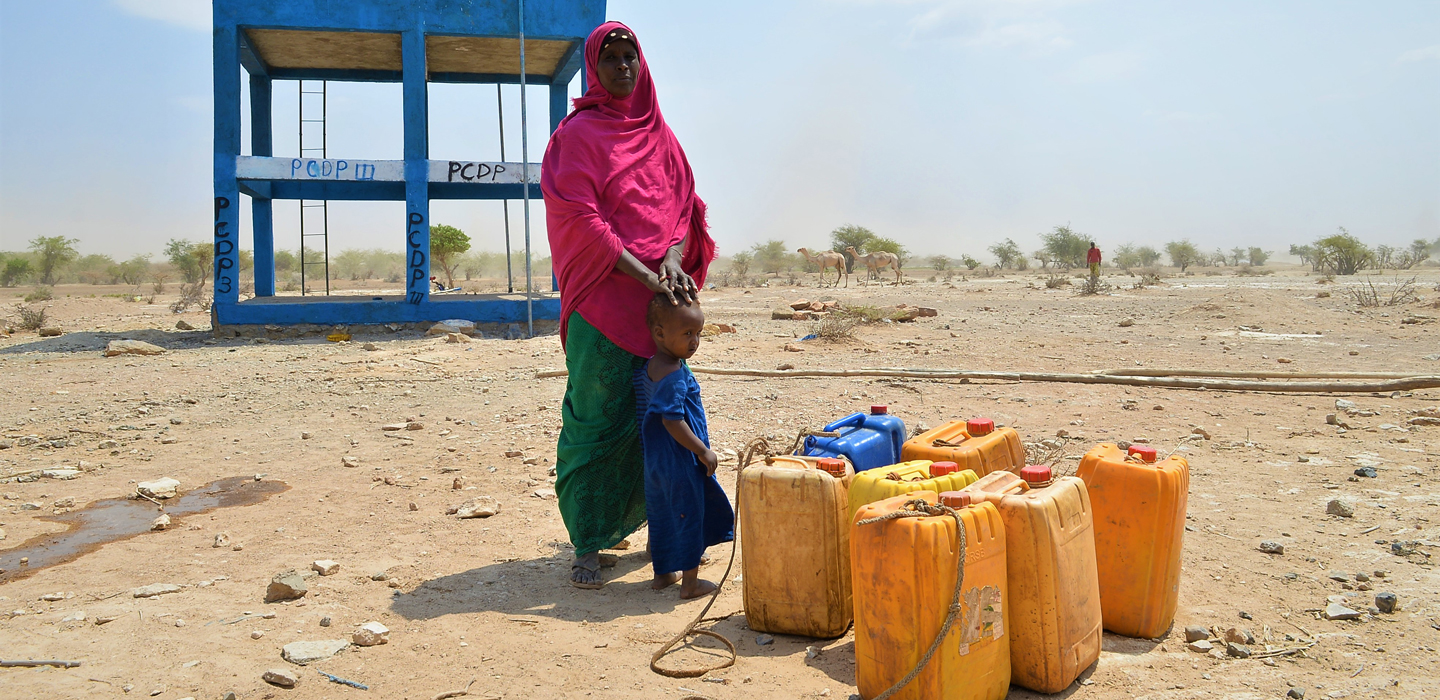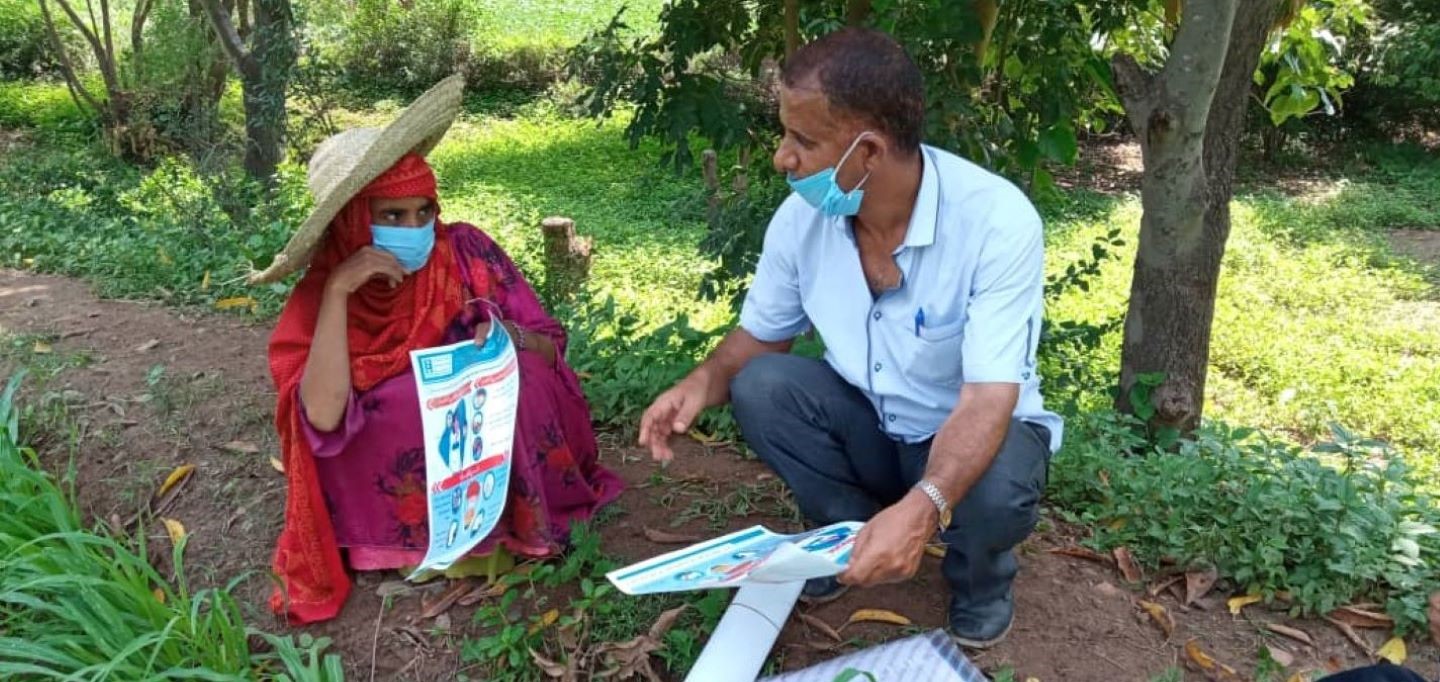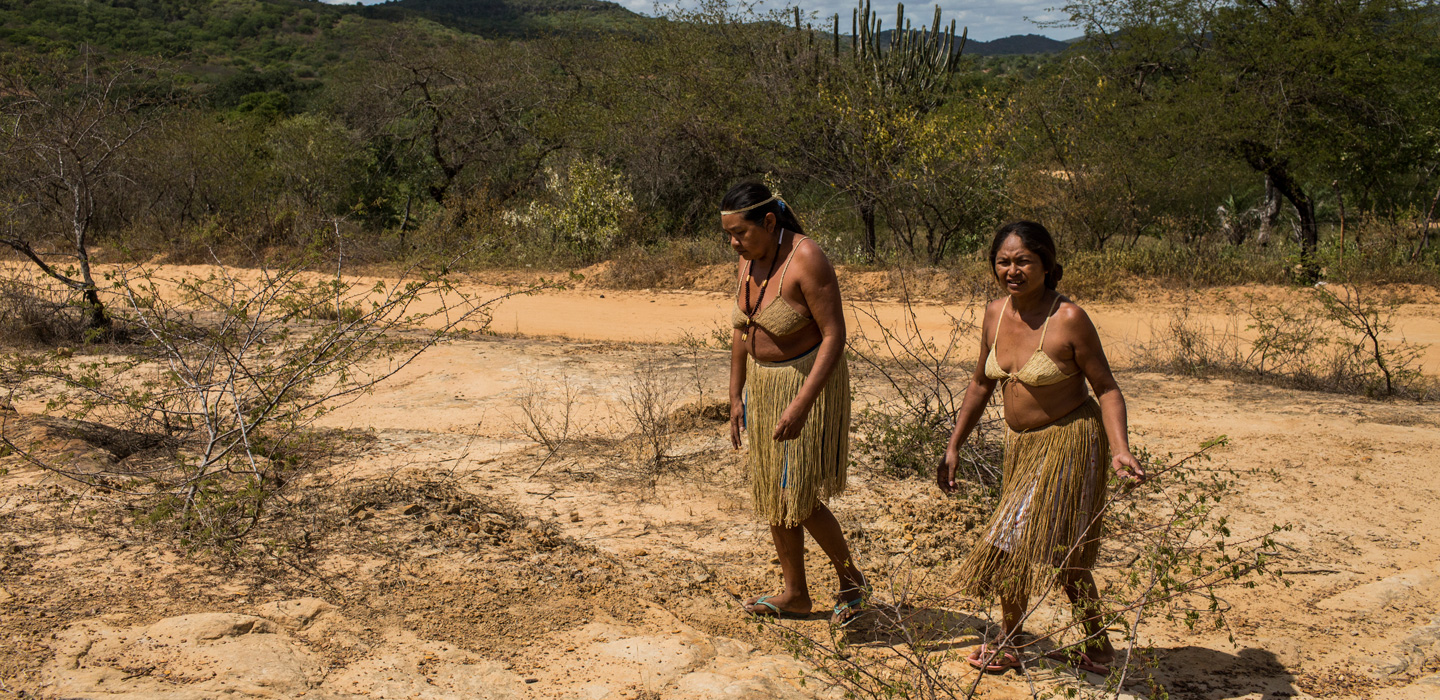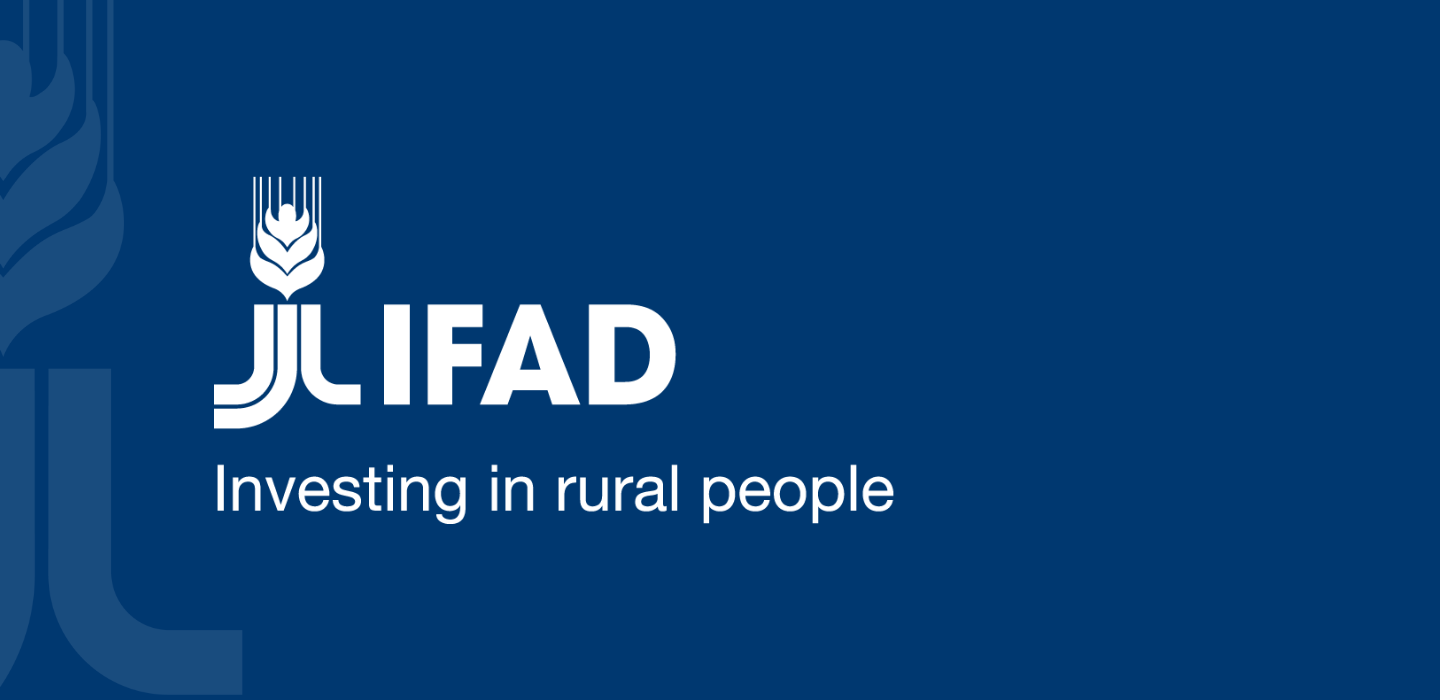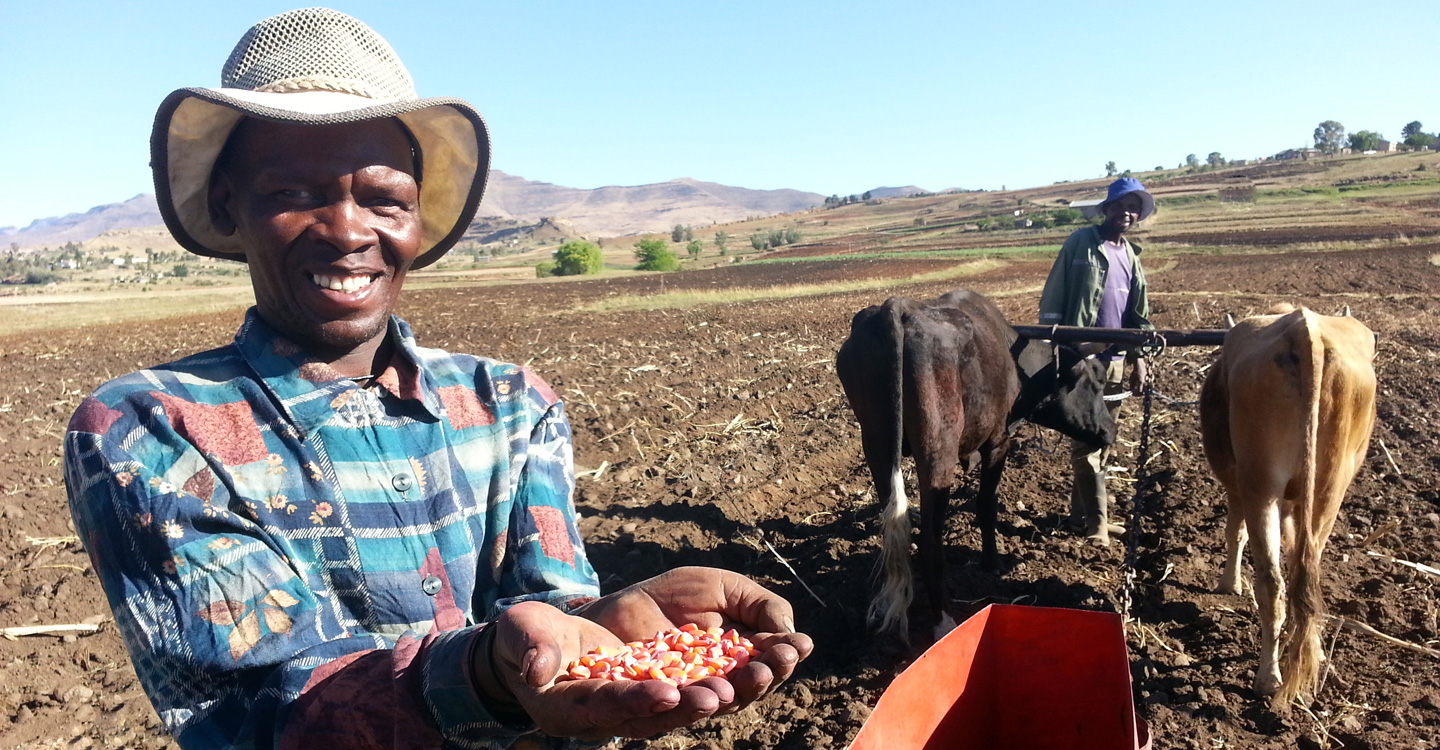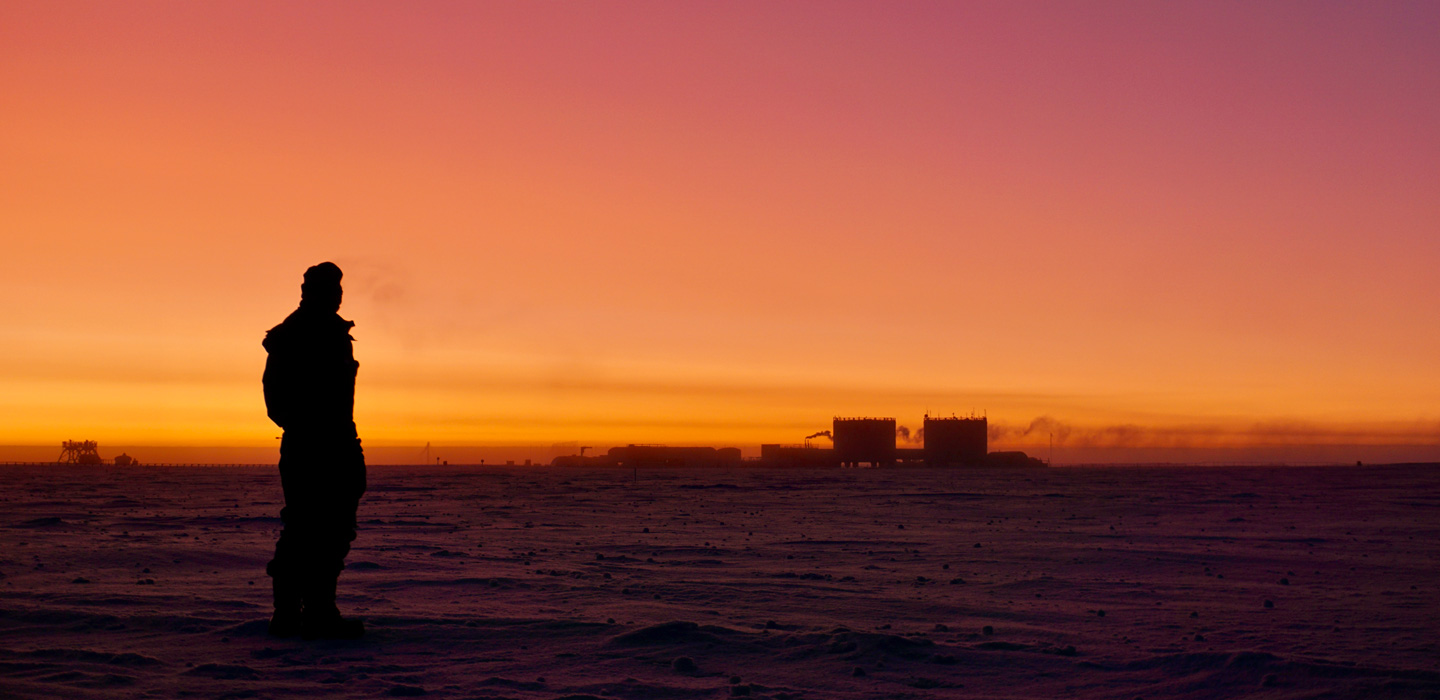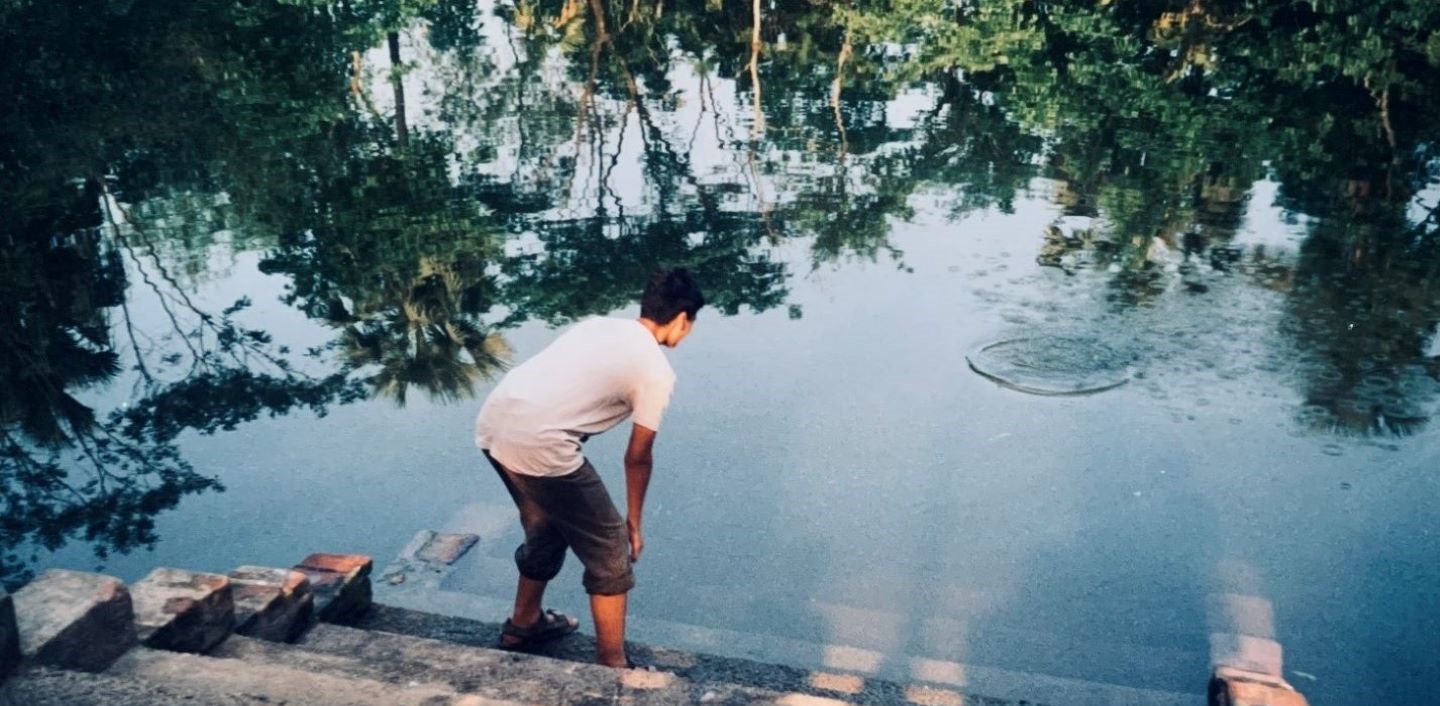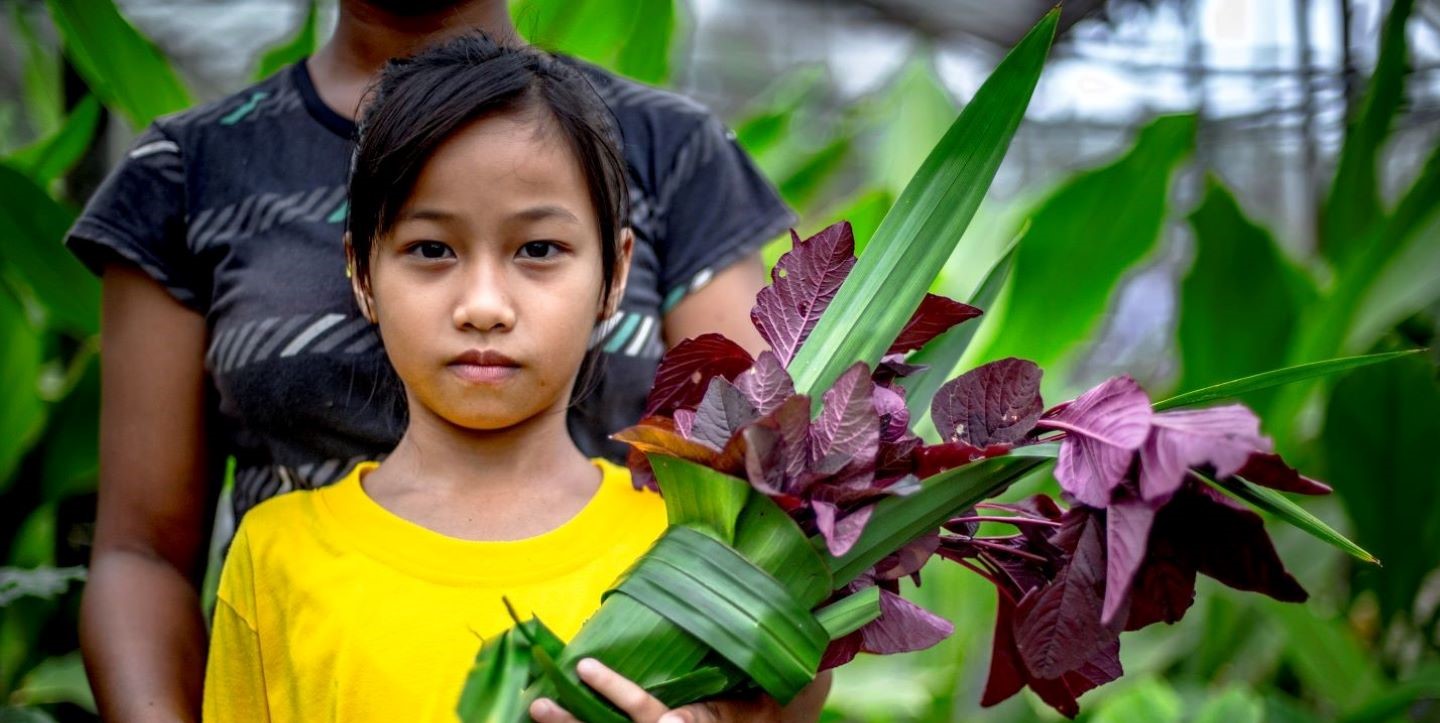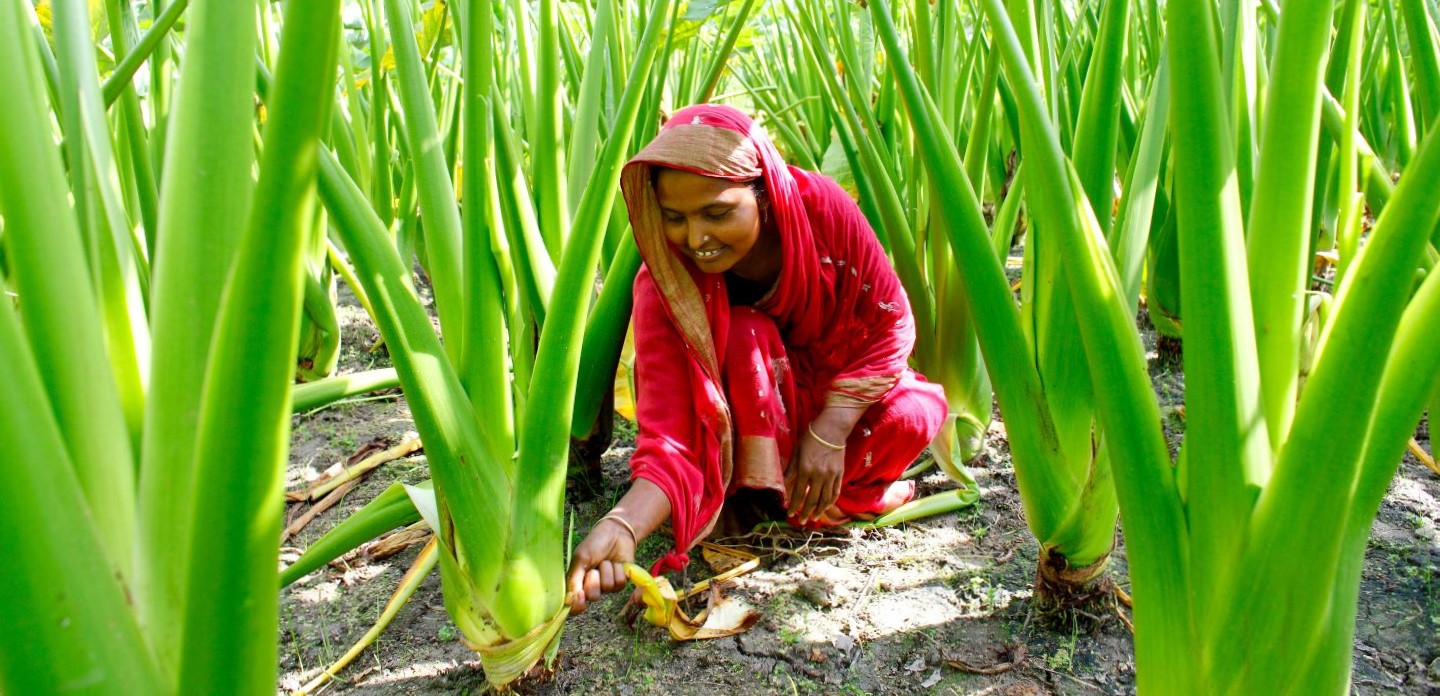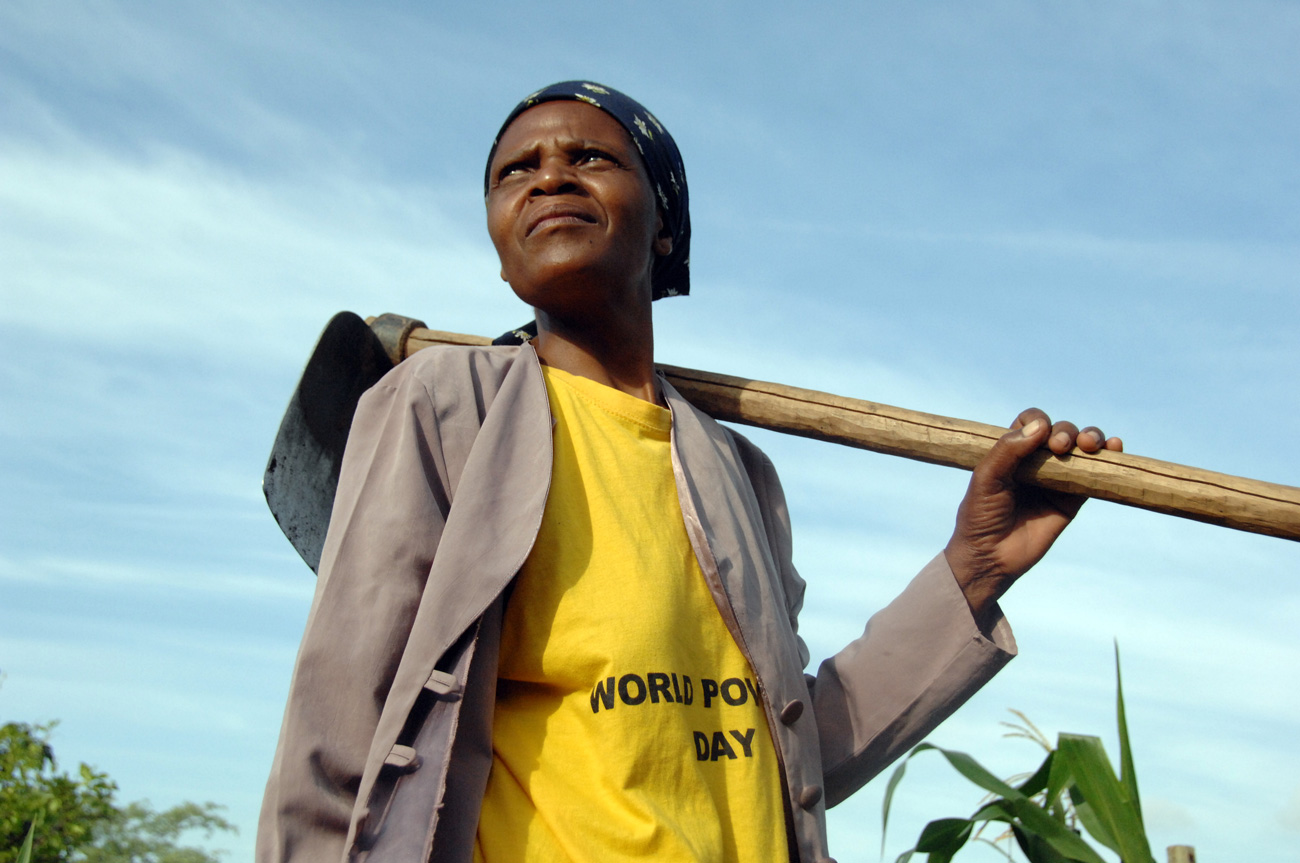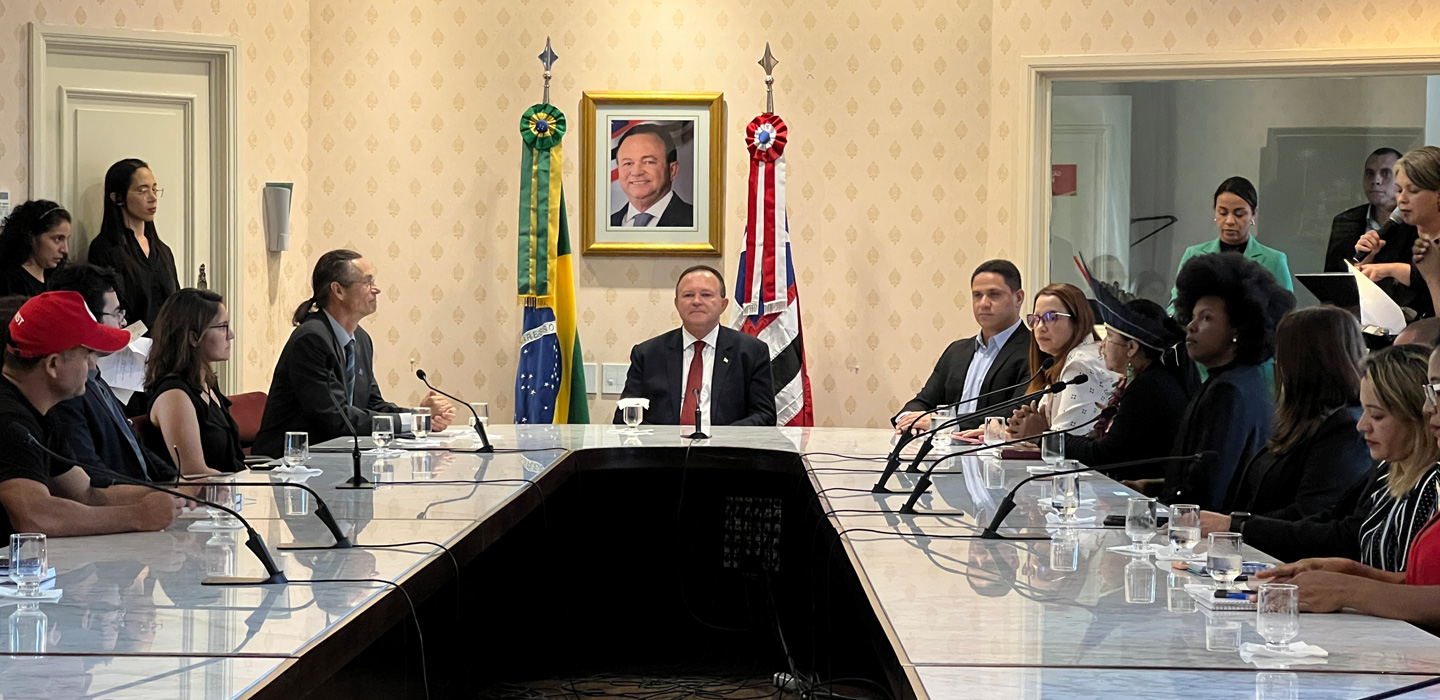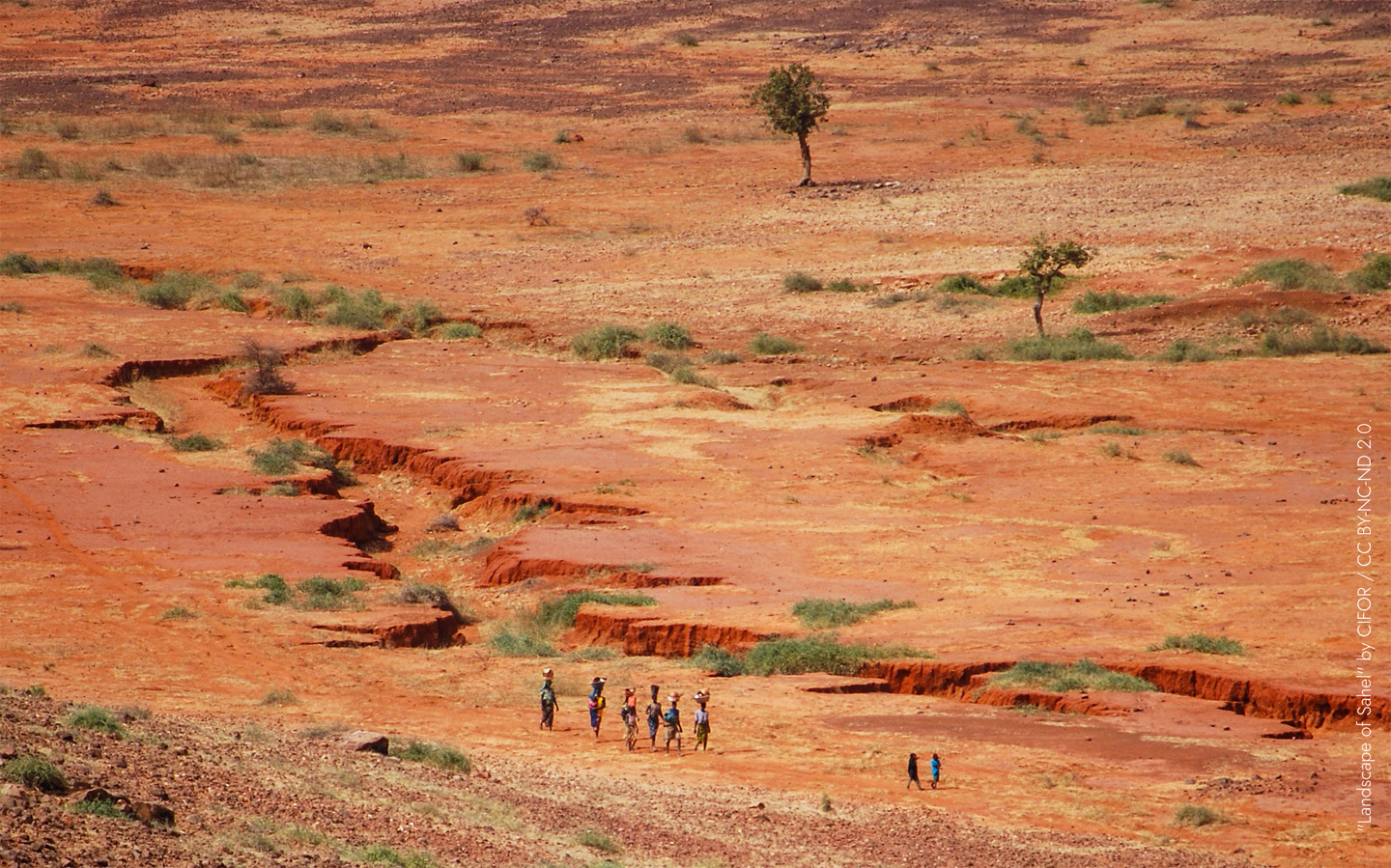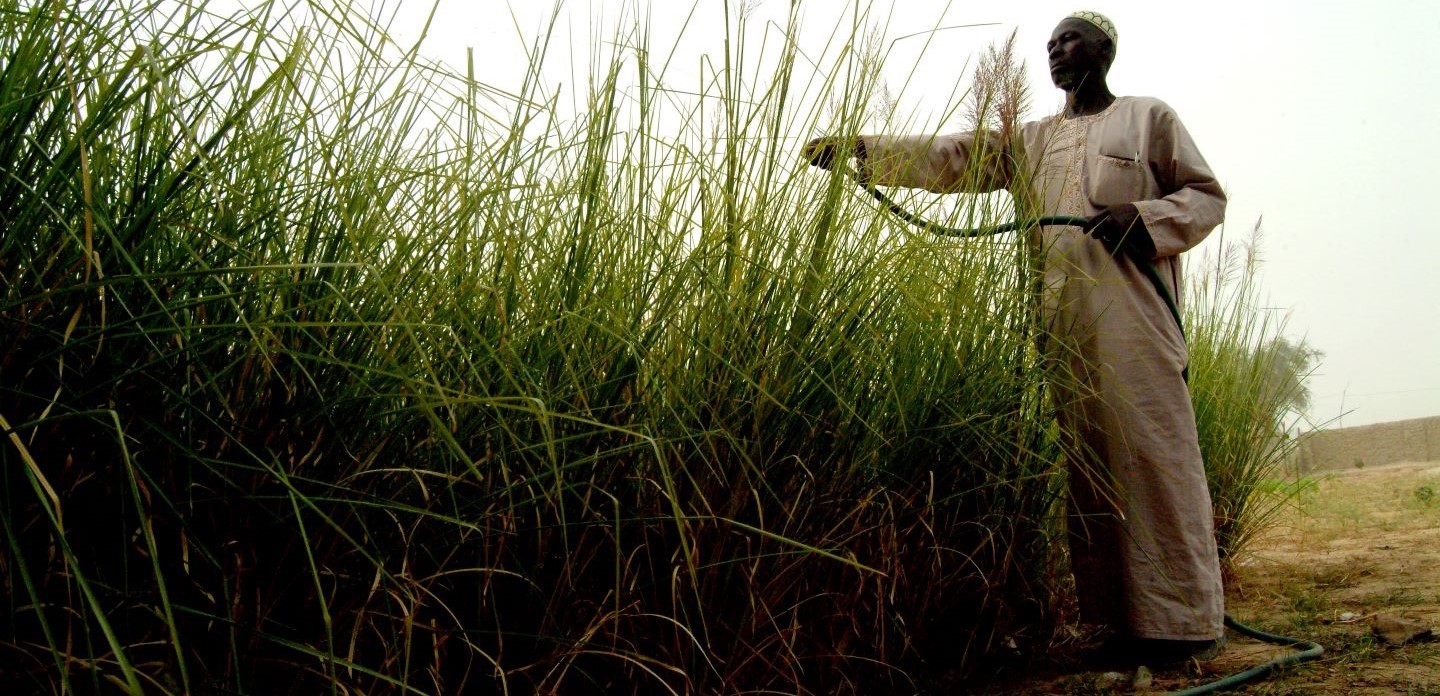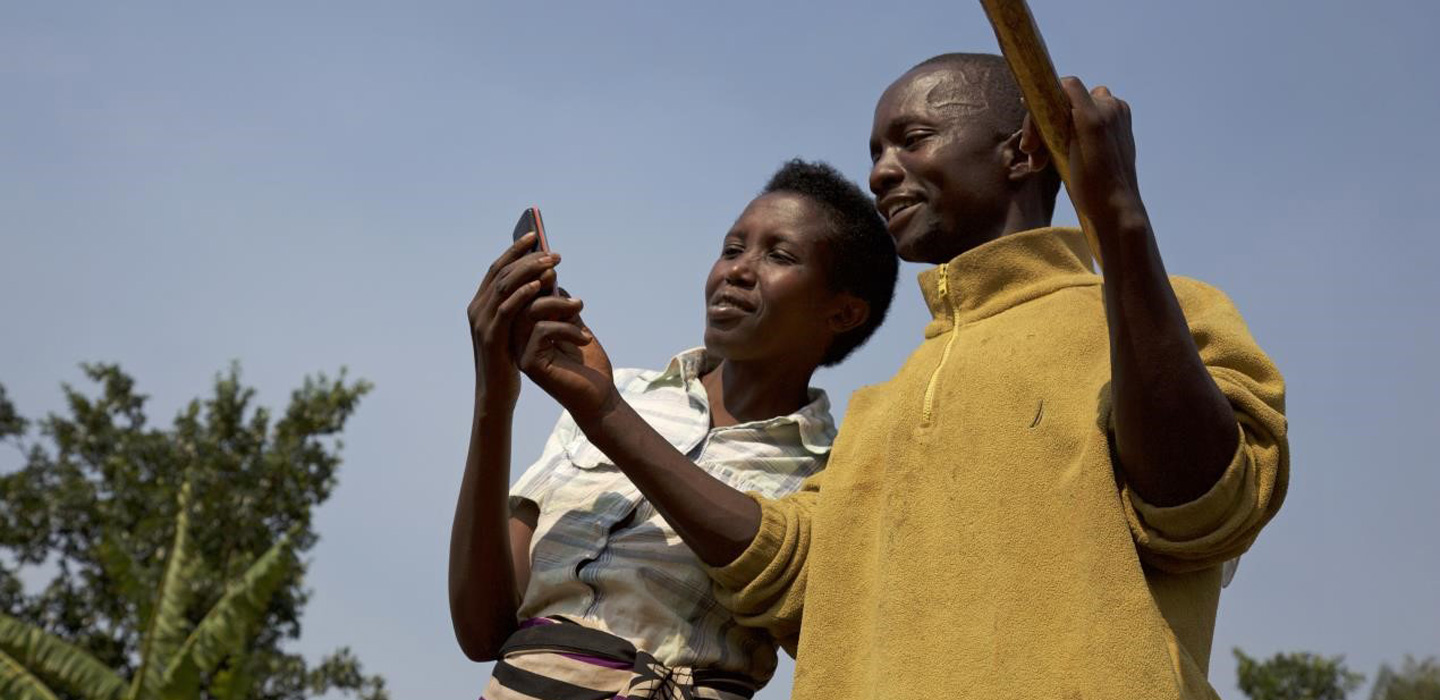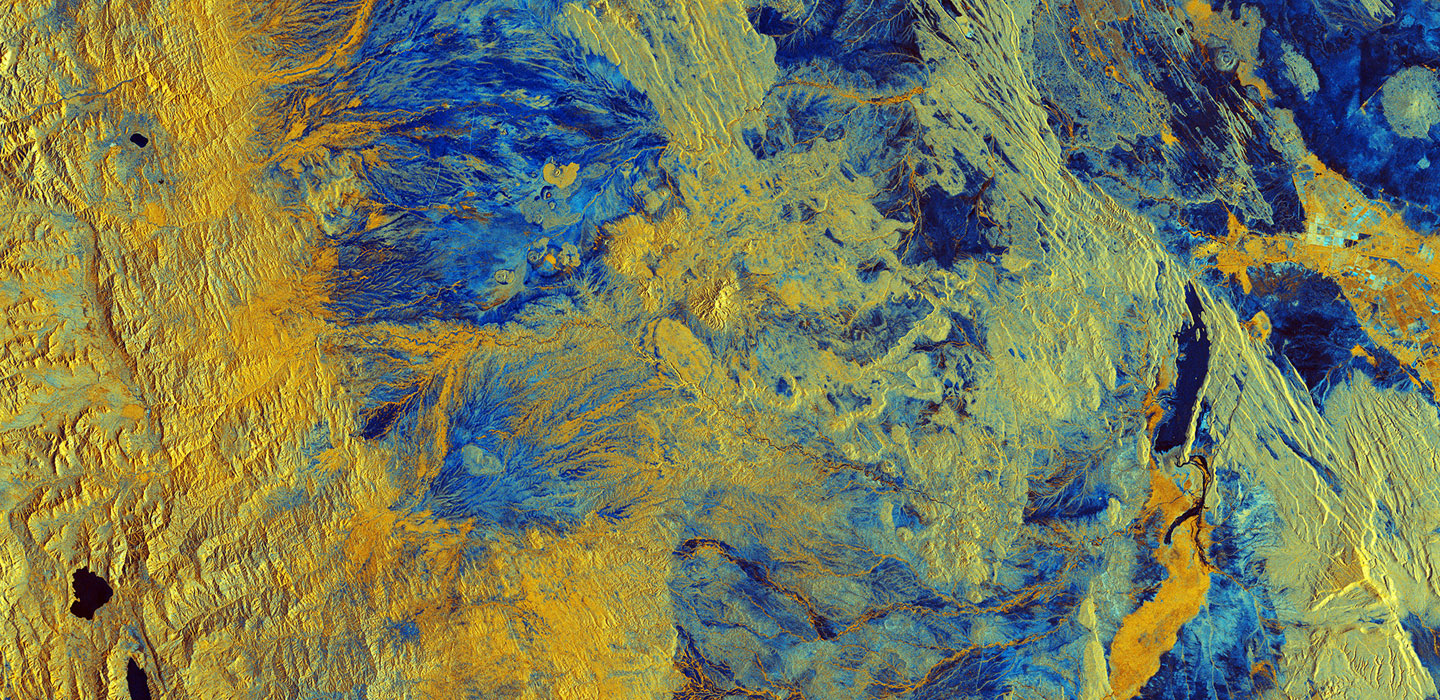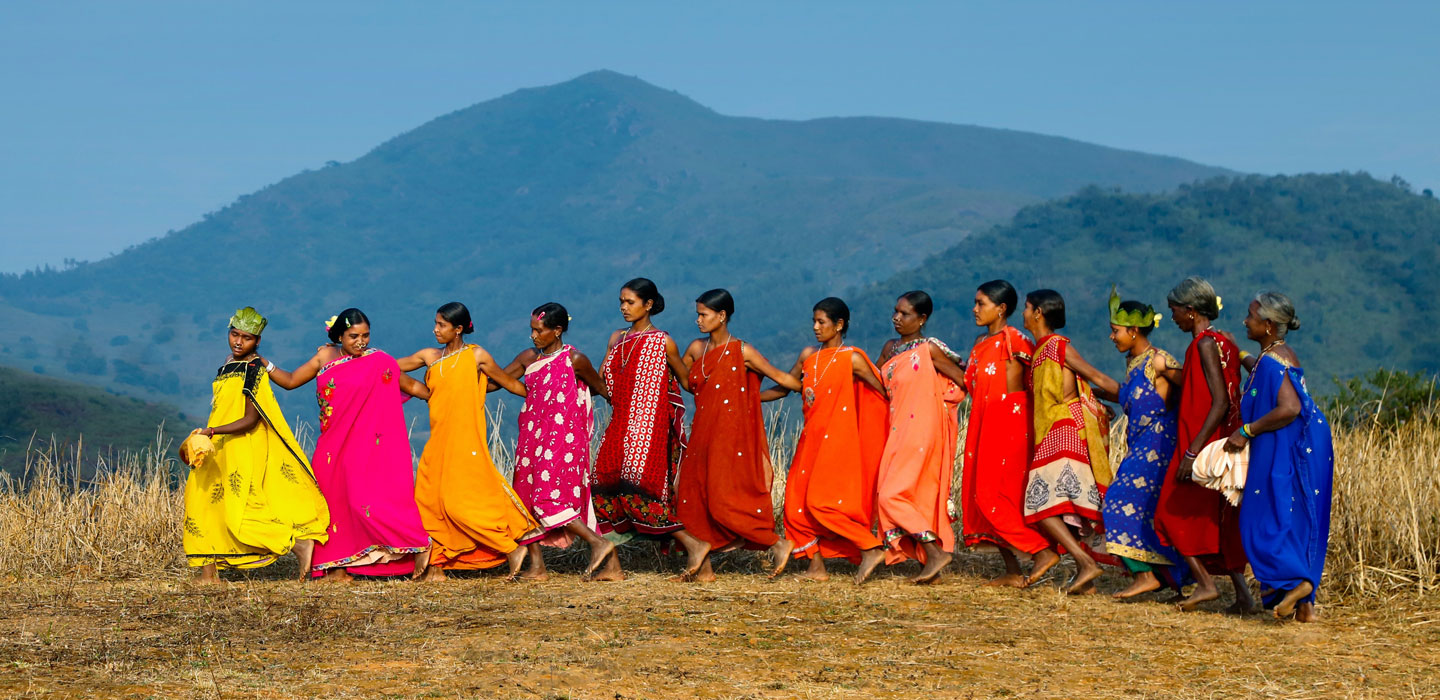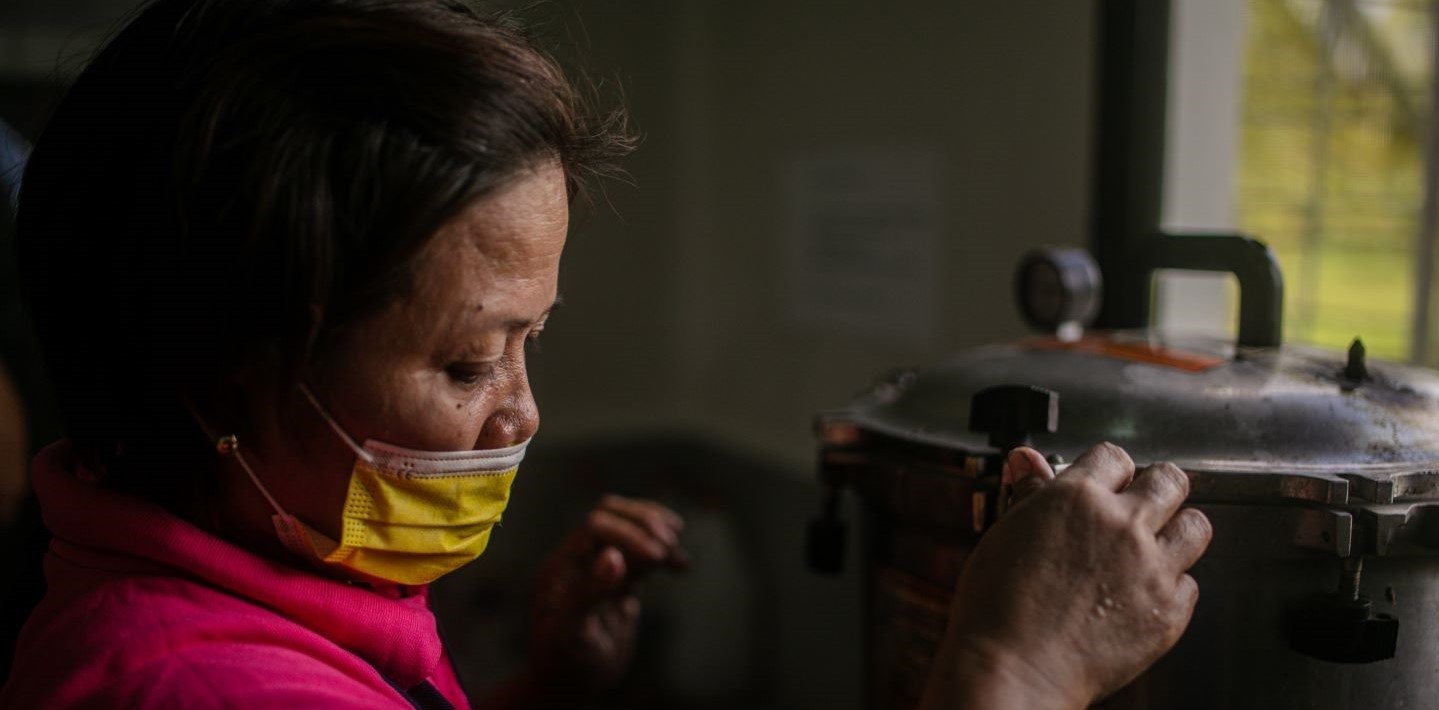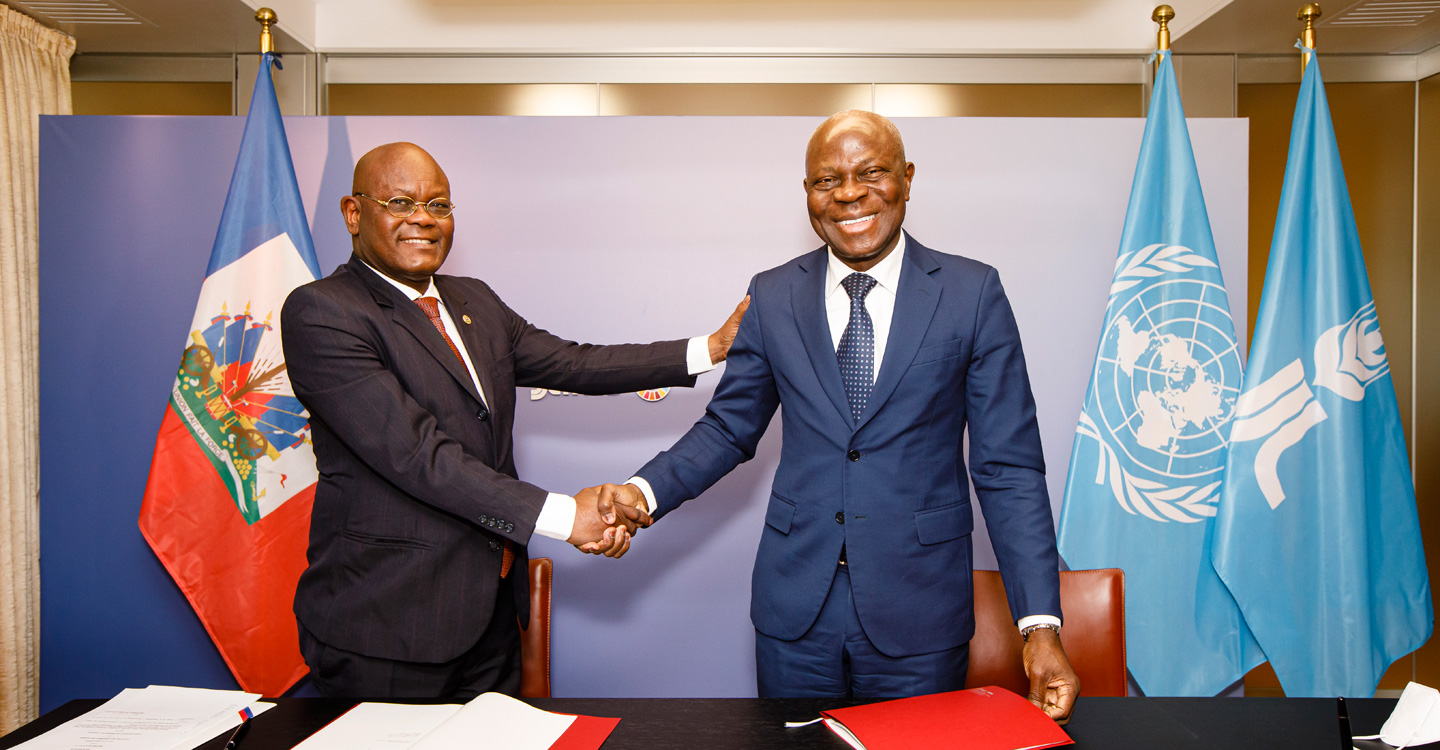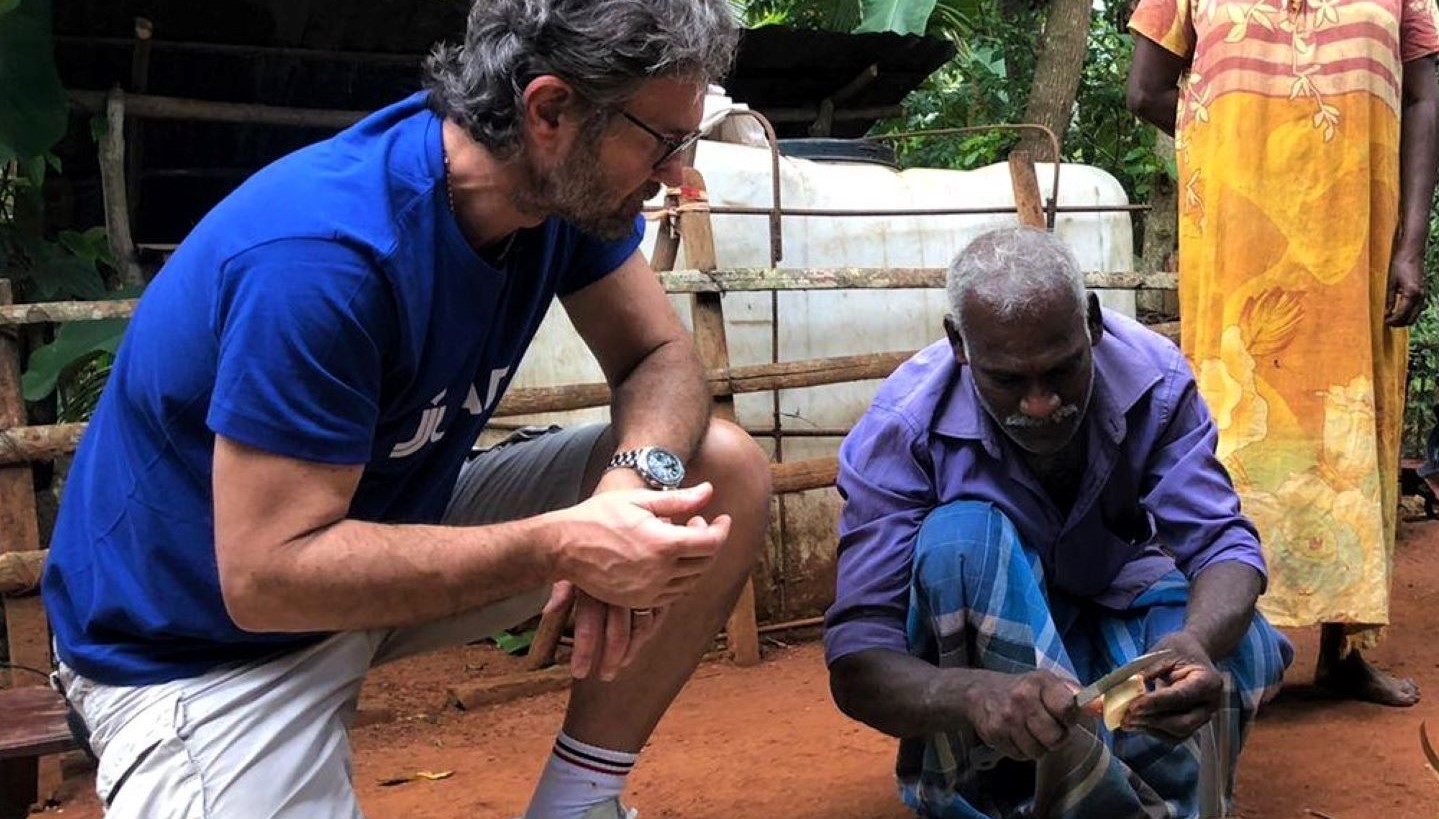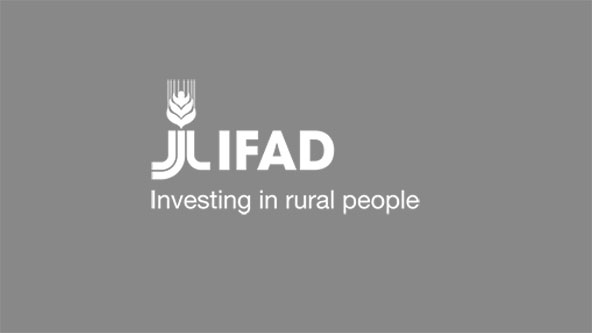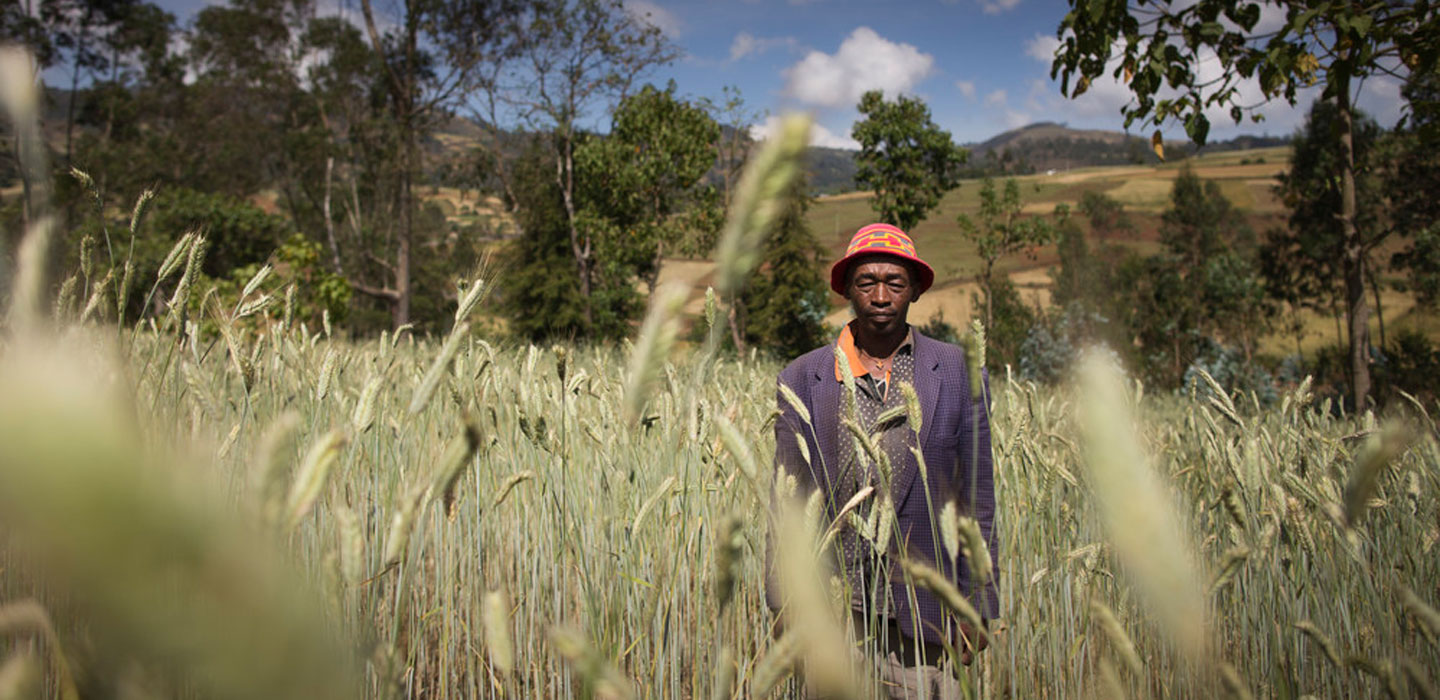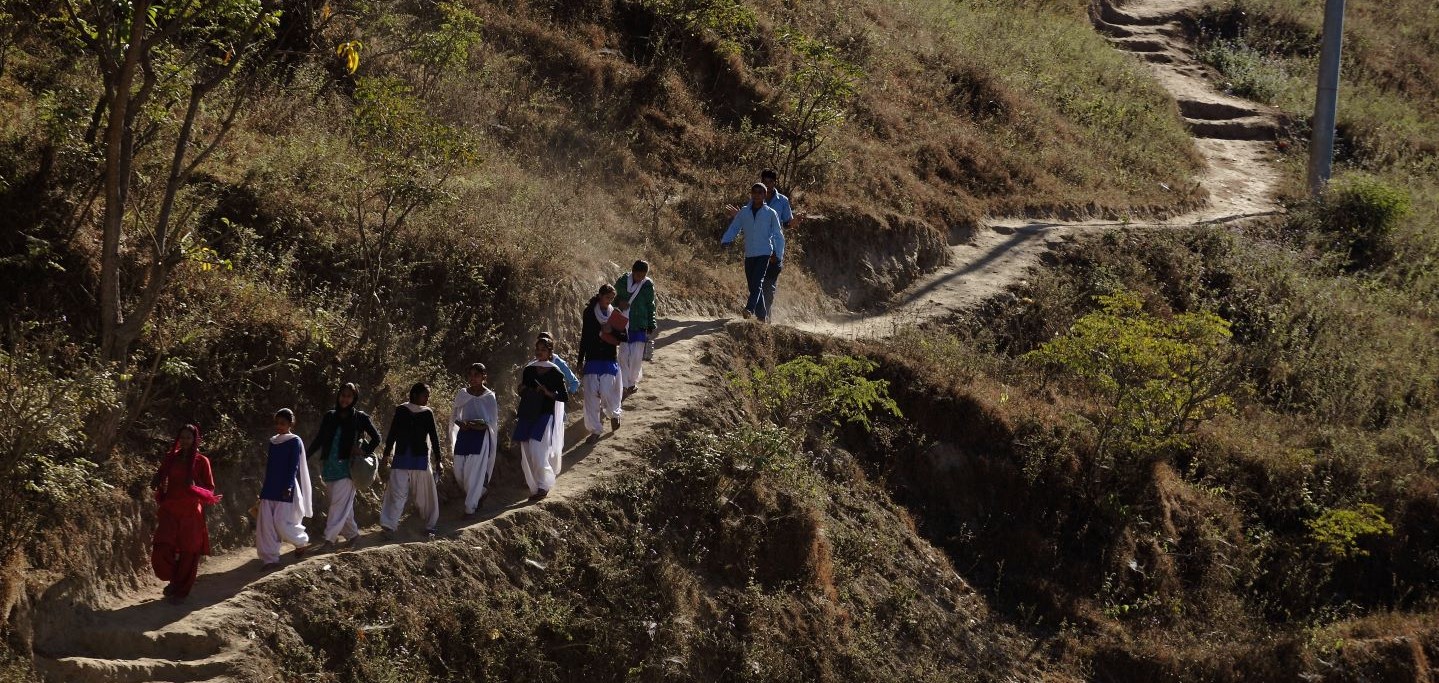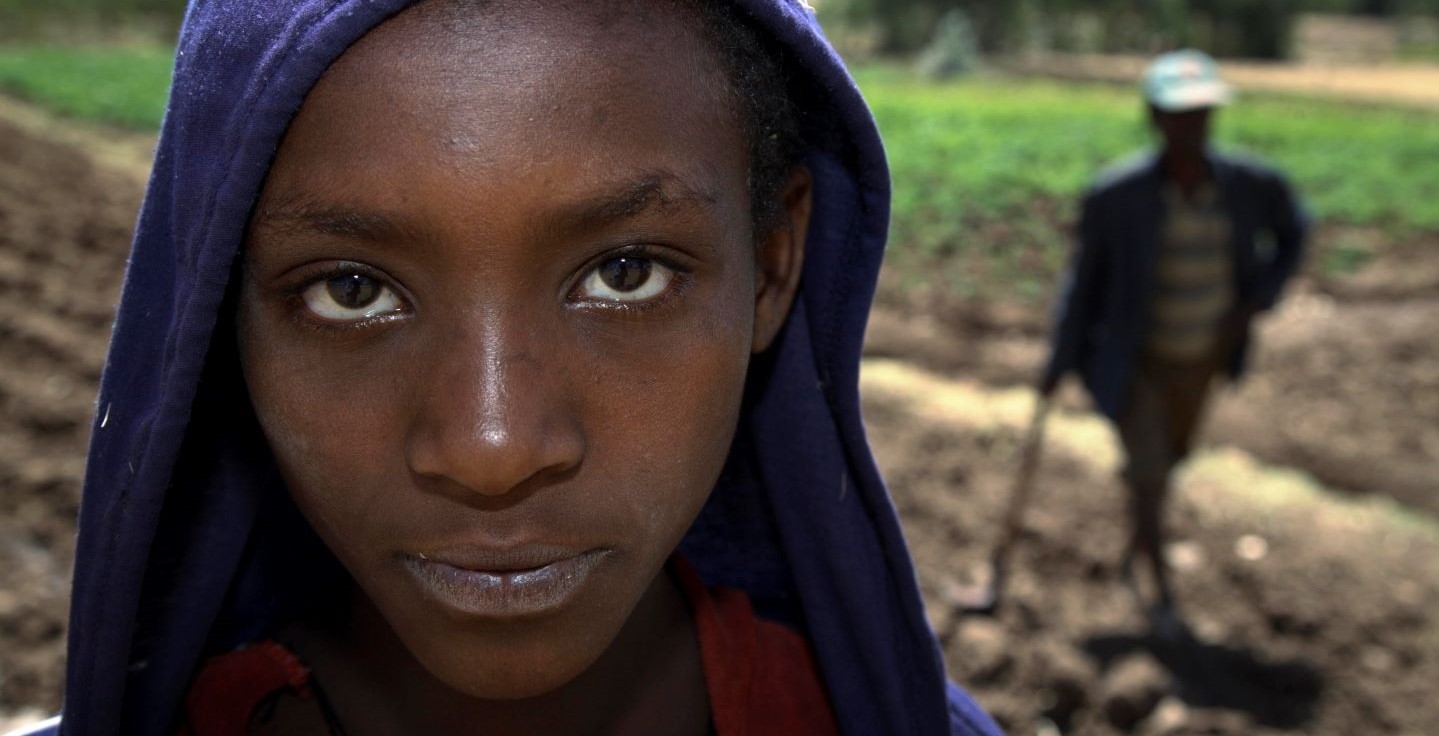Latest
Latest

Latest
Manual Submenu Topics
Search Results Filters
Search Results
When the world is drying up, every drop of water counts
Climate change and a growing population are exacerbating water scarcity. As the water cycle is disrupted, farmers are coming up with inventive ways to harvest, store and use water. IFAD is helping them with simple but effective and climate-smart water infrastructure.
As Cyclone Freddy breaks records, vulnerable rural people are in the eye of the storm
For over a month, Cyclone Freddy has been battering south-east Africa. This may be the longest-lasting tropical cyclone ever recorded—and vulnerable rural communities are in the eye of the storm. We explain what this means for IFAD’s project participants in the region.
Time to step up investments in rural communities on the frontline of climate change in the Pacific islands
IFAD is advocating for more investments in small-scale farming communities in the Pacific.
As the world moves to protect oceans, we must also protect small-scale fishers
As the world welcomes the historic UN agreement to legally protect high seas, we must also ensure that small-scale fishers continue to be protected.
IFAD loan to enable small-scale farmers in Viet Nam to plan for, cope with and adapt to climate change impacts
IFAD and the Socialist Republic of Viet Nam last week signed a loan agreement to promote inclusive and sustainable agricultural growth in the Mekong Delta. The Climate-smart Agricultural Value Chain Development (CSAT) project will generate sustainable income opportunities and improved rural livelihoods for 60,000 families engaged in small-scale farming.
Pueblos Indígenas de Bolivia logran un reconocimiento mundial por su gestión ganadera adaptada al cambio climático, con apoyo del FIDA
Gracias a su excelente gestión ganadera, adaptada al cambio climático, y la protección efectiva sus medios de vida y los ecosistemas, los Pueblos Indígenas de tres departamentos de Bolivia se hicieron merecedores del Premio de los Pueblos Indígenas, siendo así reconocidos como el proyecto con mejores resultados entre aquellos financiados por el FIDA.
IFAD substantially strengthens its investments in Somalia to help small-scale producers cope with climate shocks and food insecurity
As Somalia continues to experience a historic drought, pushing millions of Somalians into acute food insecurity, Alvaro Lario, President IFAD announced today during IFAD’s 46th session of the Governing Council that it will substantially strengthen its support to Somalia and resume its direct investments after loan arrears resulted in a three-decade long suspension.
How livestock in Lesotho is adapting to climate change
An IFAD-FAO study from Lesotho provides valuable insight on how to mitigate against climate change while sustainably producing enough healthy food for everyone.
Why insects are the next global superfood
IFAD helps rural small-scale farmers reduce emissions while adapting to climate change. Find out how rearing insects as human food and livestock feed can achieve these goals.
2022: Resilience in the face of adversity
As we near the end of 2022, IFAD looks back on some of the themes that defined a year of dramatic change.
Rising sea levels threaten Egypt's fertile plains in the Nile Delta
The Nile Delta is the breadbasket of Egypt, but climate change threatens agriculture here. IFAD is working to protect the land and improve the quality of previously infertile land. Sabrina Dhowre Elba, IFAD colleagues, and project coordinators and participants describe how this is changing people’s lives.
How disability and the climate crisis converge
18 million persons with disabilities are expected to be displaced by climatic events by 2050, we must urgently include them in climate action—both as participants and decision makers.
Global Environment Facility tasks FAO and IFAD to lead new $230 million agrifood systems transformation program
The initiative aims to support shifts towards sustainable nature-positive production and efficient value chains for crops, commodities, livestock, and aquaculture.
Building biodiversity for a successful farming future – Episode 38
This month we kick off with the Conference of the Parties on Biological Diversity, or COP 15, followed by three IFAD projects that put biodiversity and conservation at the forefront of their missions.
The youth weigh in on COP27
As today’s young people grow into tomorrow’s adults, the impacts of climate change are simultaneously growing and worsening. Rural youth are valuable contributors to climate action. At COP27, we showcased the lives and ambitions of young innovators and activists. Find out what they had to say.
Farmer organizations convene amid crisis to discuss support for small-scale farmers in East and Southern Africa
As crippling spikes in food and energy prices continue to hit East and Southern Africa, the devastating impact of climate change on the productive capacity of small-scale farmers has become an urgent issue. Therefore, IFAD and farmer organizations from the region are jointly convening the Regional Farmers’ Forum, in Dar es Salaam, Tanzania on 24 – 25 November, to galvanize greater efforts to build farmers’ resilience through partnership.
COP27 is over. Here are five things the world must do now to move forward
As the countdown clock to 2050 ticks ever louder, IFAD was at COP27 to share what we know about responding to climate change. Here are five solutions to help the world get back on track towards a more sustainable future.
UN's IFAD and the U.S. State Department help small-scale farmers to further reduce methane emissions
IFAD and the U.S. State Department announced a new partnership to support small-scale farmers in developing countries to better adapt to climate change and further reduce highly polluting methane emissions.
Saving the Amazon: The story of the indigenous women fighting climate change
In the heart of the Peruvian Amazon, a group of indigenous women are fighting climate change through reforestation and ancestral farming techniques.
Cooking at the top of the world: A family in Nepal share their story of climate resilience with Meteorologist Clare Nasir
Meteorologist Clare Nasir travels to Nepal where she shares a homecooked meal with a local family and discovers how rural farming communities are adapting to the threat of climate change.
Mind the Gap: Climate adaptation is falling far short of needs
To respond to the impacts of climate change that are already happening around us every day, we urgently need to invest in climate adaptation. UNEP’s Adaptation Gap Report identifies the gap between where we are and where we need to be. Jo Puri shares her impressions on what this year’s report reveals.
Why climate finance matters: Your questions answered
Climate finance is complicated, and we get a lot of questions about everything it entails. We’ve put together some answers to the ones we receive most often.
The UN’s Agricultural Development Fund finds that its investments in small-scale farming are net negative - according to new report
New research shows that investments in small-scale farmers and poor rural populations in developing countries over 20 years by IFAD sequestered more carbon and reduced more greenhouse gases (GHG) emissions than they emitted, proving to be effective in limiting climate change.
Climate finance keeps carbon where it belongs: underground
Climate finance is essential to prevent the worst-case climate scenarios from happening and to protect the most vulnerable people from a climate breakdown.
Financing resilience: how ASAP+ is helping rural communities adapt to climate change
When it comes to climate change, small-scale farmers are among the world’s most vulnerable communities. This is why IFAD focuses on climate resilient agriculture and climate finance through programmes like ASAP+.
Norway pledges an additional US$9.5 million to climate adaptation for small-scale farmers
As part of a commitment to triple its support to climate adaptation by 2026, Norway has pledged an additional NOK 100 million (approximately US$9.5 million) contribution of urgently needed climate finance to IFAD today.
Four ways small-scale fishers can help us weather the climate storm
Climate change and environmental degradation are posing an unprecedented threat to the world. Find out how small-scale fishers are weathering the storm – and becoming part of the solution.
Placing small-scale farmers and rural populations at the heart of climate discussions - IFAD at COP 27
To ensure small-scale farmers and rural populations from developing countries receive the attention and funding they urgently need, IFAD is organising, and will be active in, over twenty events at COP27 to highlight the challenges and solutions that small-scale farmers need to feed a growing population while adapting to the escalating impacts of climate change.
At COP27, we need big wins for a greener future, says IFAD President
Ahead of this year’s COP, President Lario shares three big wins for the planet that can mitigate climate change and help the world’s poorest rural people adapt to its inevitable impacts.
Adapt or starve – UN Agricultural Fund calls for urgent climate finance for small-scale farmers
With the negative impacts of climate change becoming more frequent and severe, IFAD is calling for urgent and increased financing to support hundreds of millions of small-scale farmers adapt to climate change.
Seeing the bigger picture: 6 ways IFAD uses GIS to optimize climate investment
Discover how IFAD uses Geographic Information Systems to better understand where and how climate change is affecting smallholder farming, and what is needed to mitigate its effects.
Climate Change in Africa, what’s really happening? – Episode 37
COP27 is upon us – join us for an African perspective on what to expect from this year’s UN climate change conference in Egypt.
A tale of two towns in Tajikistan
In Tajikistan two neighbouring towns face different fates as one suffers the aftermath of drought and displacement and the other is saved by irrigation.
Five ways IFAD is helping to reduce rural poverty in an age of climate change
Even when a world without poverty seems out of reach, here’s how IFAD continues to work in developing countries, amplifying the voices of rural people and integrating them into value chains, so they can earn and save, while feeding the world and conserving the natural environment.
Rural women lead the way
There is no solution to climate change without rural women. It’s time to invest in them. It’s time to let them lead the way.
With the world in firefighting mode, we cannot forget about rural women
As the world faces a myriad of crises, experts fear that the progress rural women and girls have worked so hard for may be reversed. Here is how IFAD is working to prevent this.
Water brings life to rural people
Irrigation brings water to the world's poorest rural people in the right quantities and when they need it, helping farmers adapt to climate pattern shifts.
What I’ve learned about resilience from rural communities in Guatemala
Faced with the impacts of climate change, small-scale producers in Guatemala urgently need to manage risk using tools like insurance. Read how INSURED promotes the use of agricultural insurance to build resilience and strengthen livelihoods.
Tackling food loss for sustainable food systems
Reducing food losses makes food systems more sustainable. Although the exact causes are different for every crop and in every country, there are plenty of avenues to prevent, detect, and reverse these losses.
The perfect weekend away in rural Bangladesh
Discover hidden gems in rural Bangladesh with two IFAD colleagues as they visit a community-led eco-tourism project that has transformed the area.
Fighting Climate Change in South Asia – Episode 36
From chefs in India to fisheries in Maldives, we examine how the relationship between agriculture and climate change is affecting South Asia. We also reflect on 75 years of independence in India and Pakistan and learn about IFAD’s work in Bhutan and Maldives, and so much more in this bumper episode.
Hungry caterpillars threaten Kenya's crops. Can plants provide a natural pest control solution?
Kenyan farmers and their crops face a tiny but destructive threat: the fall armyworm. With climate change causing more infestations, push-pull technologies are a sustainable and affordable way of naturally controlling pest numbers. Find out how this simple but effective technology works.
“This is unprecedented”: IFAD’s Country Director in Pakistan reacts to the floods
Following months of incessant rain, nearly one third of Pakistan is underwater. Millions of people are affected, thousands have died, and agriculture is at risk. IFAD’s Country Director in Pakistan reflects on what is happening on the ground.
Racking up Renewables in Africa - Episode 35
With fossil fuels dwindling and access to energy already scarce in Africa, people are turning to renewable energy. In this month’s podcast, energy specialist, Dan Martin, explains how IFAD incorporates renewable energy into its projects, while a farmer tells us about the reality of renewable energies on the ground.
East Africa is experiencing its worst drought in decades. It’s time to invest in climate adaptation
East Africa is experiencing one of the worst droughts in decades, with millions facing food insecurity as crops fail, livestock die and water sources dry up. Read how IFAD is building resilience to climate change and what else needs to be done.
Women-led sea patrols in the Philippines are protecting livelihoods and the ocean
Coastal communities in the Philippines depend on the sea for sustenance, but these once thriving oceans are emptying due to climate change and harmful fishing practices. Local women are fighting back, protecting fisheries while using them sustainably.
Seeing change happen before our eyes in Guatemala and Honduras
On a recent trip to Guatemala and Honduras with the US Ambassador to the UN agencies based in Rome, IFAD Country Director, René Castro, explains how smallholder farmers are transforming rural communities despite the challenges of climate change.
See how permaculture transformed farmland in Nepal from barren to lush
When Megnath Ale Magar returned to his village in Nepal after a decade working abroad, he found a degraded land. In just three years, he transformed his barren farmland into a lush ecosystem using a permaculture approach.
From subsistence to self-sufficiency: how women in Sudan are using savings and credit groups to build a better future
Climate change, commercial agribusiness, and societal norms threaten small-scale farmers’ way of life in a small village in Sudan. A women’s savings and credit group is changing this.
Building Resilience in a Time of Famine – Episode 33
20 million people in the Horn of Africa are at risk of starvation, largely due to a four-year drought making the region the driest it’s been in forty years. Dr Joseph Awange and IFAD’s Satu Santala discuss the root causes of famine and the solutions we can put in place.
Against the backdrop of conflict and COVID-19, IFAD is helping farmers grow in Yemen
Years of conflict in Yemen have taken their toll – and among all of the devastation that’s been wrought, the country’s agricultural sector is one of the hardest hit. Now, an IFAD-supported initiative is helping Yemeni farmers get back on their feet.
Brazil’s semi-arid region is full of life
Brazil’s north-eastern semi-arid region, known as sertão, is a land rich in culture and enchanting landscapes, but the harsh climate and lack of water make it difficult to earn a living here. However, over recent decades, modern ingenuity has combined with traditional mutual aid systems to help communities make the most of the region’s natural resources.
IFAD and Government of Uttarakhand partner to double rural incomes and build climate resilience in the state
IFAD and the Government of India signed a US$ 105 million financing agreement last week for a project in the northern state of Uttarakhand that aims to double rural incomes, reaching over half a million families across the state. It will do this by supporting smallholder farmers, agricultural labourers, and micro and small agribusinesses to start and expand competitive businesses and focus on food production that is climate-resilient.
More climate finance in support of small-scale farmers is urgently needed, warns IFAD at Stockholm+50
Boosting investments to help small-scale farmers adapt to the impacts of the climate crisis is more urgent than ever, warned IFAD at the United Nations Conference Stockholm+50.
It’s been 50 years since the first Stockholm Conference. What have leaders done to protect our planet since?
In June 1972, members of the United Nations gathered in Stockholm for the first-ever conference on protecting the environment. Fifty years later, global leaders are returning to where it all began to decide where we go from here.
The people of Bangladesh are resilient, but without urgent climate action, the future of this fascinating country is uncertain
Journalist and documentary maker Qasa Alom recently visited Bangladesh with IFAD. He reflects on how climate change is affecting its people and what IFAD is doing to support them.
Insects to Feed the World – Episode 32
This month's episode focuses on the use of insects to feed the world – both as food for humans and feed for livestock.
Our planet is losing its biodiversity. Here are five ways IFAD and rural people are protecting it
Biodiversity is the key to all the essential benefits we get from nature: from clean air to our ability to regulate the climate. At IFAD, we integrate protecting biodiversity into everything we do.
How farmers around the world are protecting nature’s delicate balance – and reaping the rewards
Healthy ecosystems are diverse ecosystems. And at IFAD, we believe that small-scale farmers are amongst the greatest stewards and beneficiaries of biodiversity.
As COP15 tackles desertification, here are three ways IFAD is helping farmers in sub-Saharan Africa build their resilience to climate change
Sub-Saharan Africa’s drylands – that is, the areas where more water is lost through evaporation than gained through rainfall – are facing widespread degradation. There are many factors causing this, but one of the most prominent is the use of agricultural practices that aren’t adapted to the land, such as overgrazing and intensive agriculture.
IFAD-funded project to help preserve Amazonian forest in one of Brazil’s poorest states
IFAD and the Government of the State of Maranhão signed a financing agreement today for the implementation of the Amazon Sustainable Management Project (PAGES). Implemented in Brazil’s state with the highest poverty and food insecurity rates, the project will address the entrenched environmental degradation of the Amazonian forest.
The thin green line that’s holding back the Sahara desert
The Great Green Wall was envisioned as a line of trees stretching across Africa to protect against desertification. Today, it is a mosaic of farms, forests, and wilderness, where sustainable agriculture is the norm and rural-dwellers thrive.
These numbers show that restoring drylands and preventing desertification is good for the planet – and good for us
From California to the Sahel, from the steppes of Central Asia to the Andes, drylands are some of the most productive ecosystems in the world. But they’re also some of the most fragile.
IFAD Vice President to meet Prime Minister Edouard Ngirente and ministers in Rwanda
The Vice President of IFAD, Dominik Ziller, will meet with Edouard Ngirente, Prime Minister of the Republic of Rwanda, as well as other high-level government officials during a visit starting 9 May.
Do IFAD-supported projects reduce the risk of conflict? What the evidence says
We used GIS to assess the impact of IFAD-supported projects on the likelihood of conflict in fragile contexts. Our results suggest that the presence of IFAD interventions may prevent conflicts from arising and reduce the overall number of conflicts.
Closing the Social Justice Gap – Episode 31
This episode is all about closing the social justice gap in rural communities and developing countries.
Indigenous peoples lead adaptation efforts through IFAD’s dedicated funding
Over the millennia, indigenous peoples have developed practices that honour the interconnectedness of people and nature – yet all too often, their contributions are overlooked and devalued. IFAD is committed to supporting indigenous peoples in overcoming poverty and meeting global challenges through building on their identities and cultures.
IFAD-funded project to fight rural poverty by addressing climate change effects in Mexico’s Balsas Basin
IFAD and the Government of Mexico have signed a financial agreement today that will support the implementation of a project aimed to fight rural poverty by reducing small-scale farmers’ vulnerability to climate change in one of the Mexican regions most affected by this phenomenon.
Building resilience in the Asia-Pacific region in uncertain times
Just as the shadow of COVID-19 was lifting from many parts of the world, new crises have arisen – and they’re a particularly difficult challenge for poor rural people in developing countries.
IFAD-funded project to protect the environment in Haiti by improving smallholder farmers' and artisanal fishermen's livelihoods
IFAD and the Government of Haiti signed a financing agreement today for the implementation of the Inclusive Blue Economy Project (I-BE). The project will help preserve the Three Bay Protected Area by providing economic opportunities to smallholder famers and artisanal fishermen living in the country’s north-eastern region.
Chef Cracco on how jackfruit is helping rural people in Sri Lanka adapt to climate change
Carlo Cracco, one of Italy’s most famous chefs, is helping IFAD promote jackfruit as a way to adapt to climate change in rural Sri Lanka.
Small-scale farmers and climate adaptation – an under-reported story and world’s premiere of short film with Chef Carlo Cracco are featured at the Perugia International Journalism festival
With COP27 just seven months away, this event brings together food activists and chefs, a climate journalist, a climate expert and farmers themselves to talk about why small-scale farmers must be part of the climate change conversation and the value they can bring to those reporting on climate issues.
Agriculture is not just a contributor to climate change. It is an essential part of the solution - IFAD’s reaction to the latest IPCC report
While we can no longer avoid climate change, we can still limit its impacts. It is time we start viewing agriculture as an essential part of the solution.
Communities use GIS maps to conserve forests and adapt to climate change
Making the right decisions about managing natural resources isn’t always easy. That’s especially true for watersheds, where the local ecosystem depends on the health of multiple waterways. Now, GIS technology is helping communities in rural Nepal monitor and preserve the forests fed by local watersheds.
Meet some of the women leading sustainable development around the world
Sustainable development can only be achieved with the contributions of rural women, yet they face many challenges. Let’s meet three women who have transformed their lives with the help of the JP RWEE initiative.
